Osnovna škola "Bogoslav Šulek" Slavonski Brod


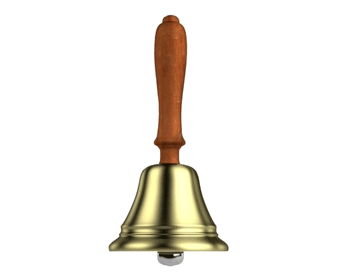
Matična škola
| 1. | 8.00 - 8.45 |
| 2. | 8.50 - 9.35 |
| 3. | 9.50 - 10.35 |
| 4. | 10.40 - 11.25 |
| 5. | 11.40 - 12.25 |
| 6. | 12.30- 13.15 |
| 7. | 13.20 - 14.05 |
| 8. | 14.10 - 14.55 |
| 9. | 15.00 - 15.45 |
| 10. | 15.50 - 16.35 |
| 11. | 16.40 - 17.25 |
| 12. | 17.30 - 18.15 |
Područna škola - Vranovci
| 1.smjena | |
| 1. | 7.50 - 8.35 |
| 2. | 8.40 - 9.25 |
| 3. | 9.40 - 10.25 |
| 4. | 10.40 - 11.25 |
| 5. | 11.30 - 12.15 |
| 6. |
12.20 - 13.05 |
| 7./0.sat | 13.10 - 13.55 |
| 2.smjena | |
| 1. | 14.00 - 14.45 |
| 2. | 14.50 - 15.35 |
| 3. | 15.50 - 16.35 |
| 4. | 16.40 - 17.25 |
| 5. | 17.30 - 18.15 |
| 6. | 18.20 - 19.05 |
| « Svibanj 2025 » | ||||||
| Po | Ut | Sr | Če | Pe | Su | Ne |
| 28 | 29 | 30 | 1 | 2 | 3 | 4 |
| 5 | 6 | 7 | 8 | 9 | 10 | 11 |
| 12 | 13 | 14 | 15 | 16 | 17 | 18 |
| 19 | 20 | 21 | 22 | 23 | 24 | 25 |
| 26 | 27 | 28 | 29 | 30 | 31 | 1 |
| 2 | 3 | 4 | 5 | 6 | 7 | 8 |


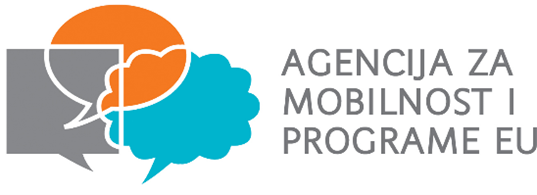
O projektu
In the rapidly developing world,the difficulties faced by individuals with disabilities and special needs in social life are becoming increasingly important. We can overcome these difficulties with education.. Education is the most important tool that makes individuals with special needs a part of social life like other people.
While people come into the world, they don’t have chance to make choice. Sometimes congenital and sometimes under the influence of environmental conditions, people may be advantageous or disadvantageous. Due to reasons such as mental deficiency, hearing disability, visual impairment, physical disability, disability of language and speech, special learning disability, autism and lack of attention, economic difficulties, ethnic and cultural discrimination, illness, parental separation it is very important to include individuals in the scope of inclusive education.
With our project Our partner schools will;
*overcome the problems of discrimination and integration experienced by our disadvantaged students.
*improve the capacity of disadvantaged students on the types of disability and diagnostic techniques.
*be able to redesign the learning environments according to disadvantaged students.
* include the new generation educational models that come with inclusive education to the teaching processes.
*support the educational processes of disadvantaged students through new applications such as Individualized Education Plan and Support Education Room.
*be able to use the new generation of digital components, artistic activities and sporting activities as a powerful tool for the physical, spiritual, emotional and social development of the disadvantaged students.
Four teachers at Primary School Bogoslav Šulek in Slavonski Brod: Zvonka Ivković, Katarina Bubalo, Tanja Matanović and Slavica Čugura Vukovarac took part in an Erasmus + project – Notice me, my teacher! - from 27 September to 1 October, 2021. The objective was to experience new possibilities, methods, and practical examples of inclusion of SEN students into regular classrooms. The first mobility took place in Bagheria. Bagheria is a town in the north Sicily, situated about 40 kilometres to the east of Palermo. It is known for its mild Mediterranean climate, African architecture, stone-paved streets, and tall church towers that overshadow the rooftops. The city is unusually quiet during the day which changes around 6 pm when the temperatures drop, and the humidity becomes tolerable. Hosts of the first mobility were teachers of Ignazio Buttitta School while our partners were teachers form Turkey, Lithuania and Romania. We met our hosts on the first day of the mobility. We were greeted by teacher Antonino and his students who recited poems in Croatian, Lithuanian, Romanian and Turkish language. Hearing the poem Prva rič što sam je čuo by Vanja Radauš read by Italian students made us nostalgic. During the opening ceremony we met our partners. We were introduced by our English teacher Zvonka Ivković. During our stay in Italy, our hosts organized many interesting and inspiring lectures: Inclusive education at Ignazio Buttitta School, disadvantage types, diagnosis and diagnostic techniques, Planned Educational Activities to overcome discrimination by Mr Angelo Morana, supporter teacher at Ignazio Buttitta School; Learning Environments in Inclusive Education by Mr Gioacchino Lavarco, Dean at the University of Palermo who, by using examples from literature and art, addressed the idea that the issue of education has been ongoing since the times of Christ; and The Role of Sport and Physical Activity in Mental Health by Mr Giussepe Battaglia, professor at the University of Palermo. We also took part in a workshop Practical Activities for the integration of disadvantaged students by Mr Gianni Matteo Lo Piparo, supporter teacher at ITC “Don Luigi Sturzo” in Bagheria. We visited the school for blind and visually challenged students in Palermo where the teachers demonstrated interesting musical activities for the disadvantaged students. Our host was a visually challenged teacher who demonstrated, by example, that there should be no limits in education of SEN students.
Sicily has got a unique history - a mixture of Spanish, Norman, Arabic, Greek and Roman culture – which makes it an exciting and desirable destination. The shores of the Tyrrhenian Sea are known for the amazing scenery and gastronomy. Our hosts made and effort to organize day trips to famous Sicilian tourist destinations: Segesta – archaeological location with an Ancient Greek temple and an amphitheatre; Erice – a Medieval city with a breath-taking view, located on top of a mountain that is 751 meter high; Trapani – open-aired salt pools with windmills used for production of salt; Cefalu – a Midieval city with a famous cathedral which is included in the UNESCO World Heritage Site; and Palermo – a multi-cultural city with a distinct African market, theatre and churches. The smell of the traditional Sicilian pastries and cakes that emanates from the pastry shops followed us everywhere.
Time is of the essence, now more than ever: education is a matter of time and every student requires time. Schools and education are a global issue. Everyone takes part in the education and everyone follows different rules: parents, teachers, friends, the media… Teachers need time and support of parents and society. We are a part of a great community of teachers who encounter similar problems in their professional work. These problems are not restricted to a certain country. Being a teacher is a calling and every day presents a new opportunity for learning. These are the conclusions we took from our journey. We can’t wait for a new mobility and a new opportunity to learn.
Nezaboravno_iskustvo_cetiri_brodske_uciteljice
Dissemination of project activities
At the session of the Teachers' Council on January 7, teacher Katarina Bubalo presented project activities as part of the visit of our teachers to Italy of the project "Notice me, my teacher".
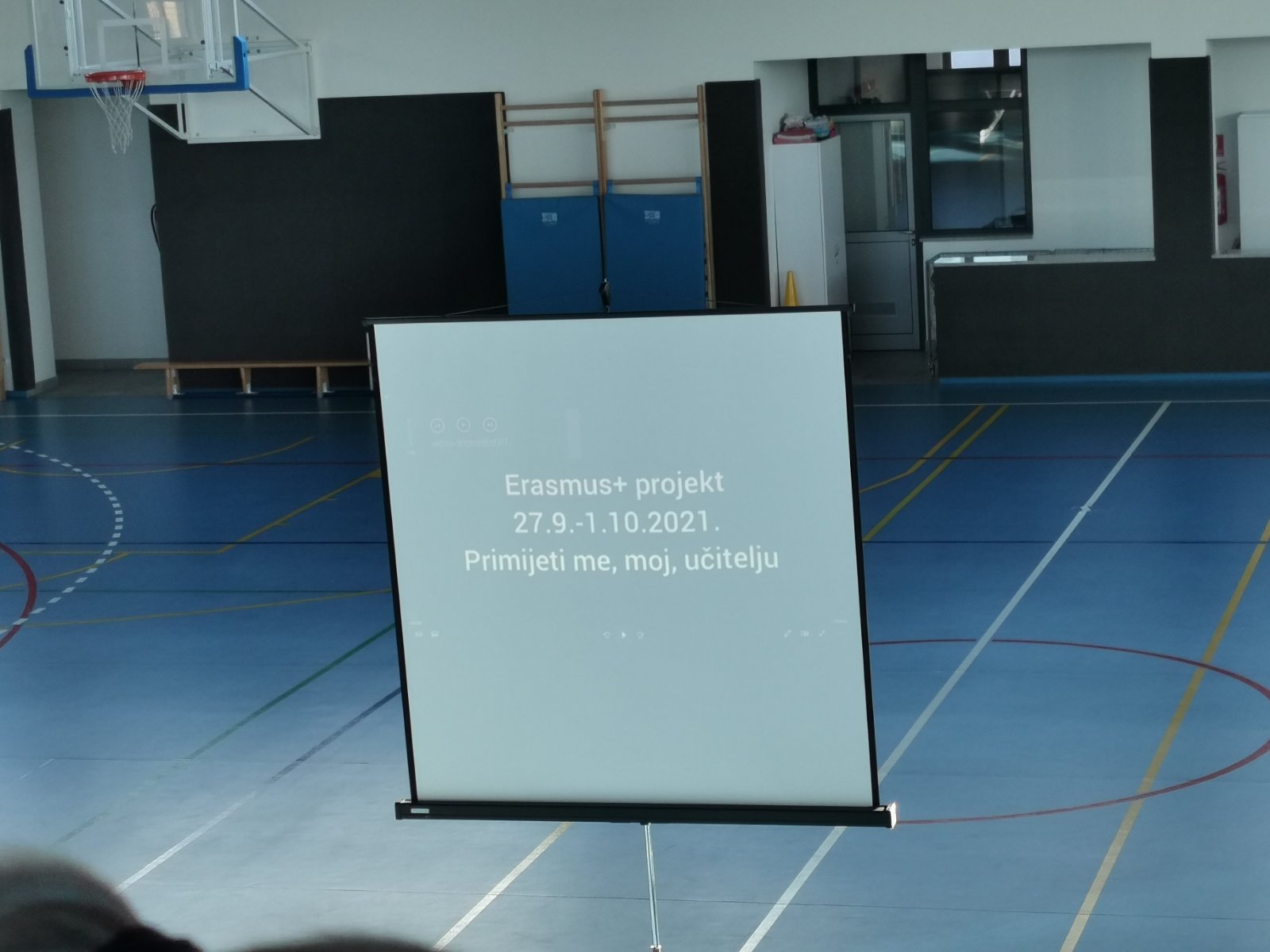
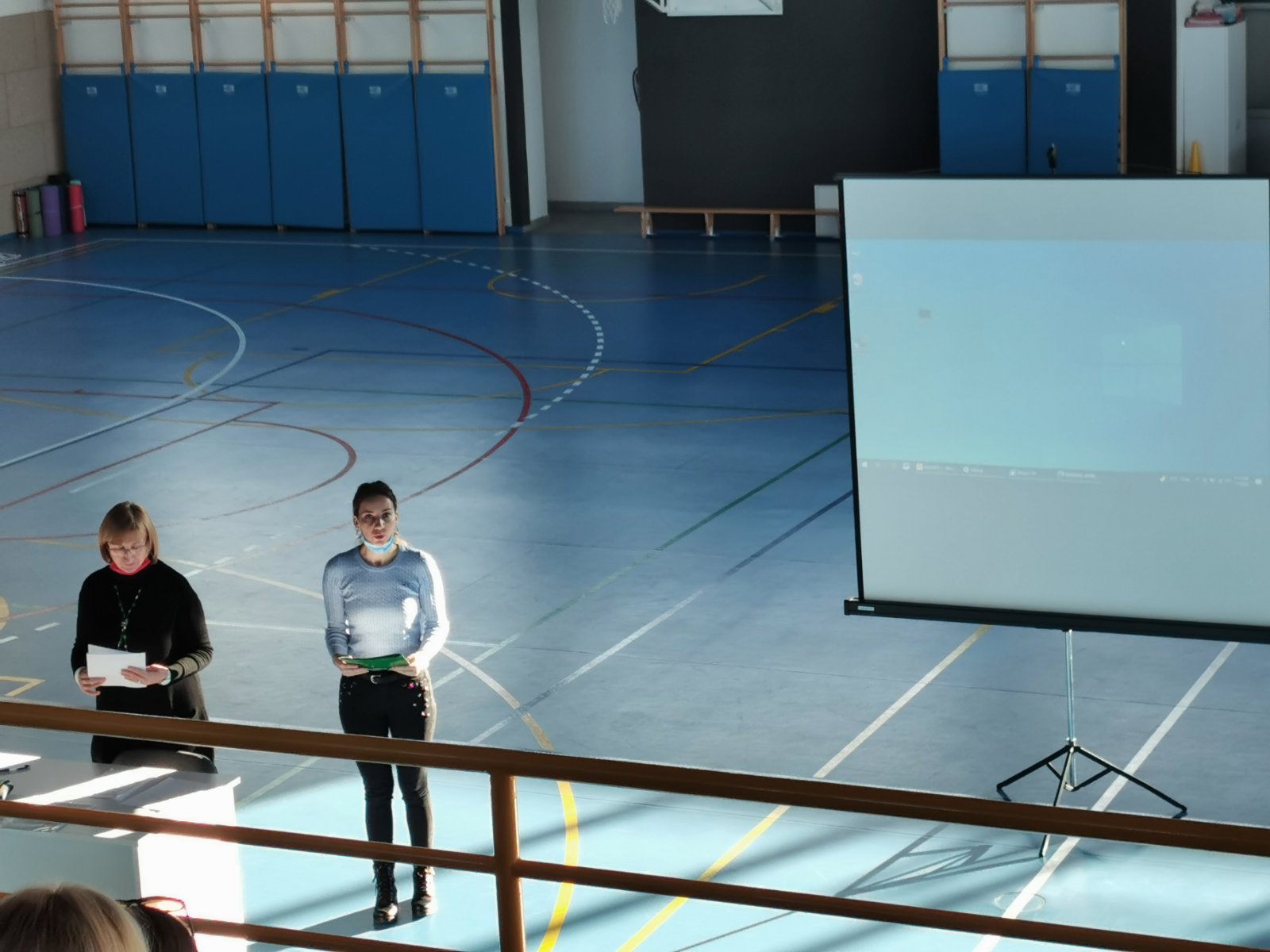
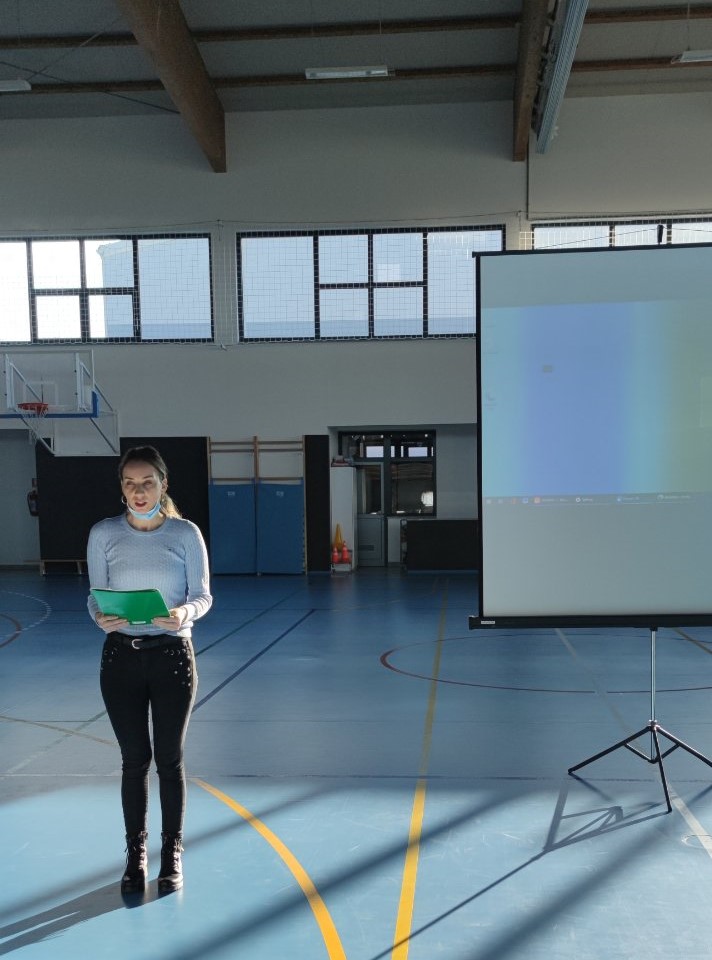
From January 30 to February 4, 2022, the Erasmus + project "Notice Me My Teacher" was held. This is the second mobility in the project of the same name, where teachers Nikolina Stanić, Jelena Miković, Anita Vodopija and Branka Peh visited the Romanian city of Ploiesti near Bucharest. The aim of the lectures and workshops in which we participated was to get acquainted with new ways and methods of inclusion and integration of children with special needs in the regular educational process.
The first day of mobility began with a welcome program of the hosts, in the presence of partner countries Lithuania, Turkey and Croatia.
This was immediately followed by a full-day lecture on the Teaching Strategy and an adapted curriculum used in inclusive education.
The day ended with a tour of the school of our hosts Gimnaziul School “I.A. Bassarabescu ”which is equal in size and number of students to ours.
In the following days, lectures and workshops aimed to introduce us to new methods and procedures of inclusion in the educational process. Mr. Alexandru Iordache prof. TZK, introduced us to games and exercises for children with special needs. Through the workshop and lecture of Professor Angelina Georgescu, we went through activities that brought us closer to how to bring abstract and demanding concepts from chemistry and physics closer to children with special needs and how to evaluate them.
Teacher Florentina Vasile showed us a practical example of how to create a personalized teaching plan for children with special needs. A team of experts participates in the development of the plan: parent, teacher, professional service. This was followed by a final workshop on making woolen flowers (poppies), which we especially enjoyed. The aim of this workshop is to encourage students' sensorimotor development.
Romania is a land of medieval castles, gothic churches and charming cities hidden among some of the most enigmatic landscapes of Southeast Europe. It is a land of beautiful nature, rich history and good people.
The hosts made an effort to get to know the rich Romanian history through a tour of the capital, the Prahov region and the Transylvanian region. Bucharest is a popular tourist destination often referred to as "Balkan Paris". Two large boulevards pass through the city, and most of the buildings were built by foreign architects, mostly French and Italians. We visited and visited the Cotroceni Palace, the Palace of Parliament - the largest parliament building in the world with more than 3,000 rooms with extremely rich facilities. Near the city of Brasov in the region of Transylvania is the fortress Bran, better known as "Dracula's Castle". Bran Castle was built by the Knights of the Teutonic Order in the thirteenth century. It is located on a rock and dominates the whole area, and the view from the top of the castle is spectacular.
We returned home enriched with experiences, new knowledge and new friendships that we will continue to nurture.
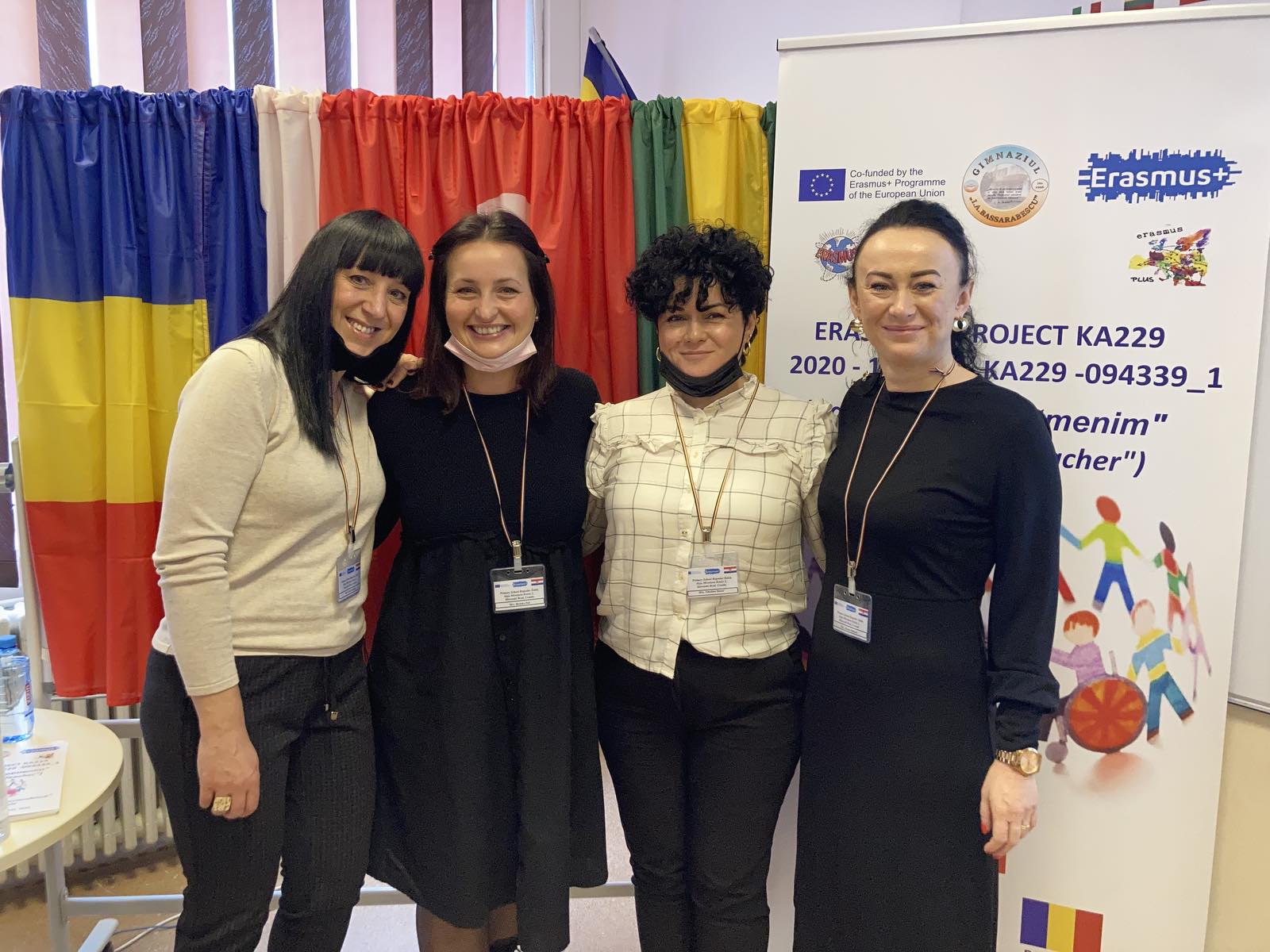
Obrazovanje_/osnovno_njima_su_skolske_aktivnosti_i_penjanje_skijanje_plivanje
Disemination of project activities on teacher's council
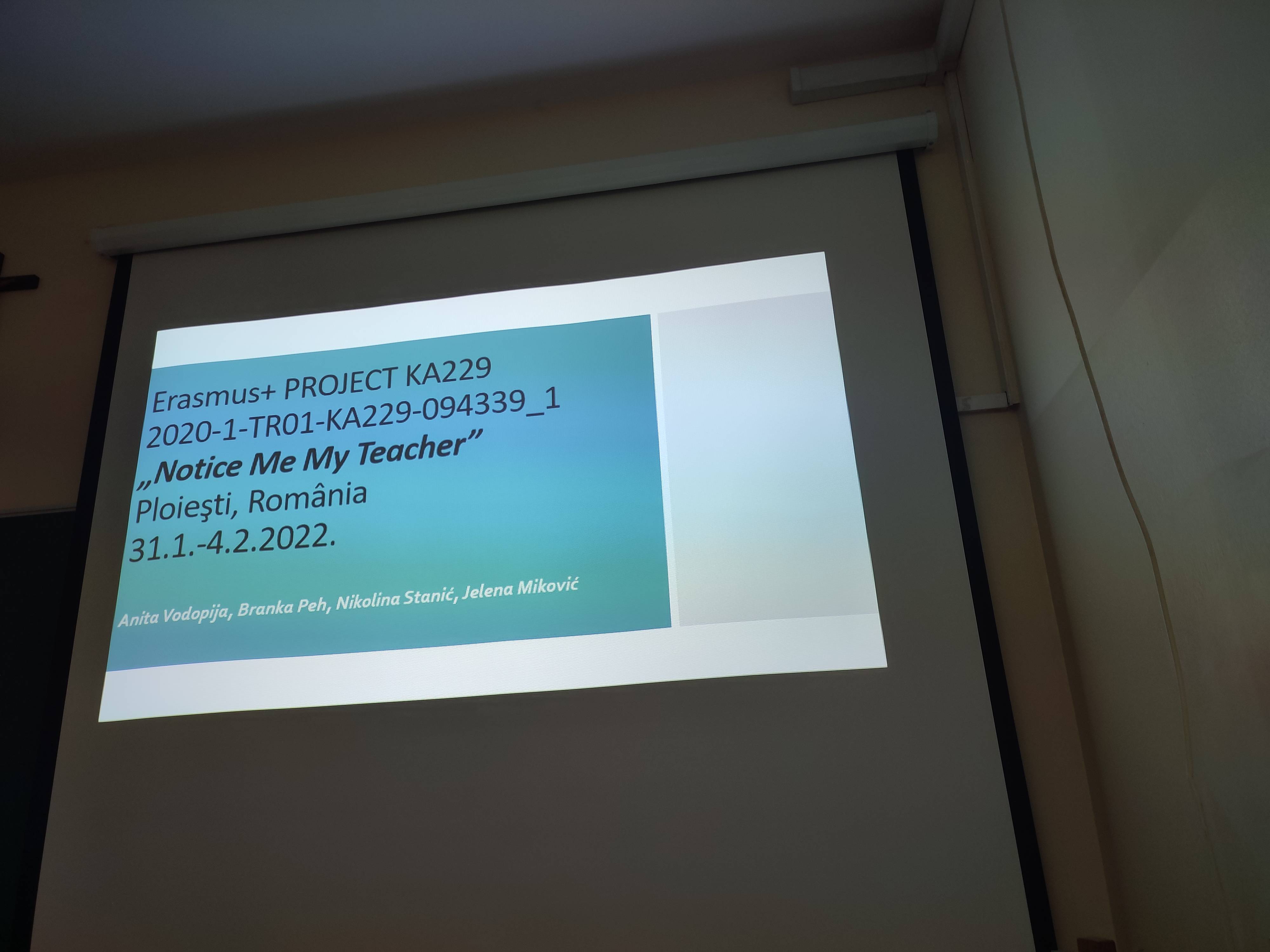
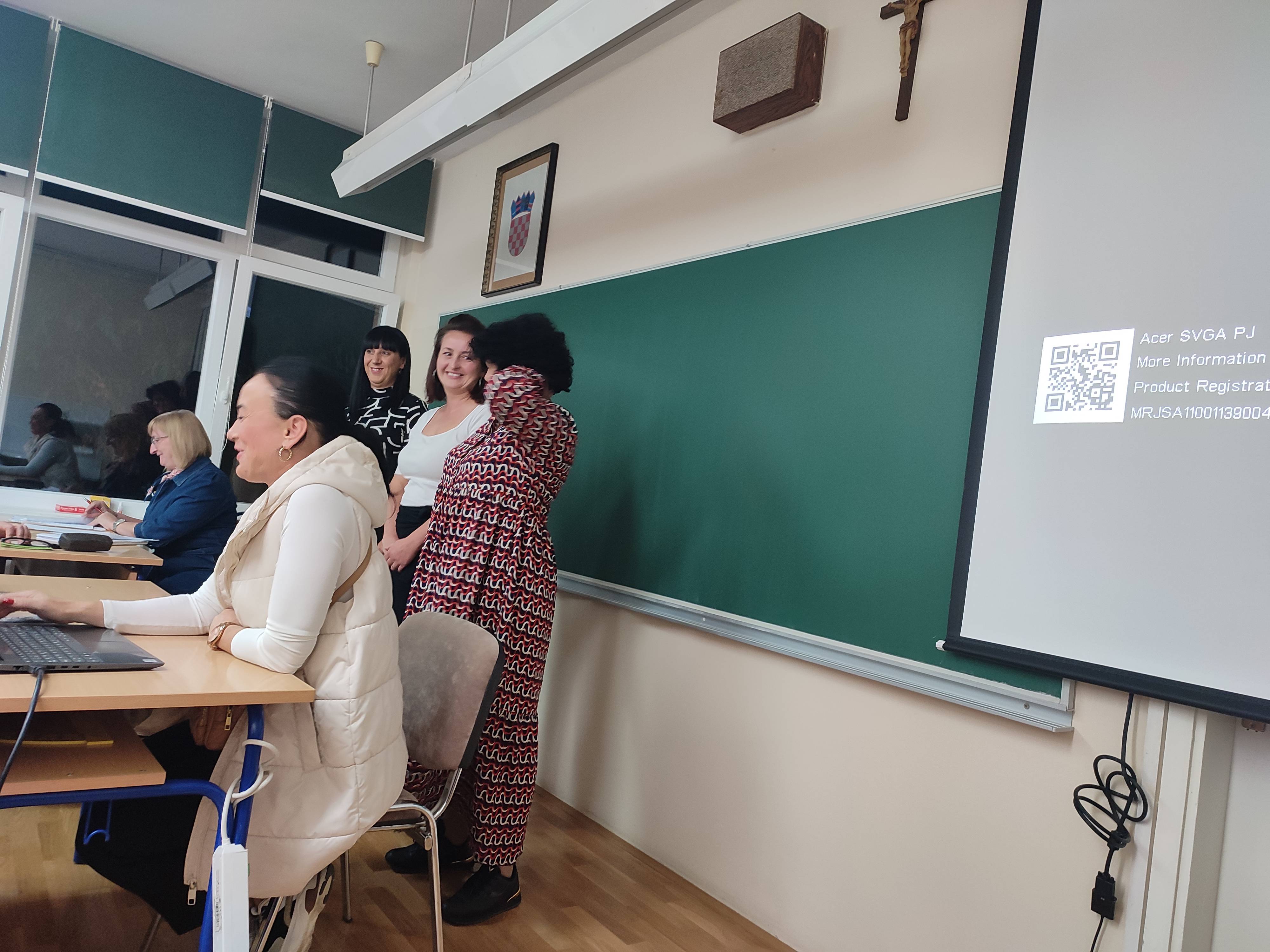
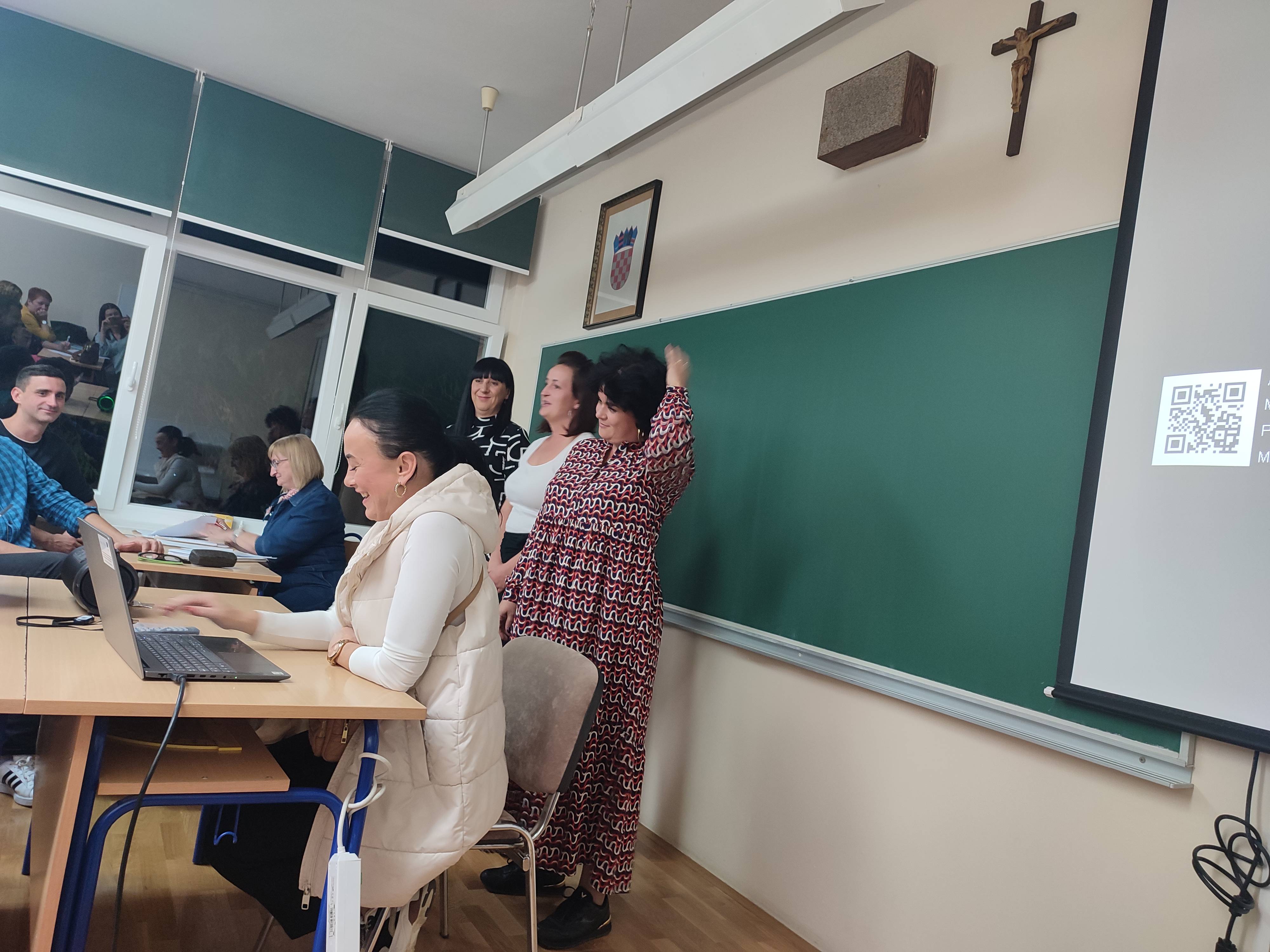
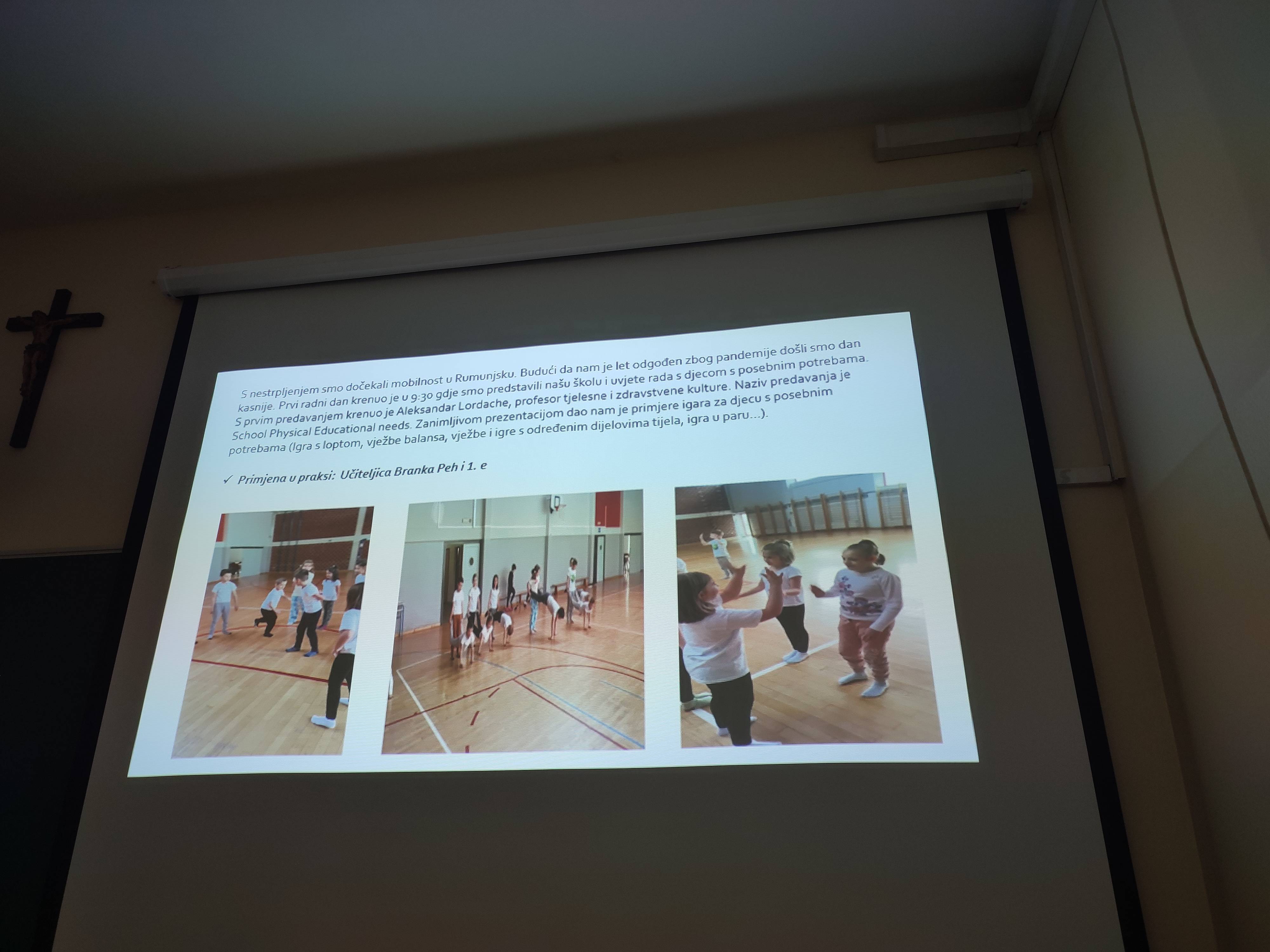
Activities with students with special needs.
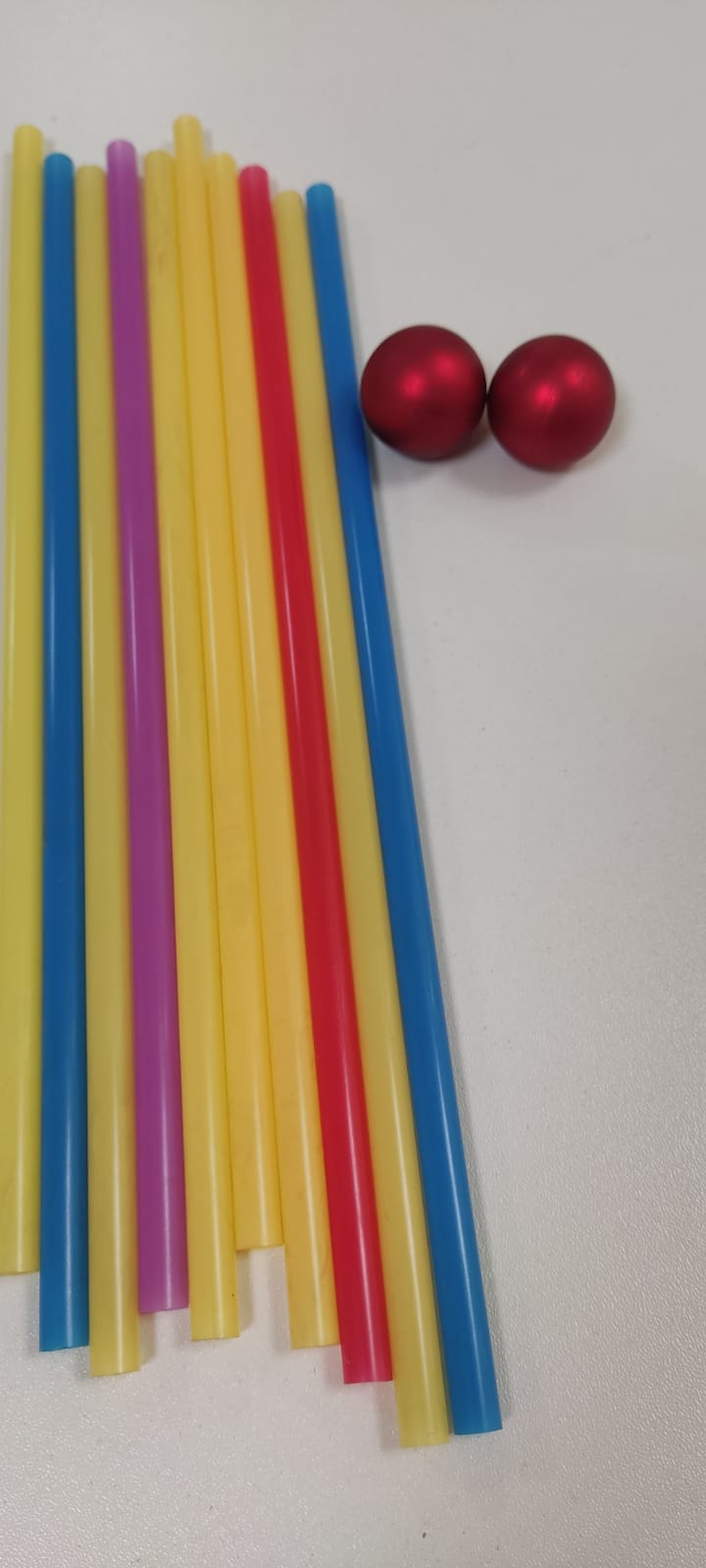
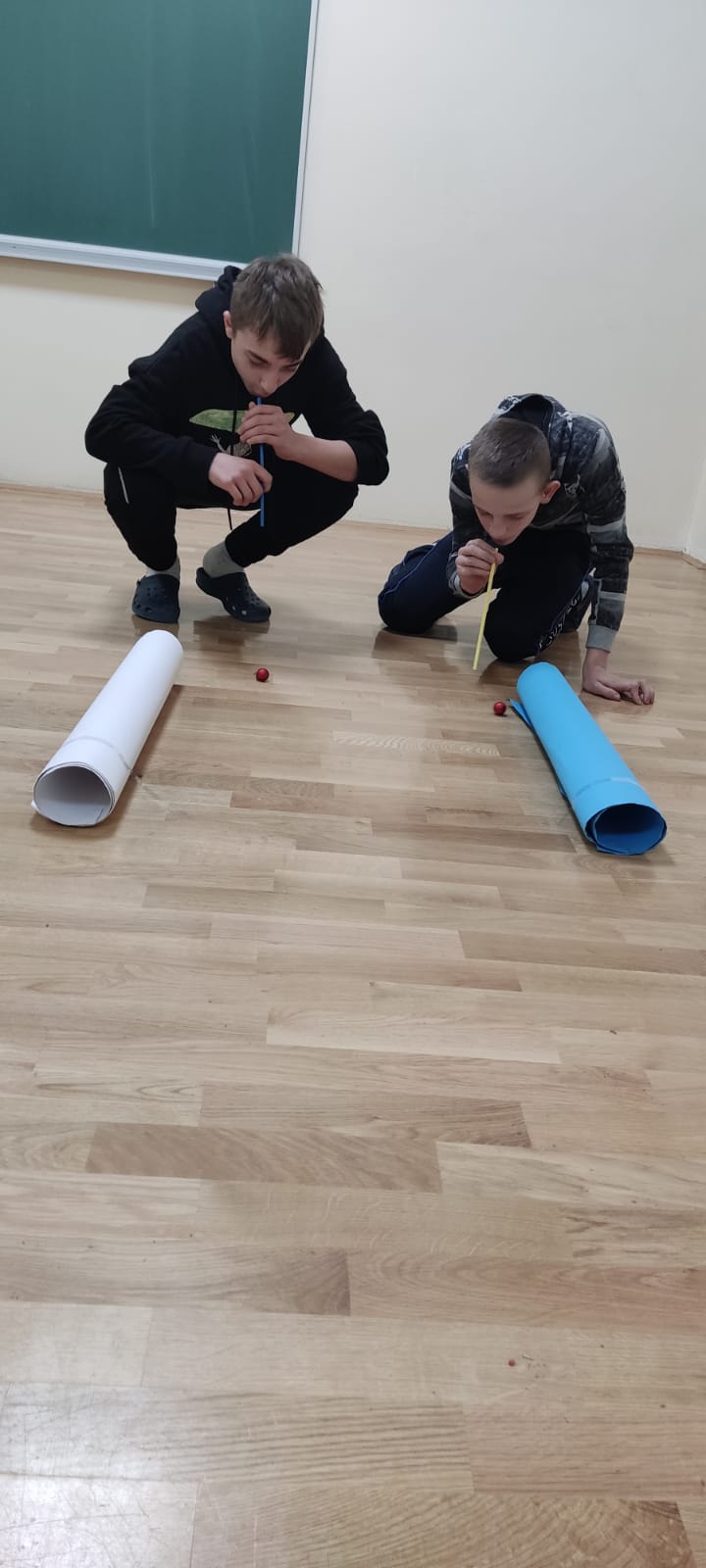
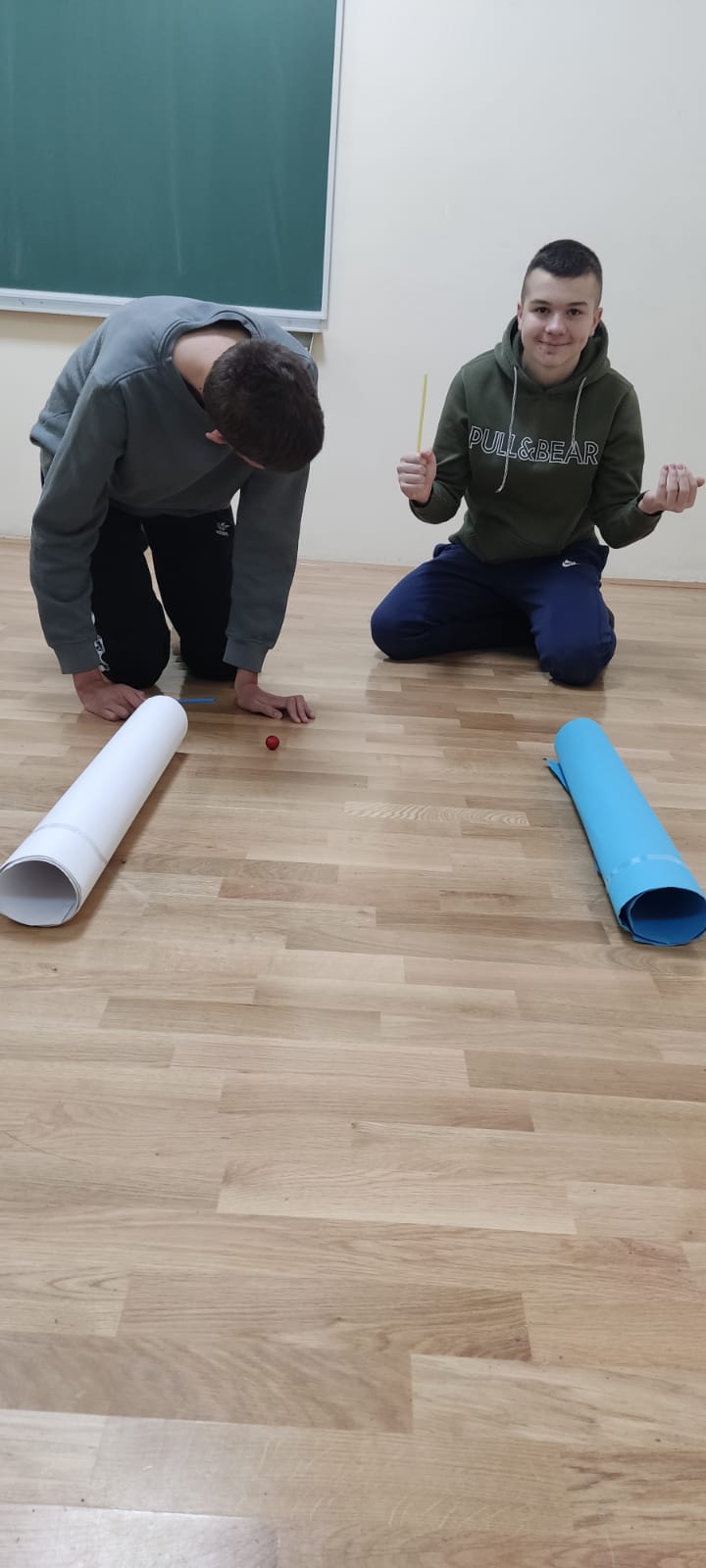
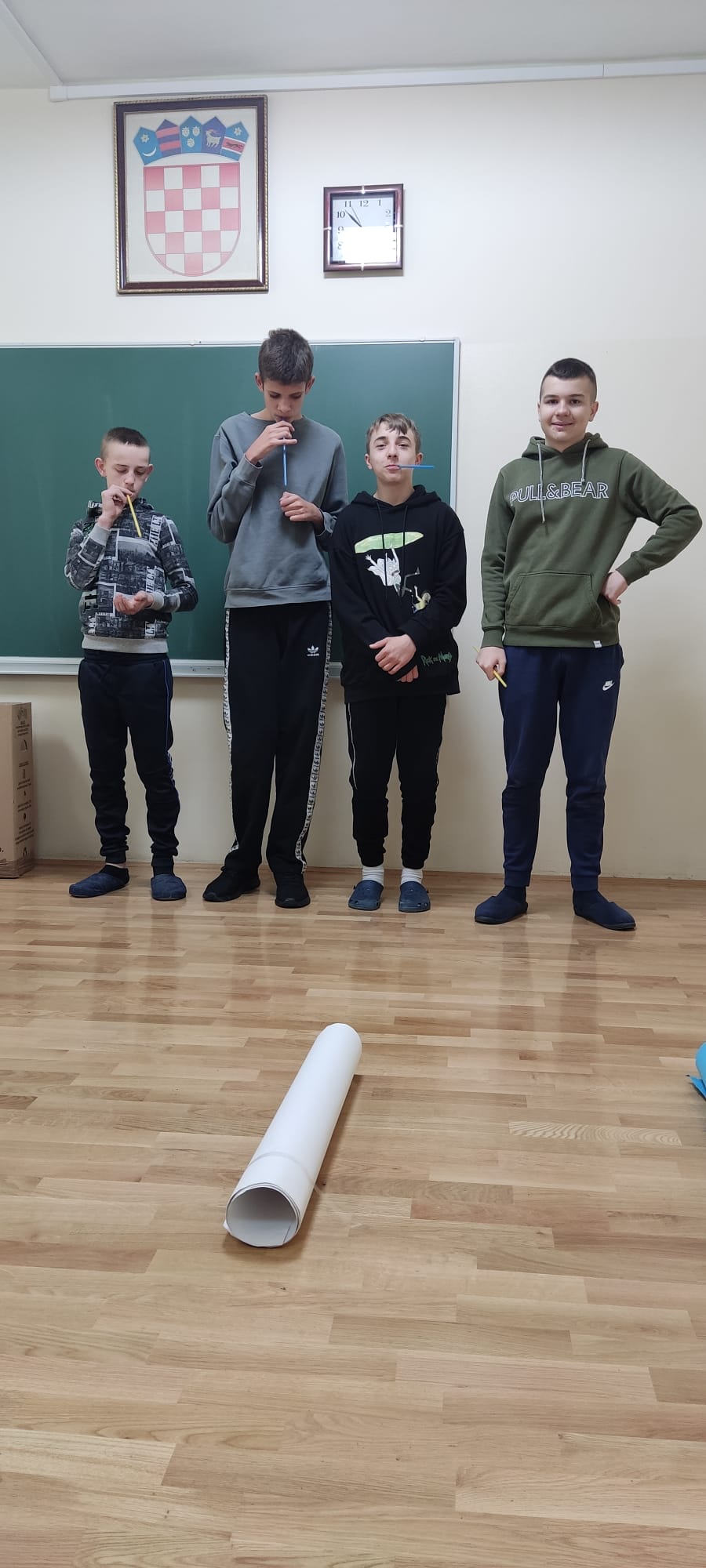
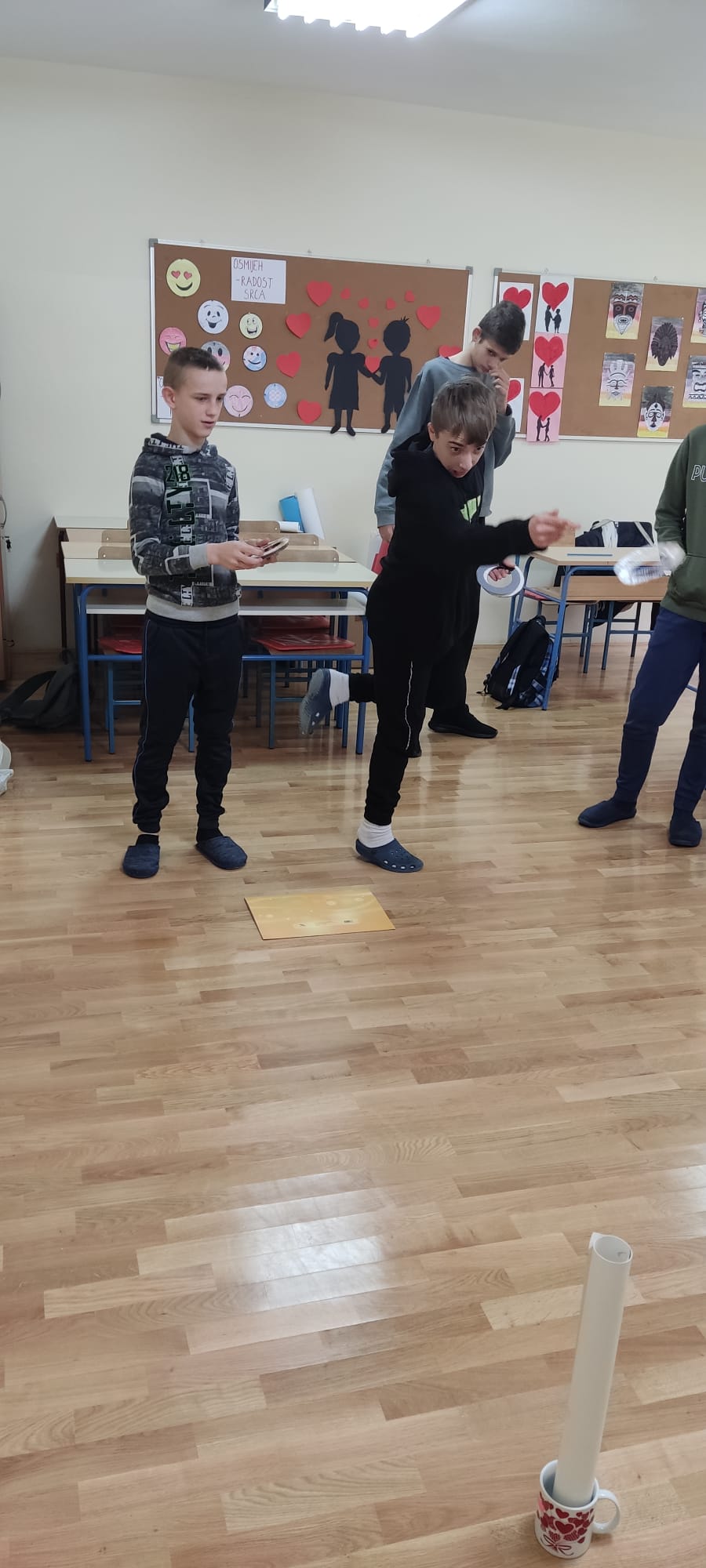
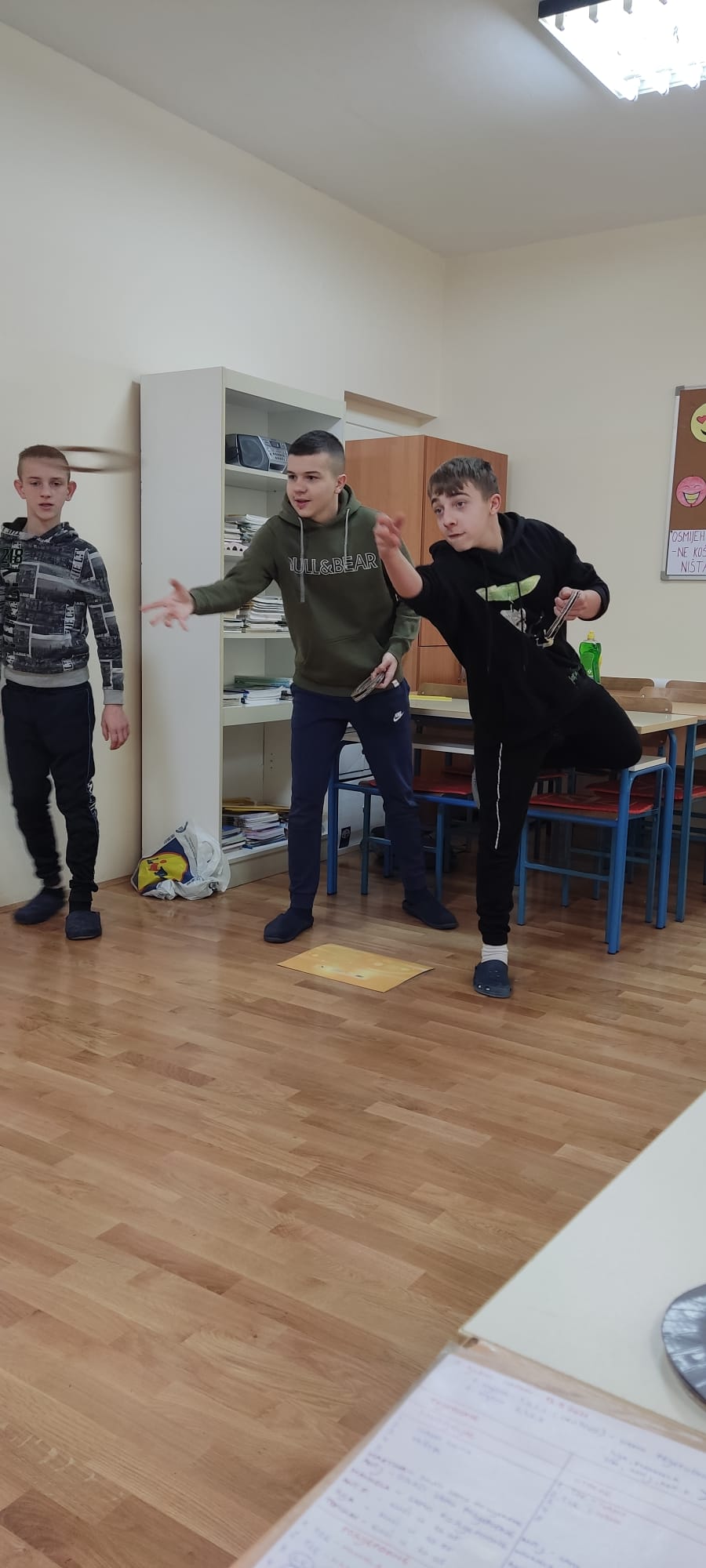
These are examples of exercises and games in which we can include children with special needs. These exercises develop overall motor skills.
One of the aims of the project is the integration of students with special needs in the classroom, tolerance and encouraging inclusion. I attended several lectures and participated in workshops, as a part of the project. That encouraged me to think about how to implement, in my daily work, what I have learned about students with different individual needs.
Accordingly, I decided to dramatize a story called "The Story of the Sun and the Wind." The activity was conducted in all fifth grades during the English class. The students first read and analyzed the story in English and Croatian. The story itself brings the competition between wind and sun in who will sooner force a man to take off his coat. The wind was the first and it blew hard into the man, but this one just wrapped his coat around himself even tighter. Then the sun shone and the man simply took off his coat because of the heat. This was followed by work in groups of three students, as we have three roles in the text - the sun, the wind and the man in the blue coat. The students were divided into groups within the groups, so that the students with special needs were given the role of a man in a blue coat, because this role requires the most facial expressions, gestures and acting. Students with special needs also made simple props which other students used when acting.
Zvonka Ivković
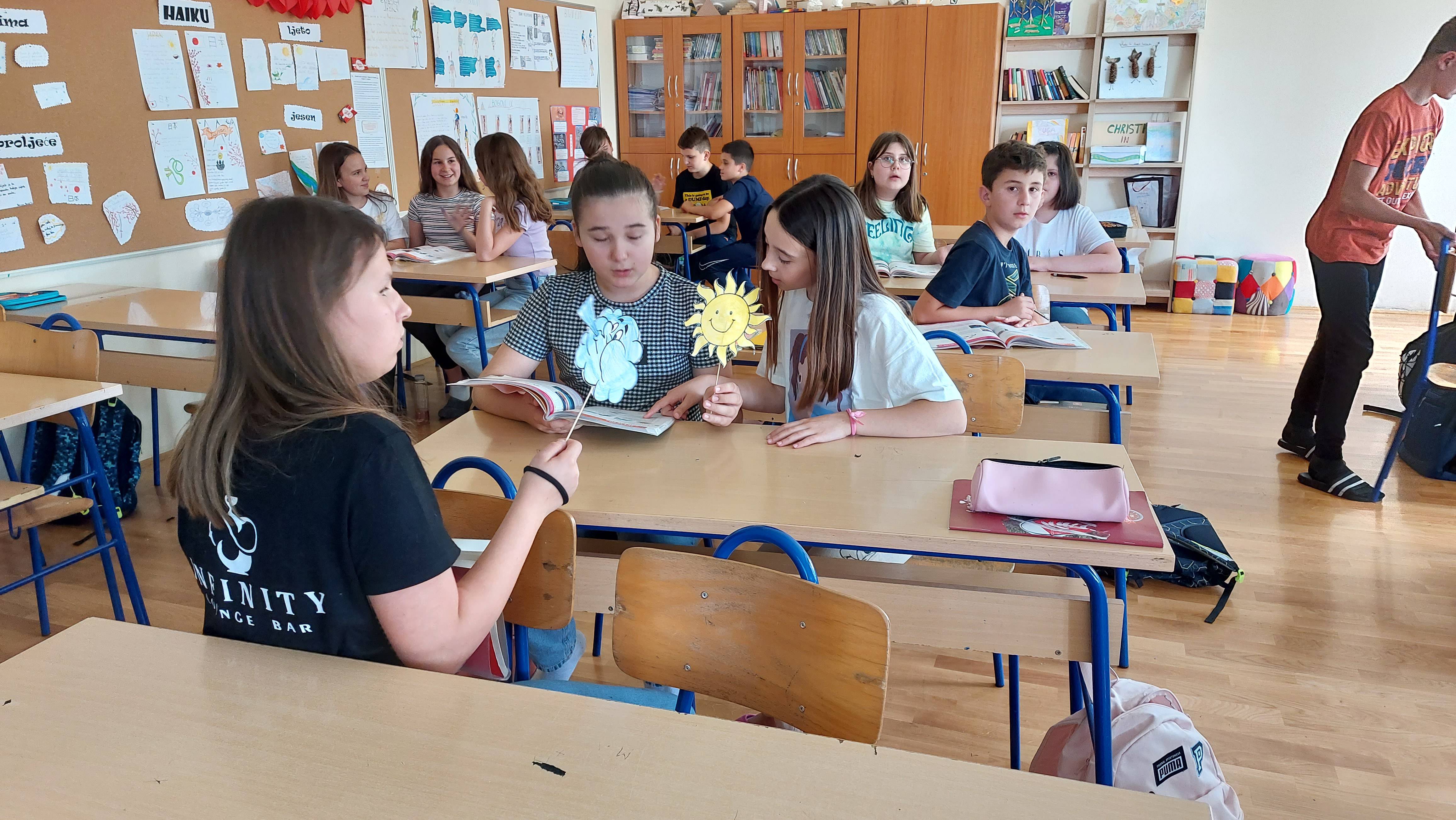
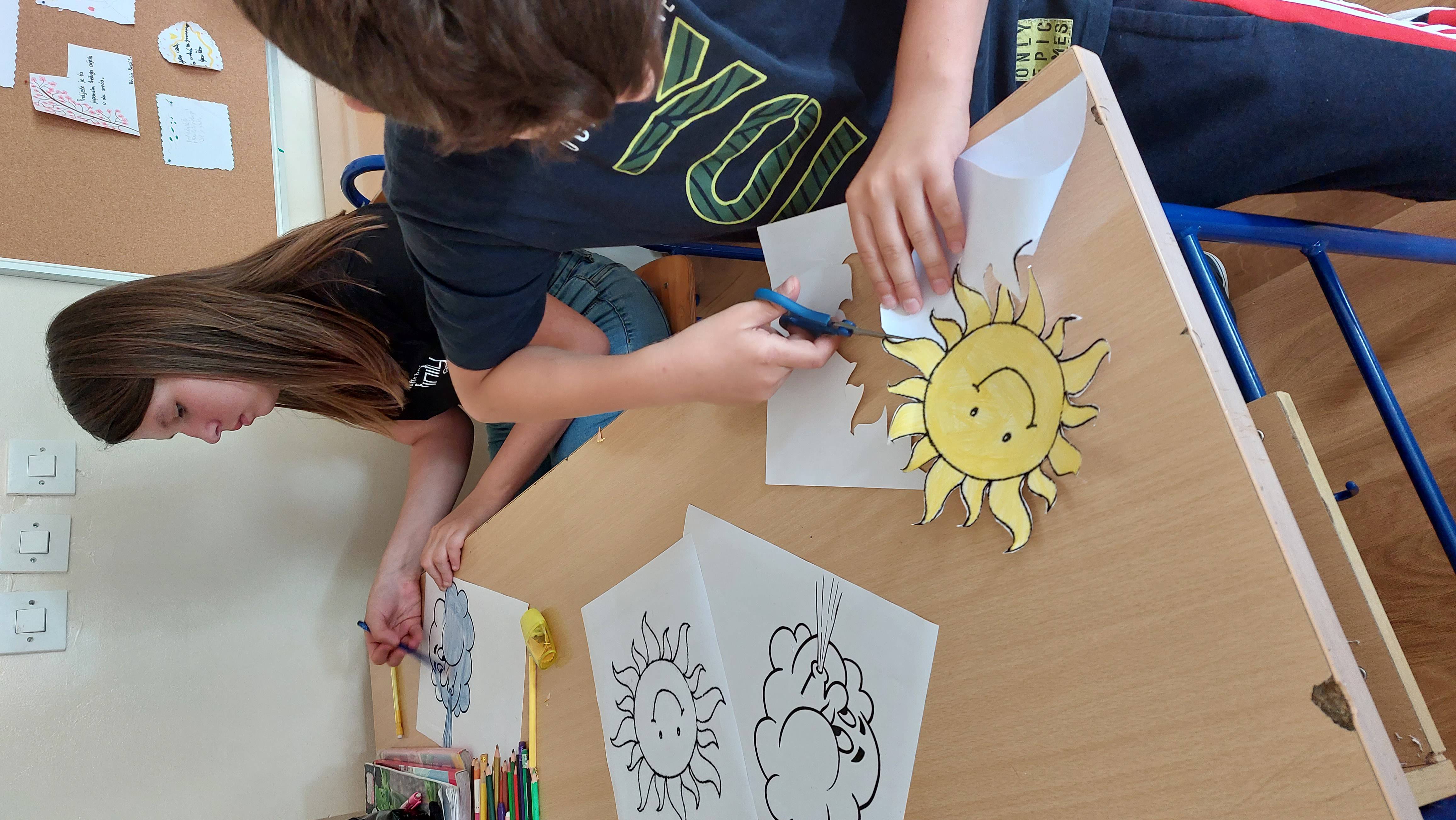
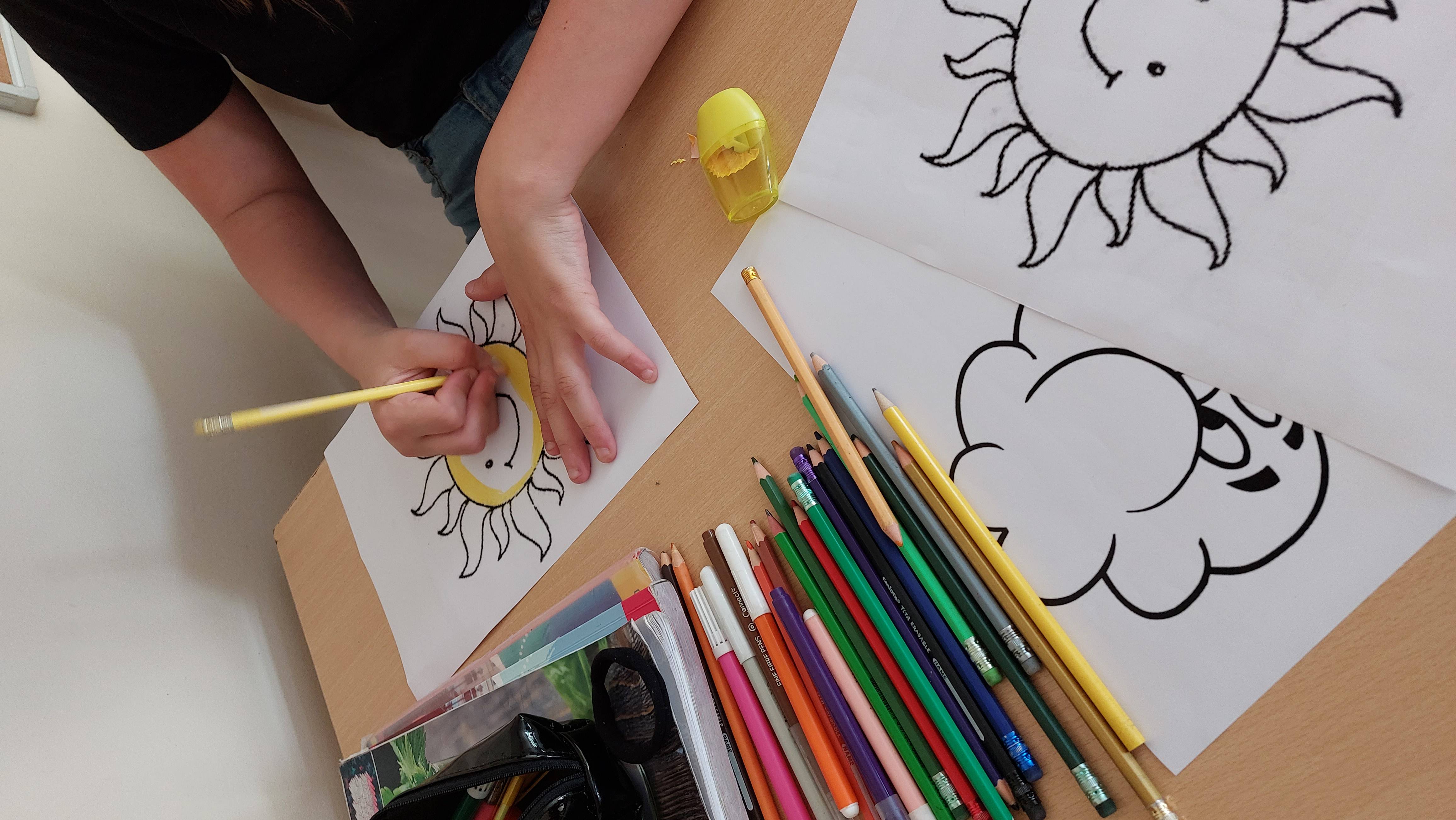
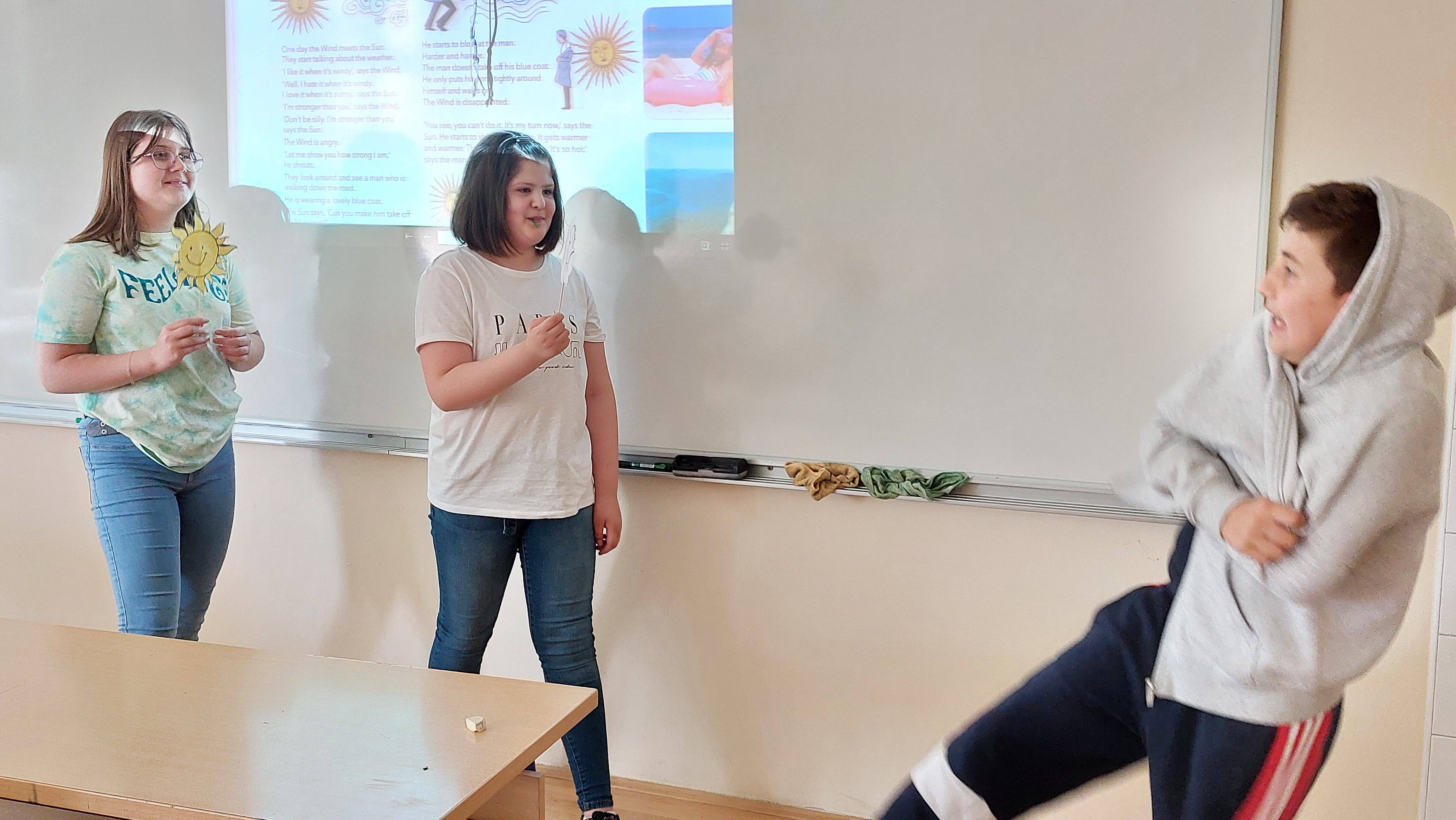
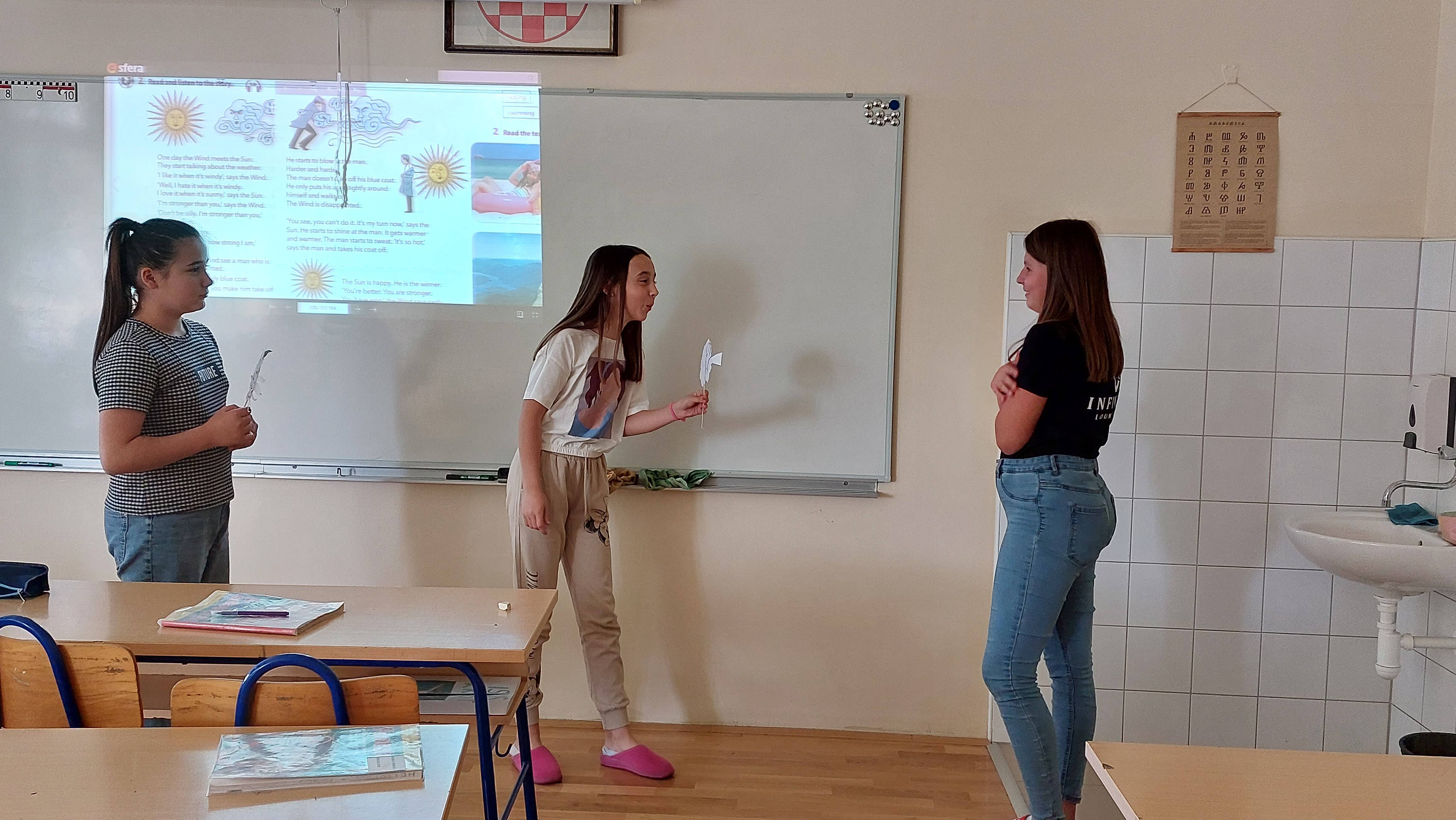
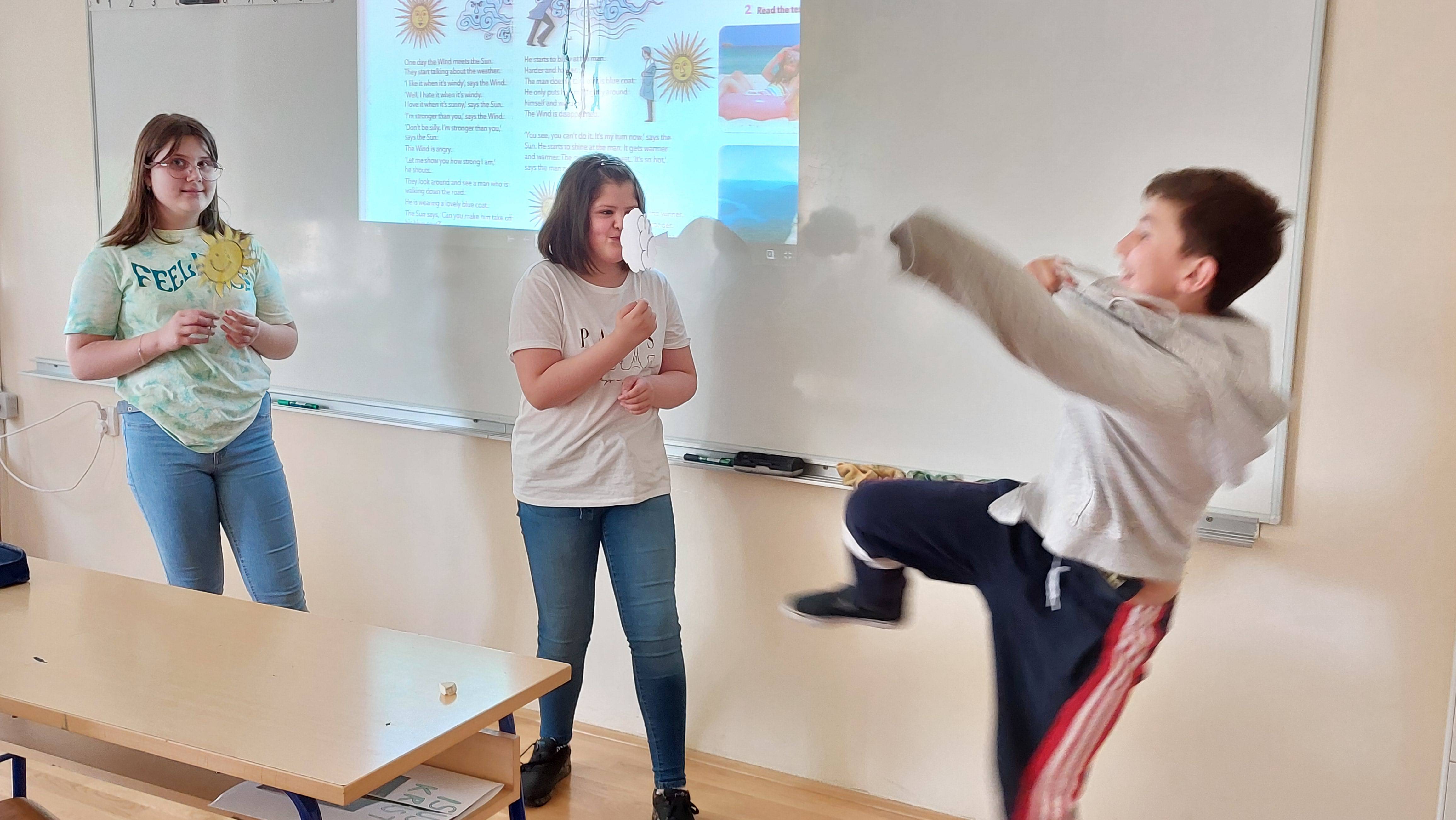
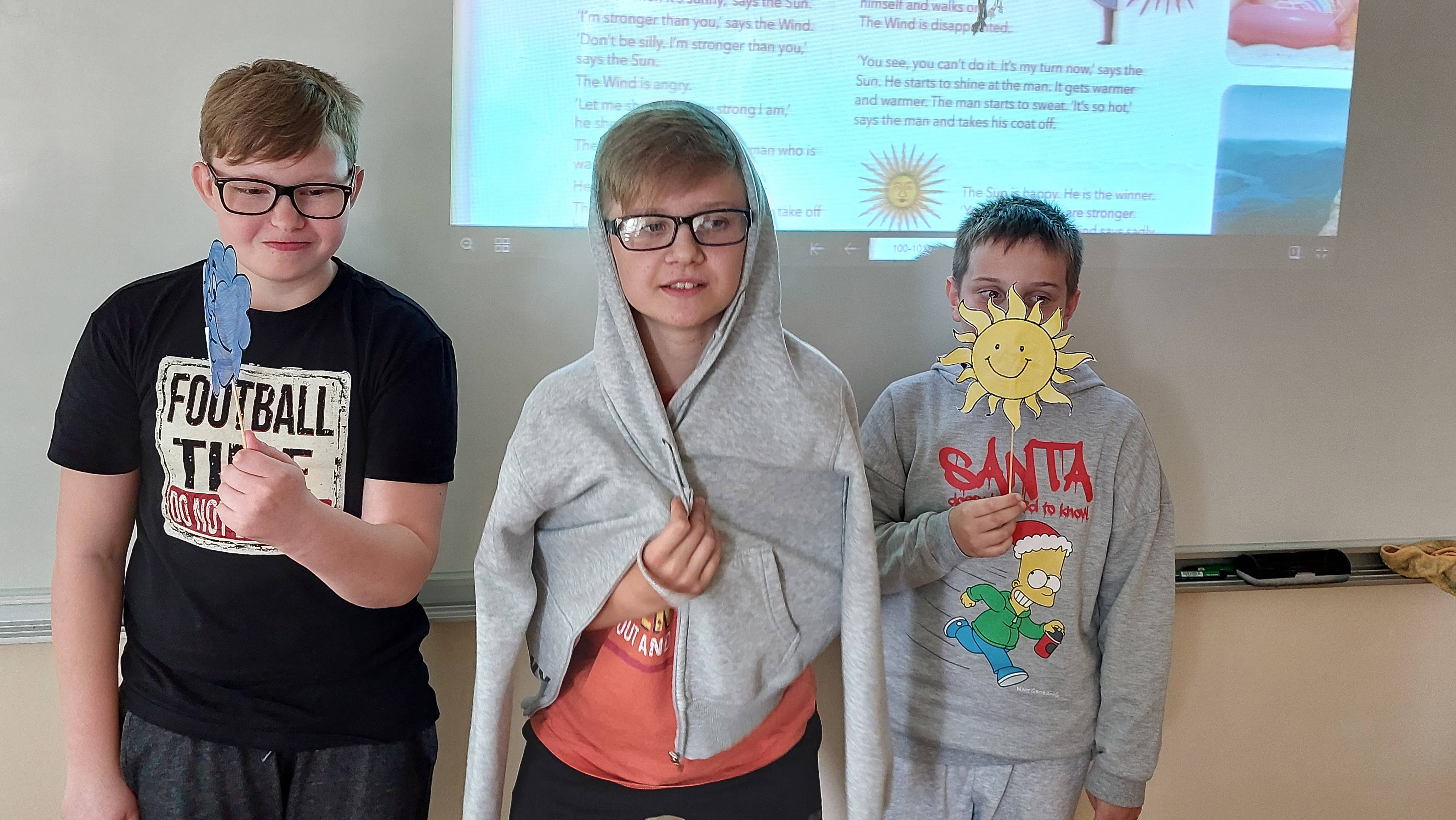
Prejudice is a preconceived notion of a person or a group of people without properly knowing them. Respect, acceptance and appreciation of diversity in our cultures are our form of expression and the way we are being humans. It is based on previous knowledge, openness, communication and freedom of thought, conscience but also our belief. The aim of the workshop is to help us learn the concept of prejudice, to be aware of prejudices about others, to meet different people and their culture, which will help us to be more tolerant.
Tanja Matanović
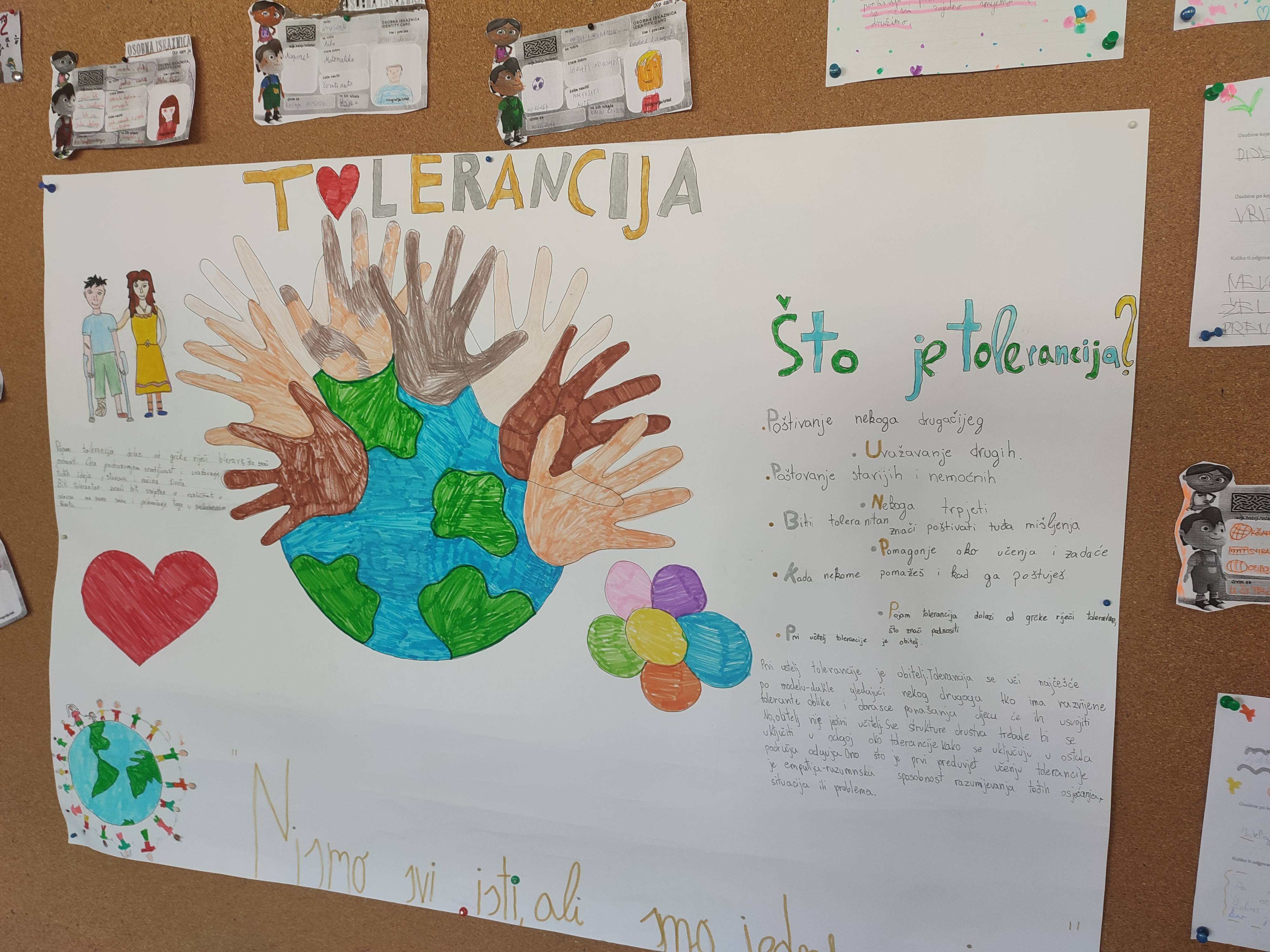
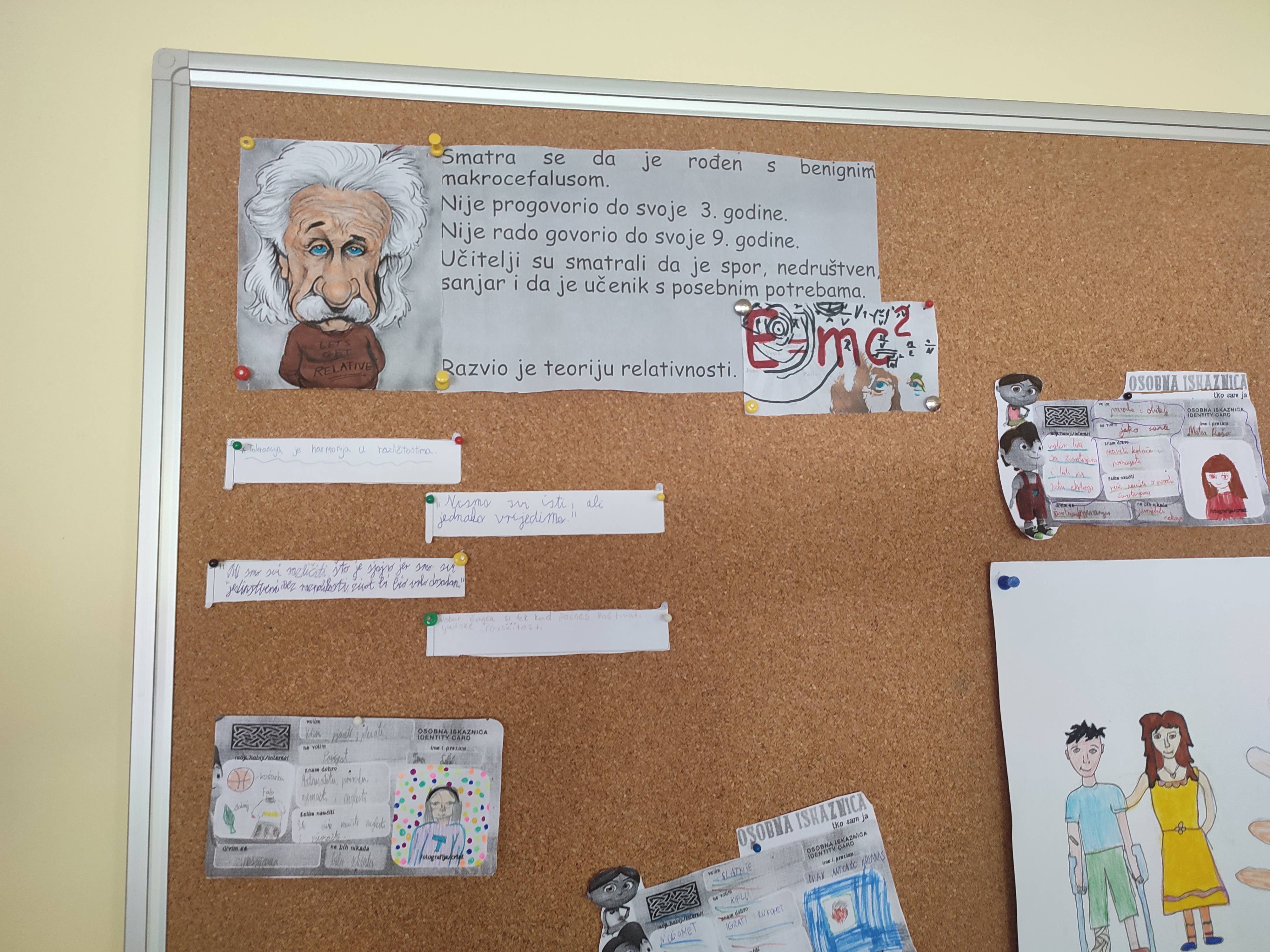
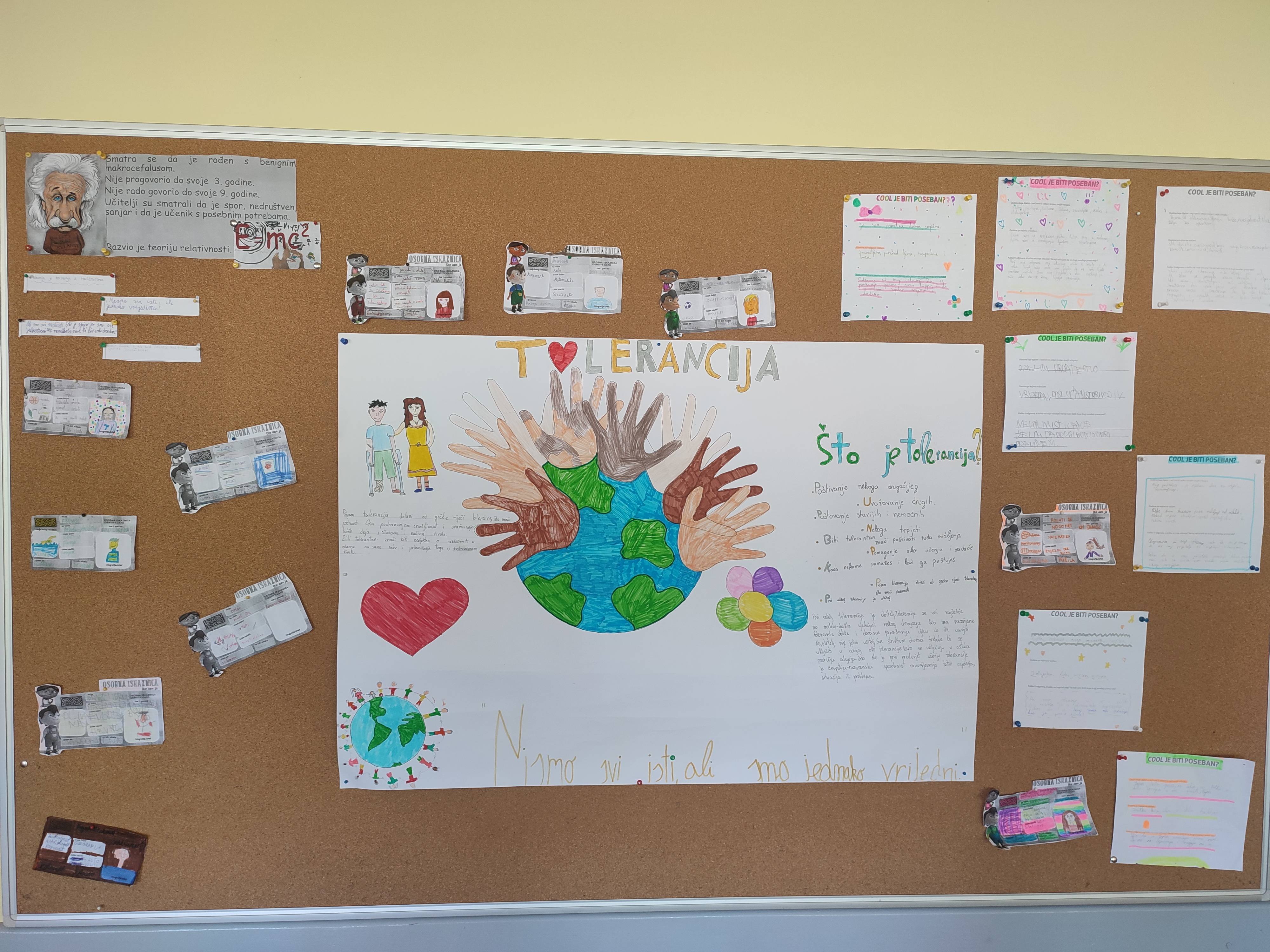
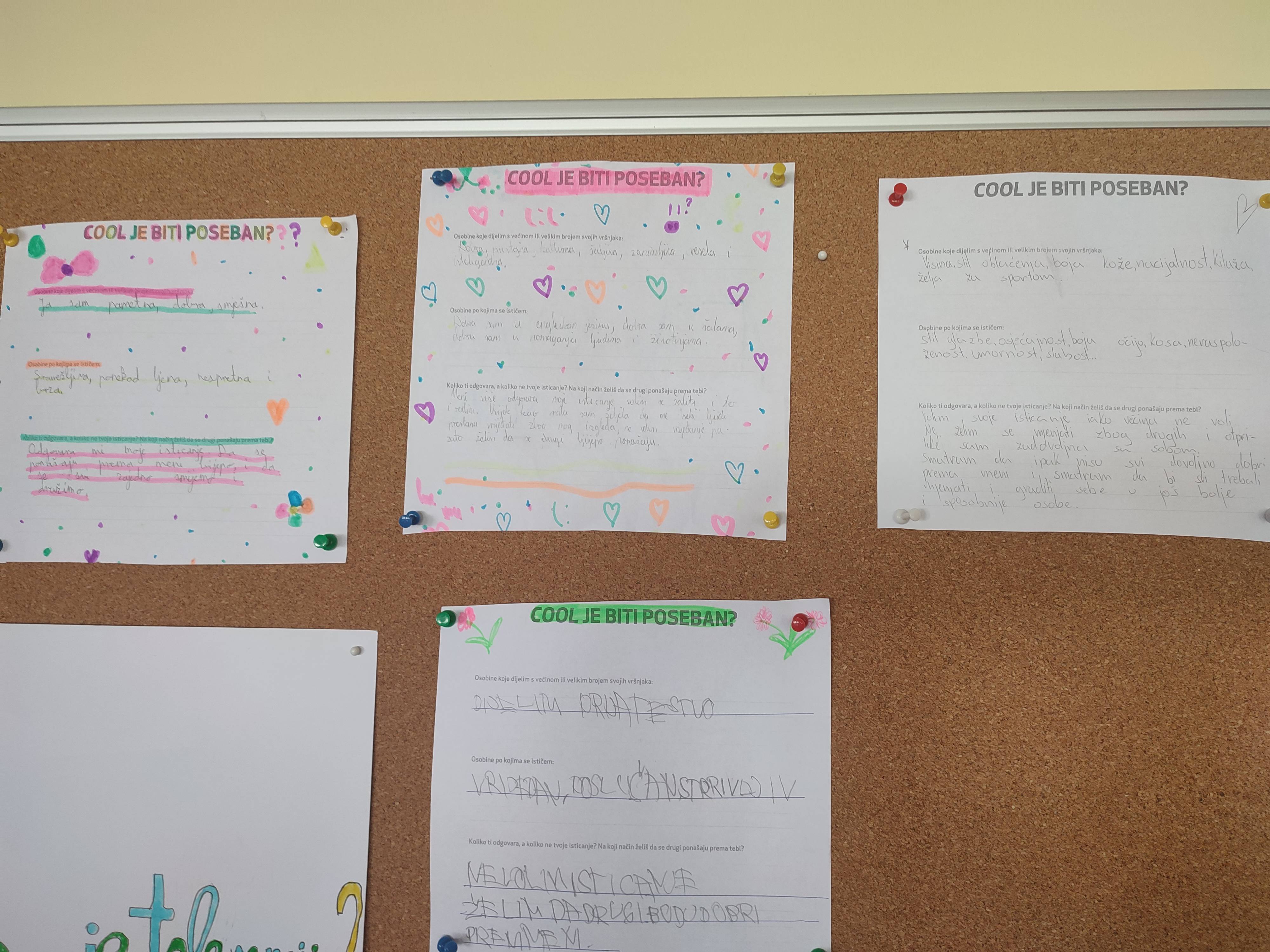
Physical Education for children with special needs
We adapted the adopted activities to the micro-breaks in our classroom. We have chosen activities in which we encouraged cooperation. Furthermore, we were moving the whole body with exercises involving strength and stretching.
Jelena Miković
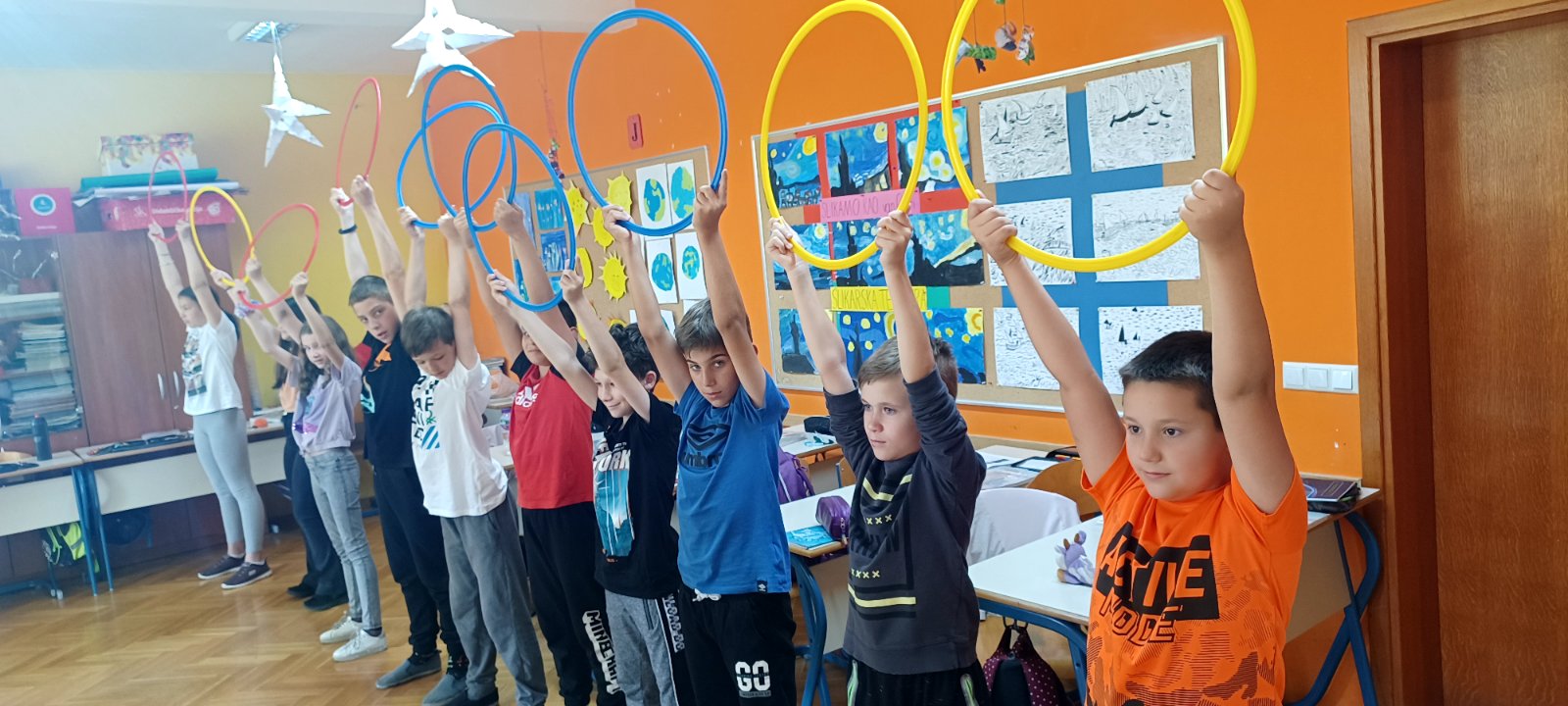
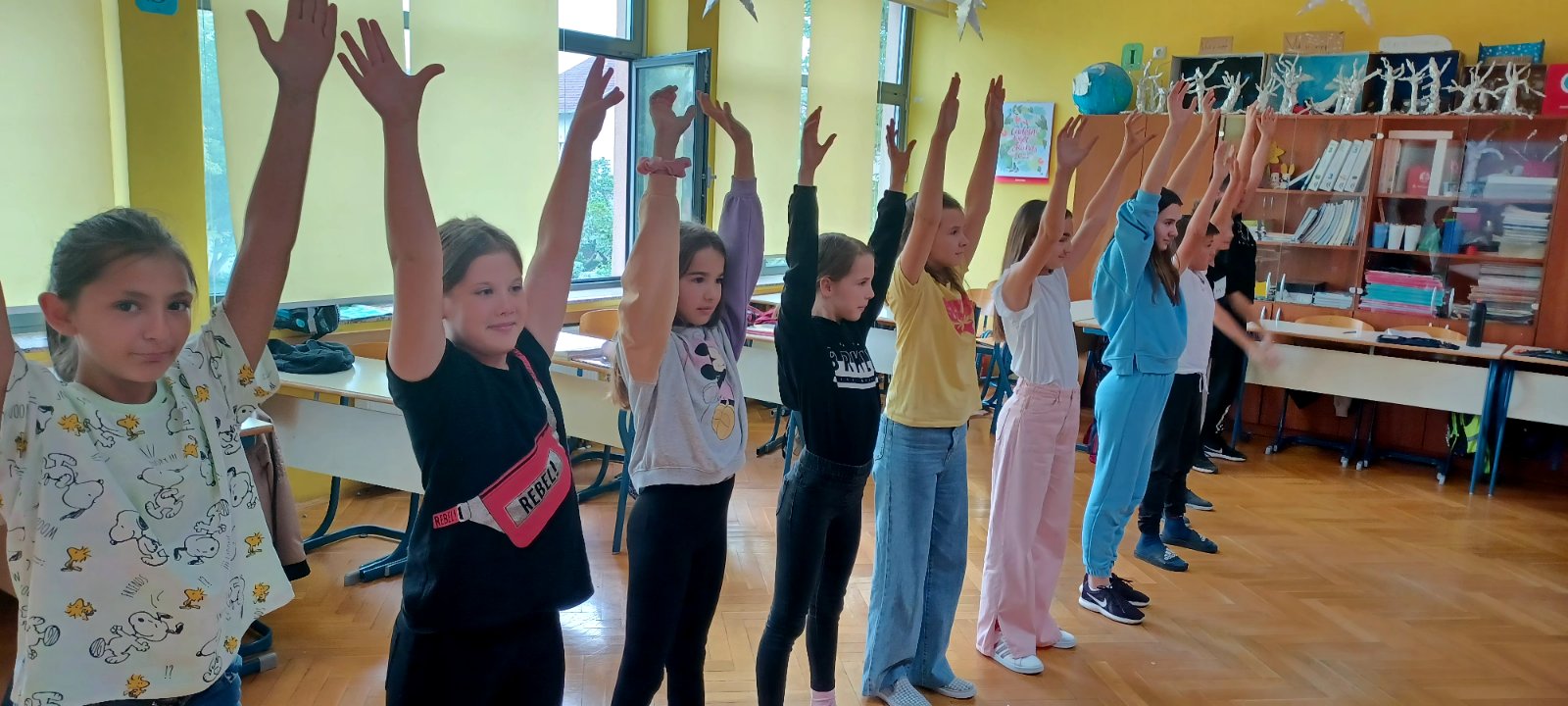
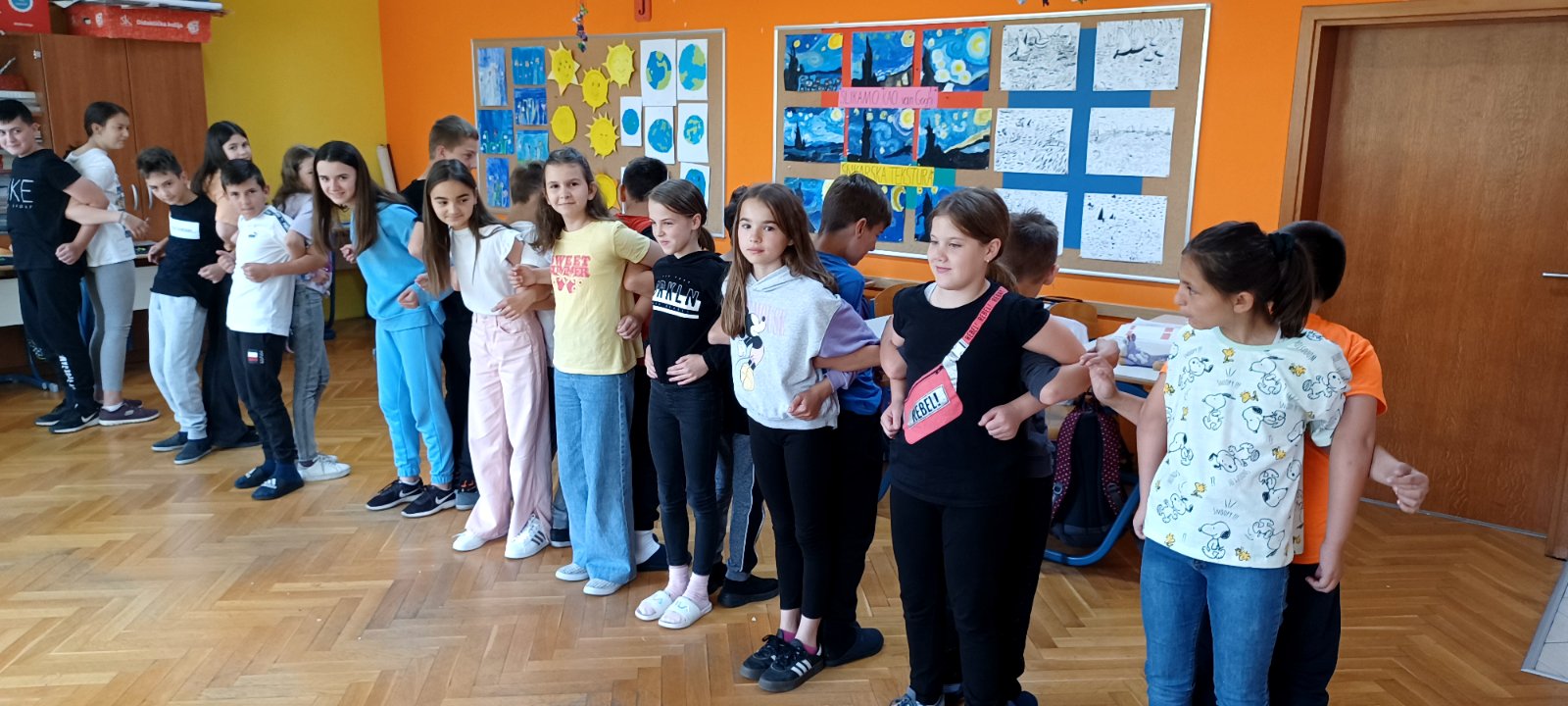
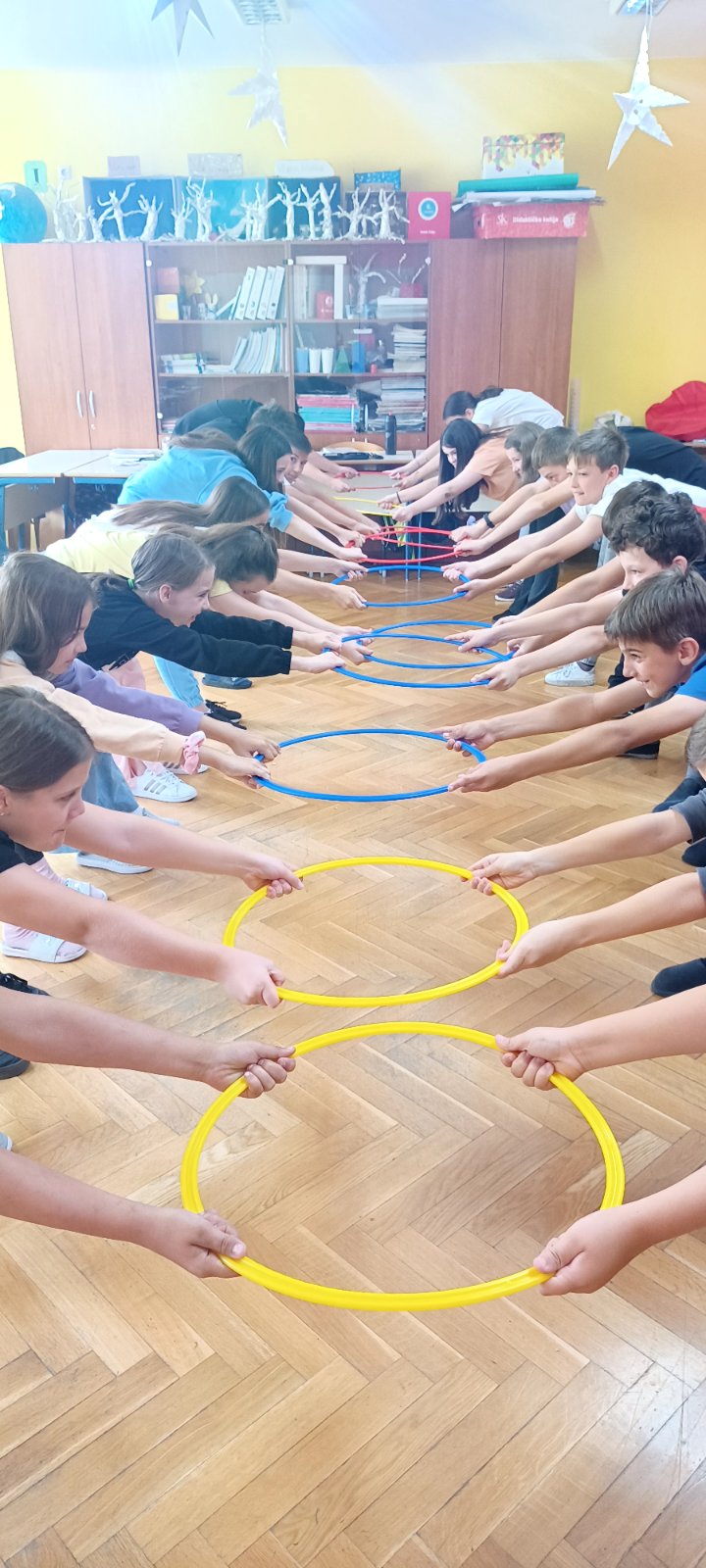
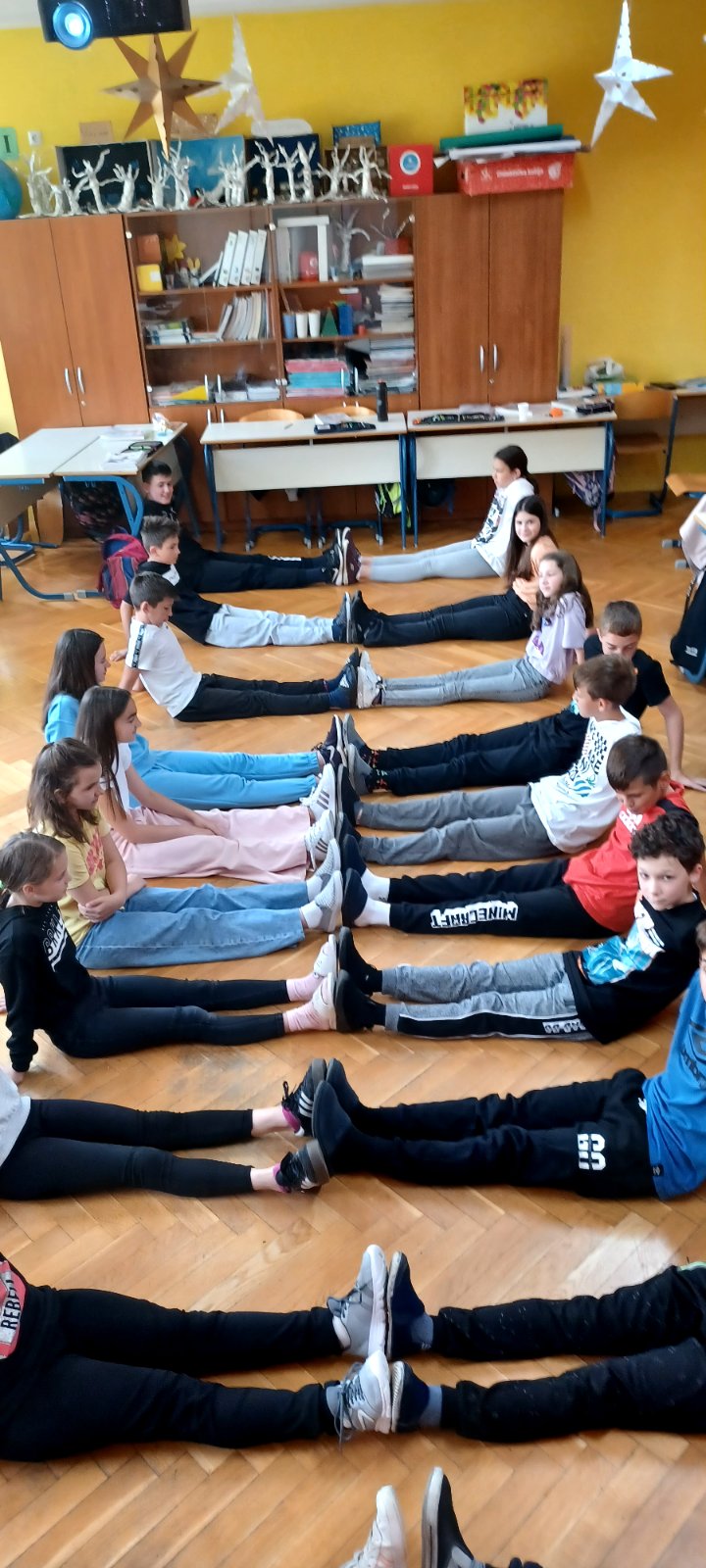
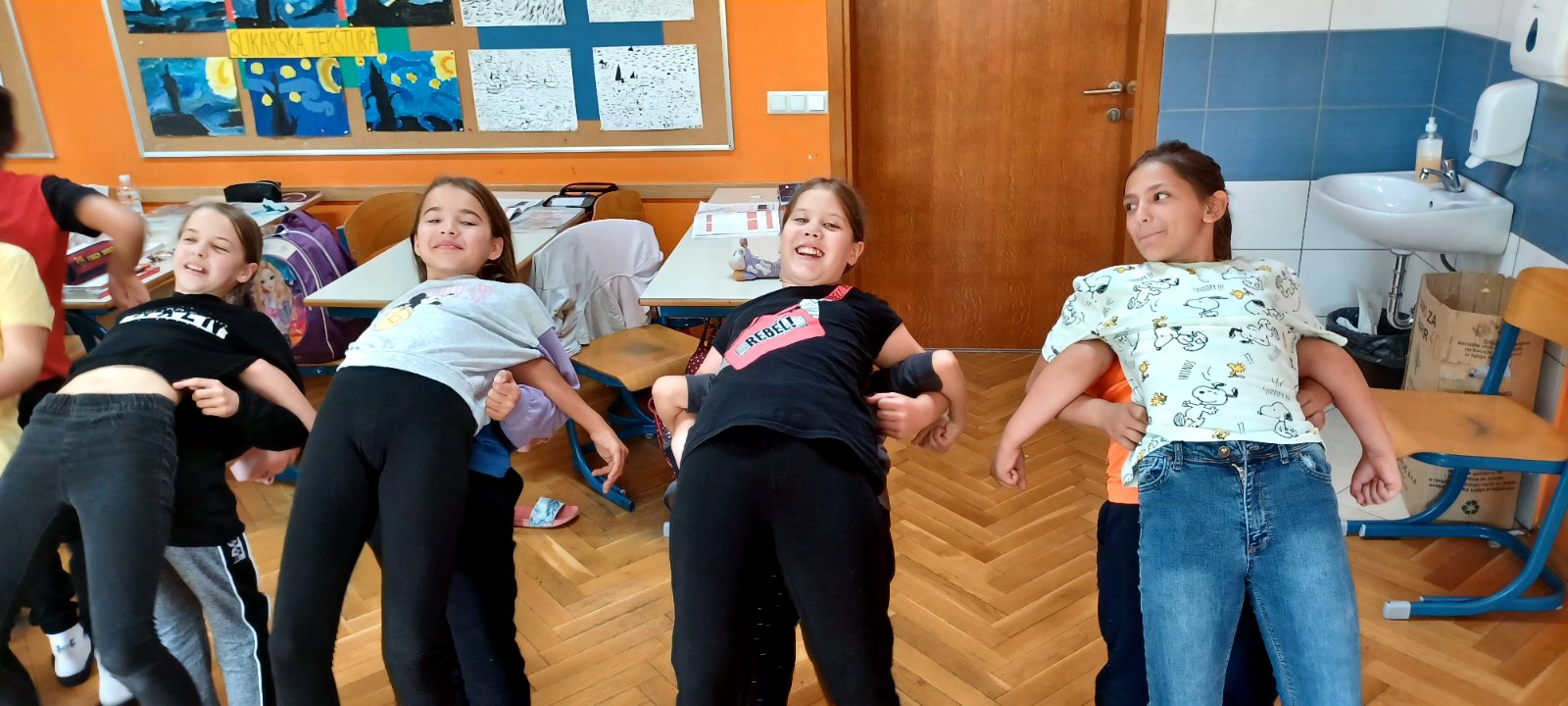

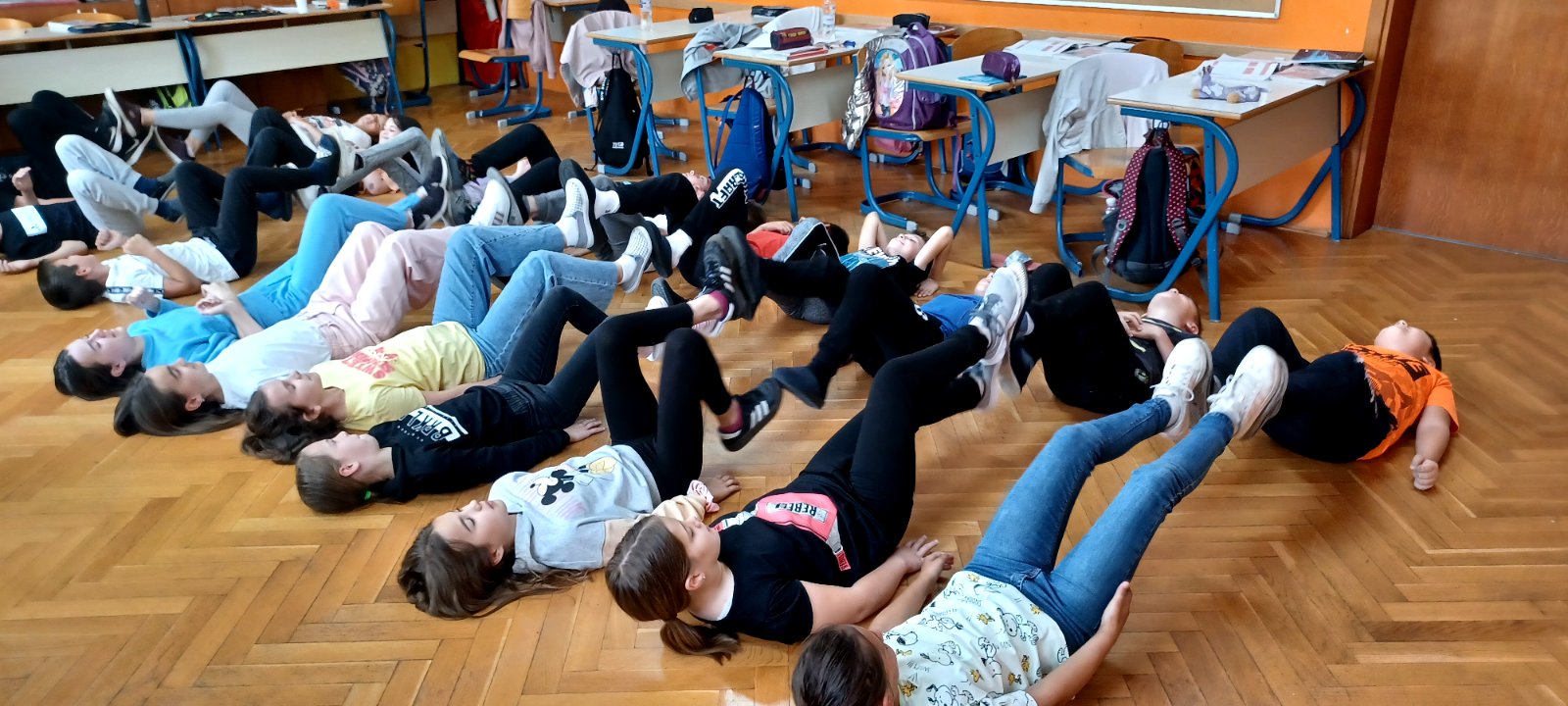
After we returned from another mobility within the project “Notice me my teacher” in Romania, I decided to touch a part of Romanian culture with the students in the class. The students got to know the song "Dacă vesel se trăiește" (When you are happy, you clap your hands). They were looking forward to singing a famous song in Romanian. We talked about Romanian culture, customs and their school. At the end of the class, we listened to several traditional Romanian songs.
Nikolina Stanić
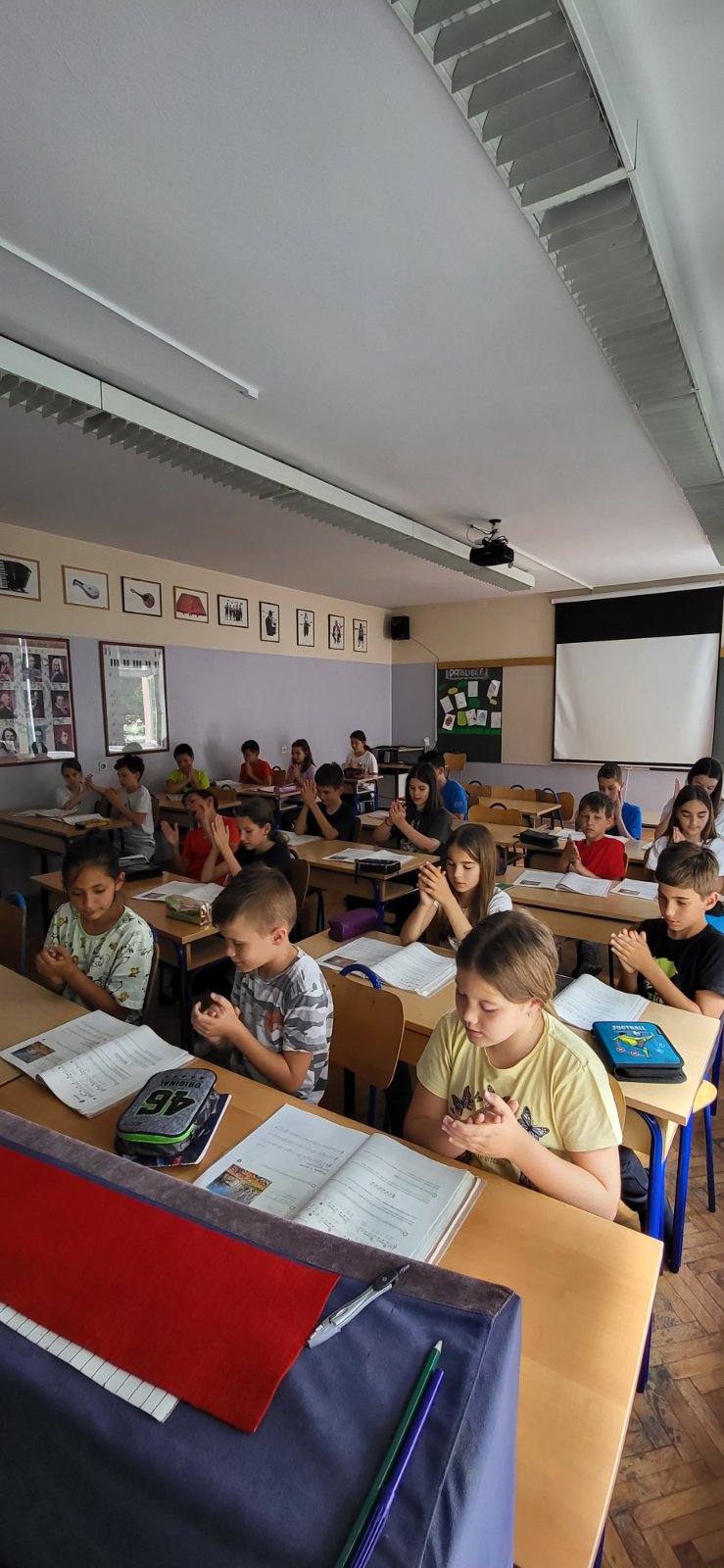
Exercises that were presented to us are very often and gladly performed by the students in the PE class. They have a positive effect on the development of coordination, balance, strength, endurance, cooperation in space with other students and other movements related to motoric ability. They also contribute to a positive working atmosphere where children achieve their learning goals better.
Anita Vodopija
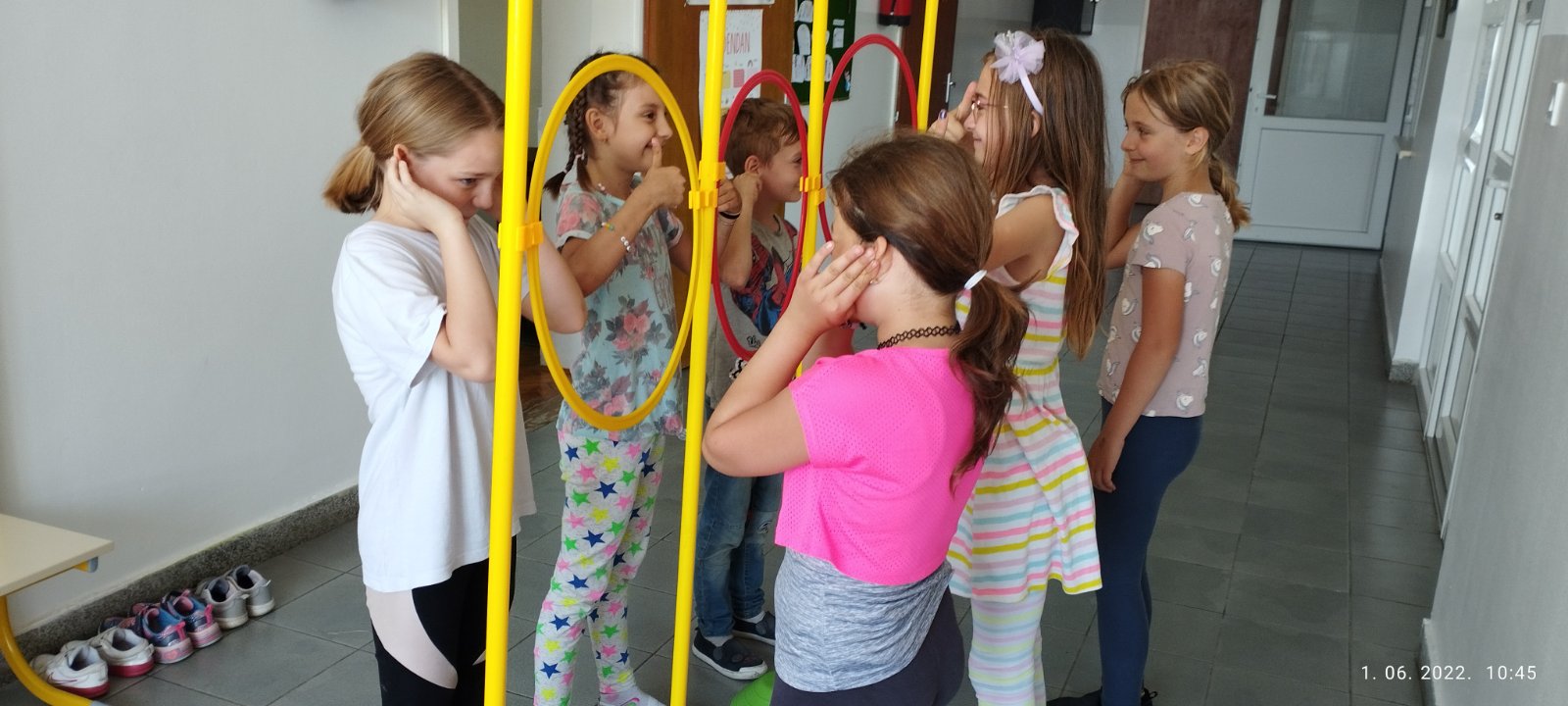
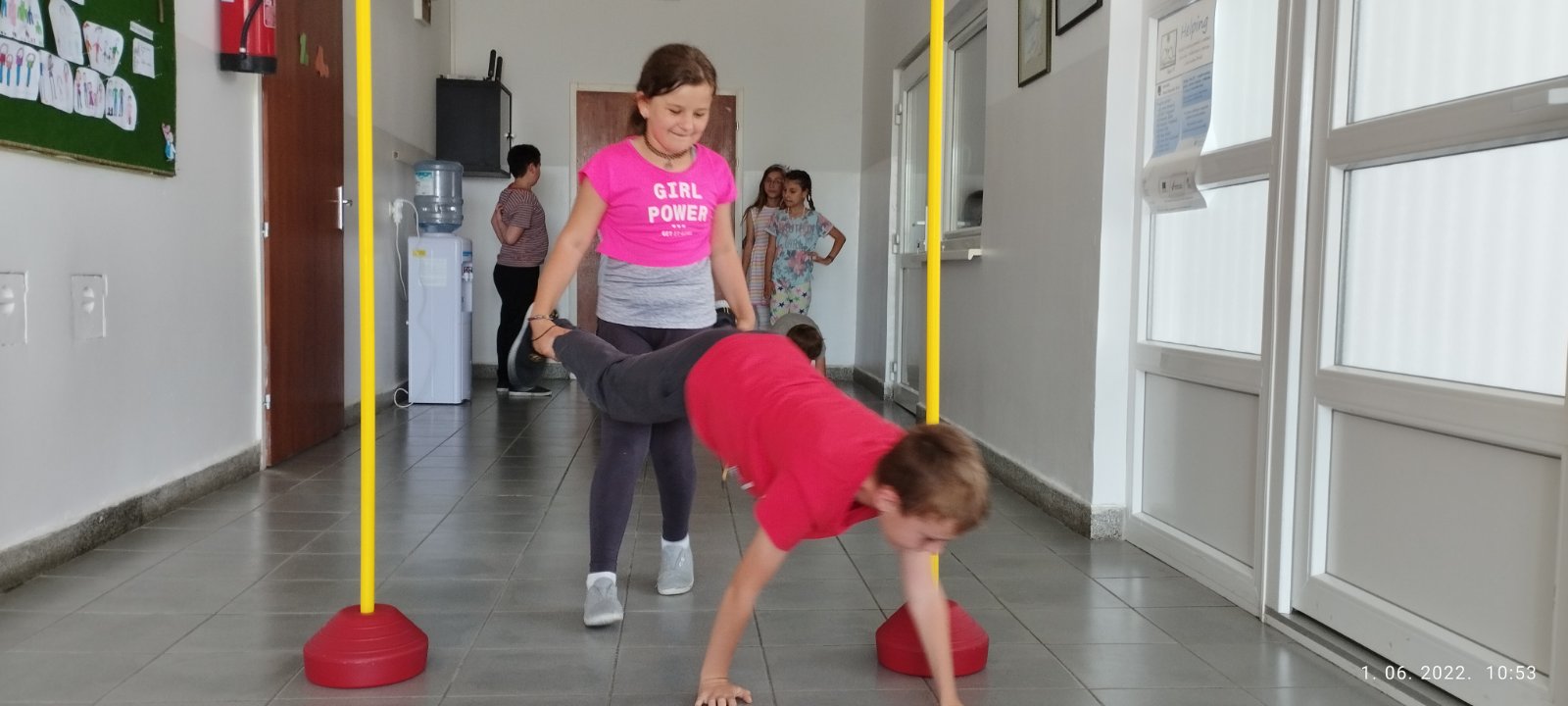
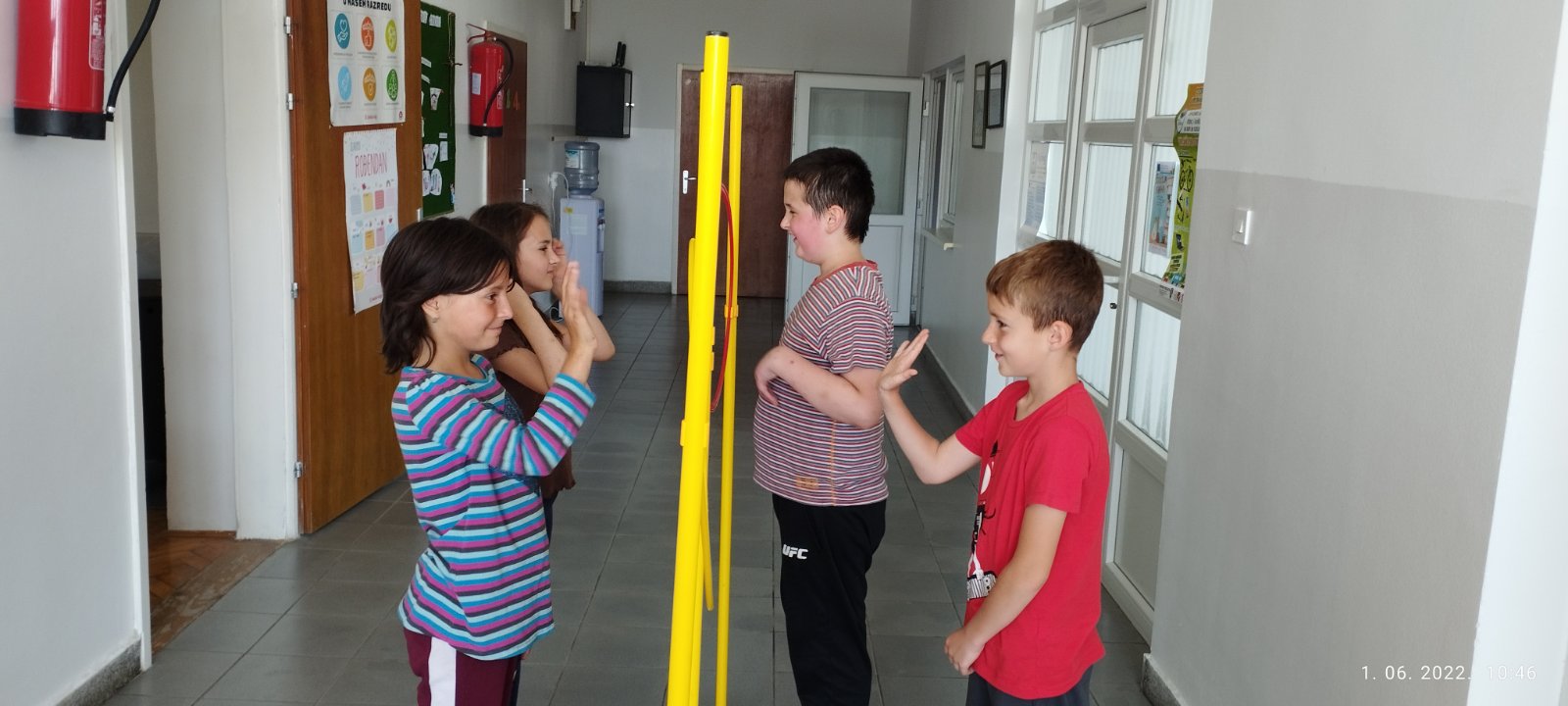
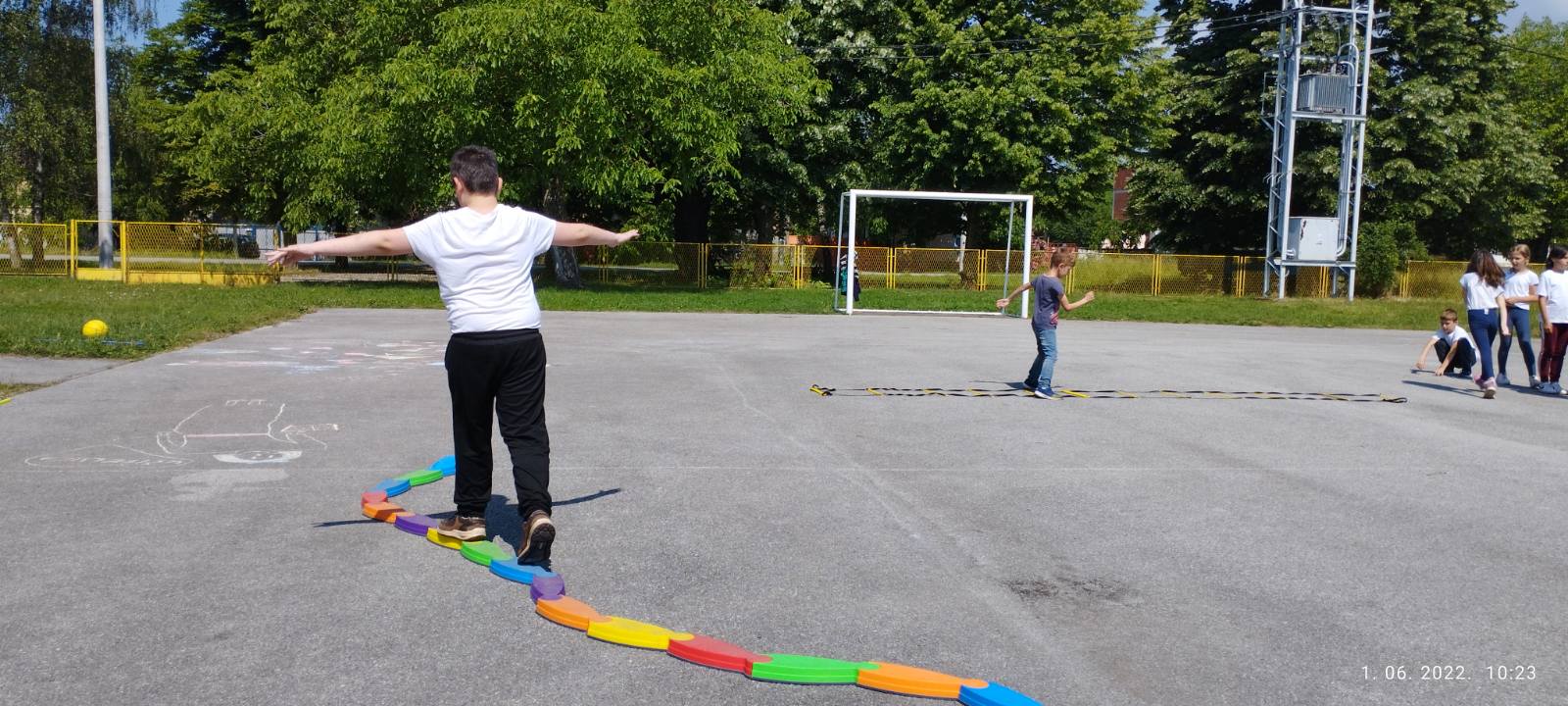
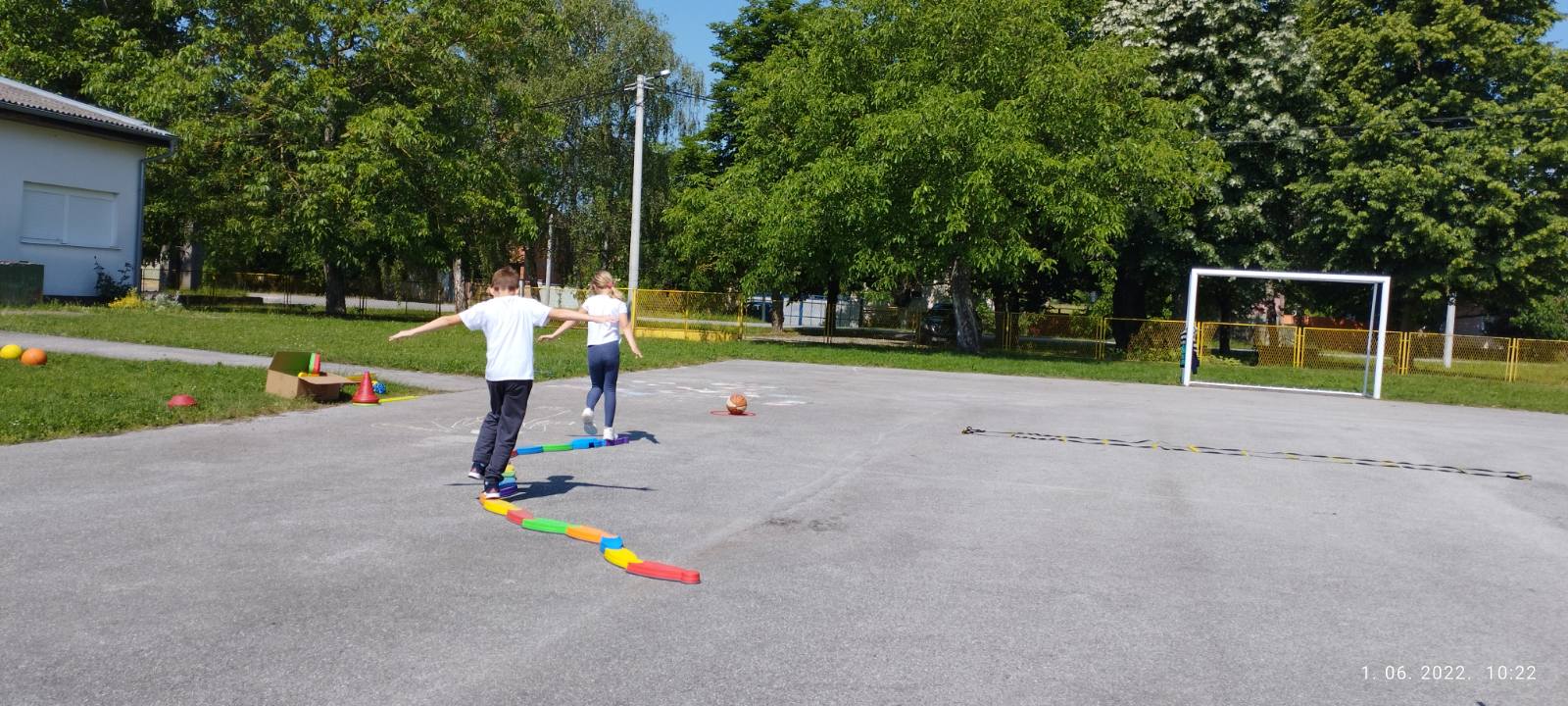
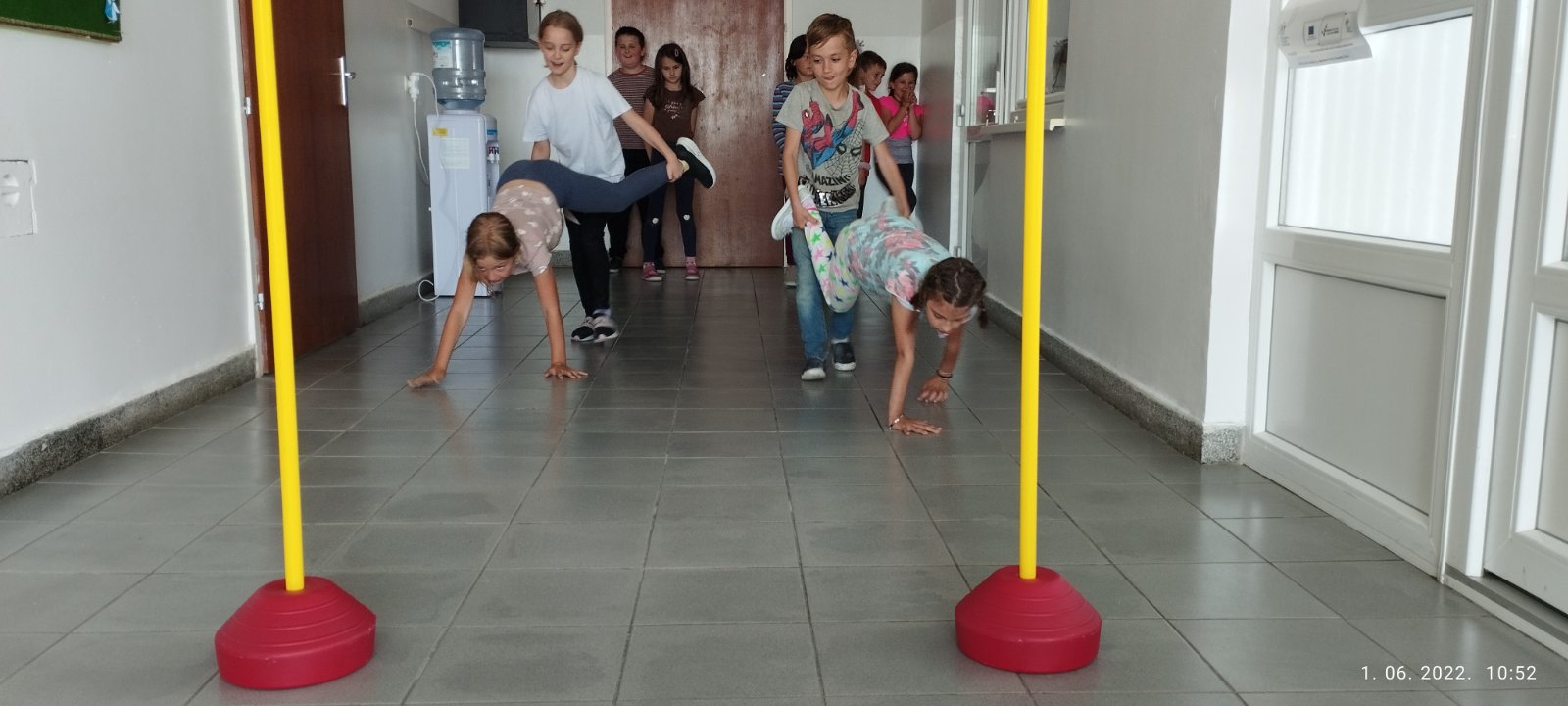
Sixth graders were challenged to walk as much as possible in a week. Each evening they had to send the number of steps passed and to write in German what they saw while walking. A week later, the challenge began in seventh grade. At the end of the week all the steps taken were added up and we announced the winners and handed out prizes. The students were happy and satisfied at the end of the challenge because they were more active and expressed a desire to continue the challenge in the next school year.
Inga Lipovac
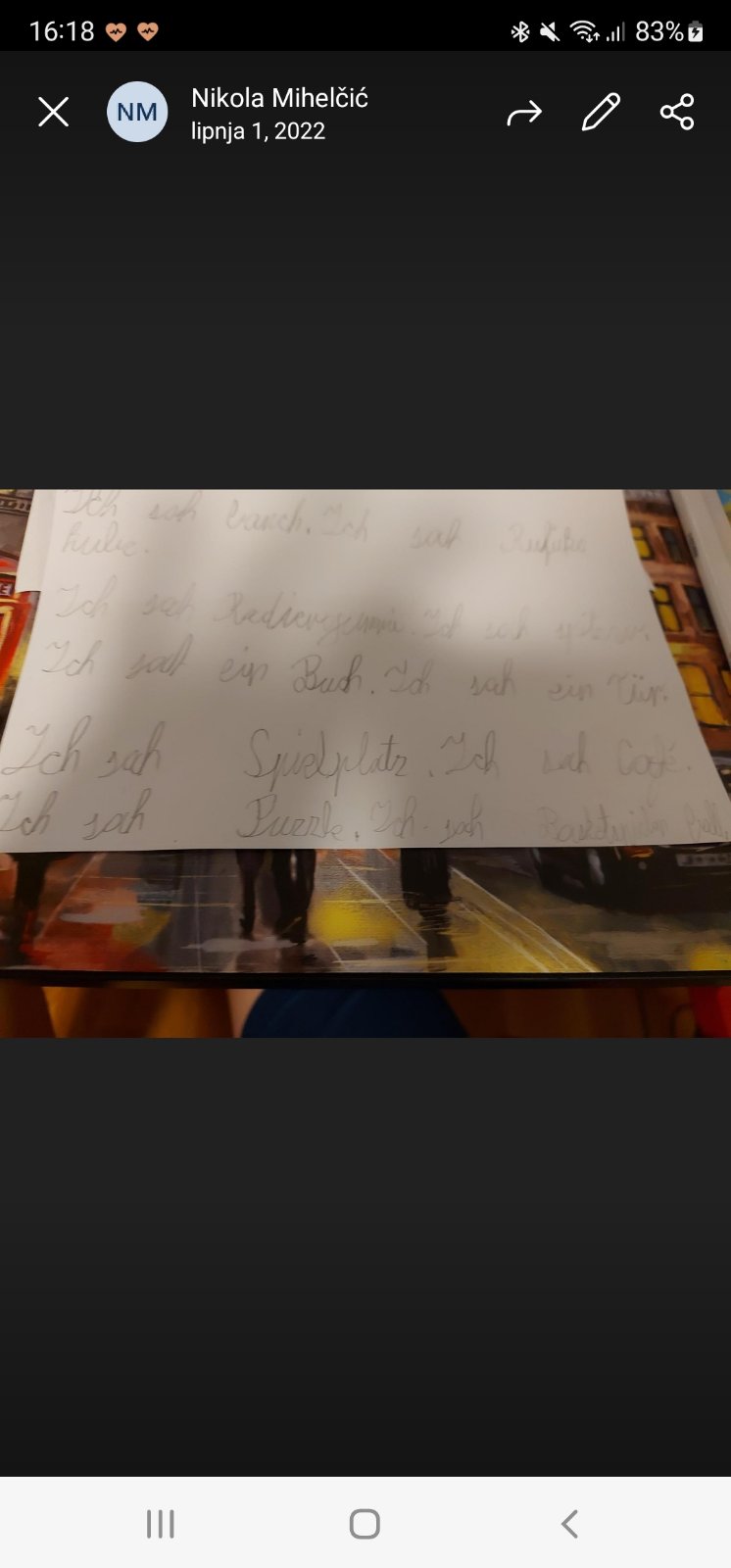
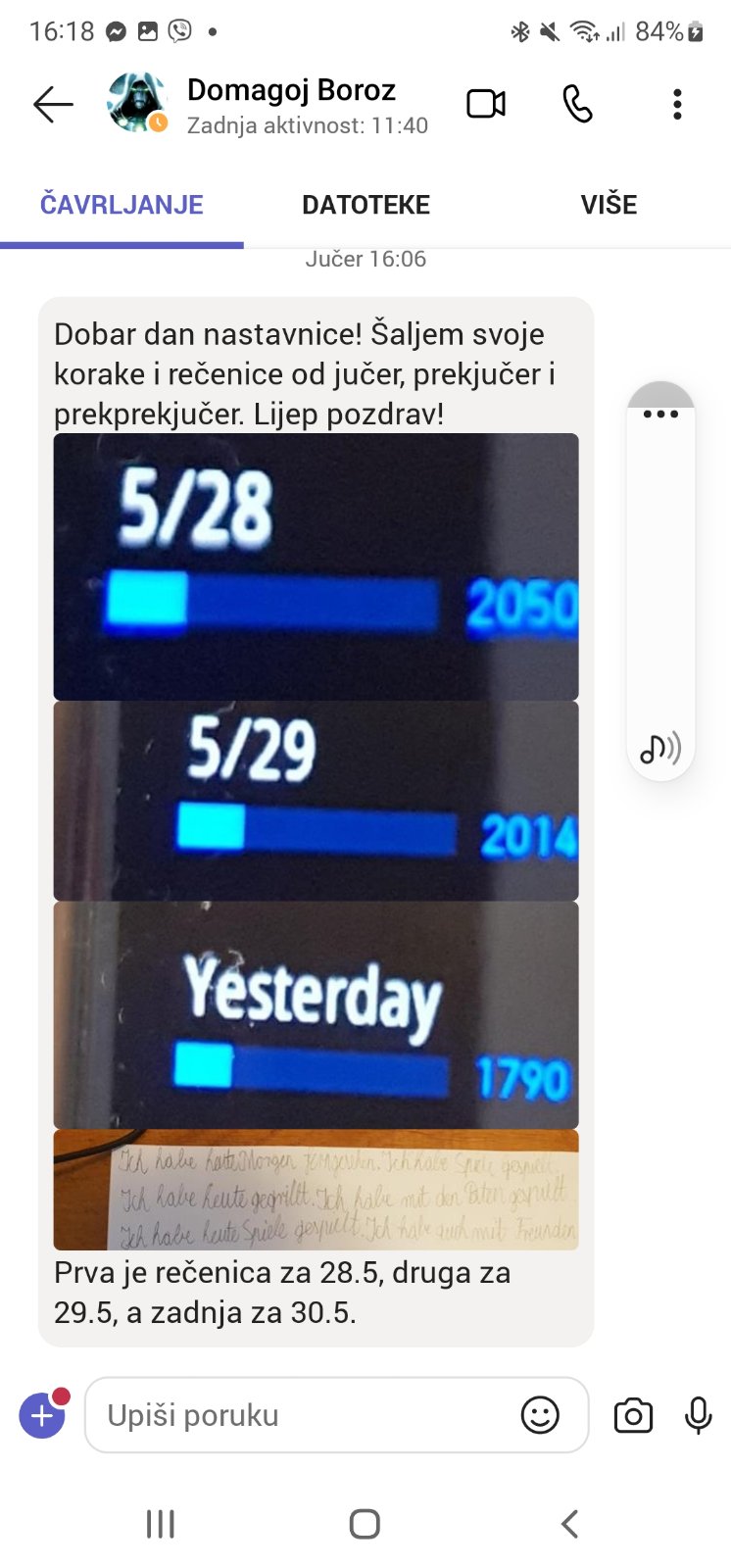

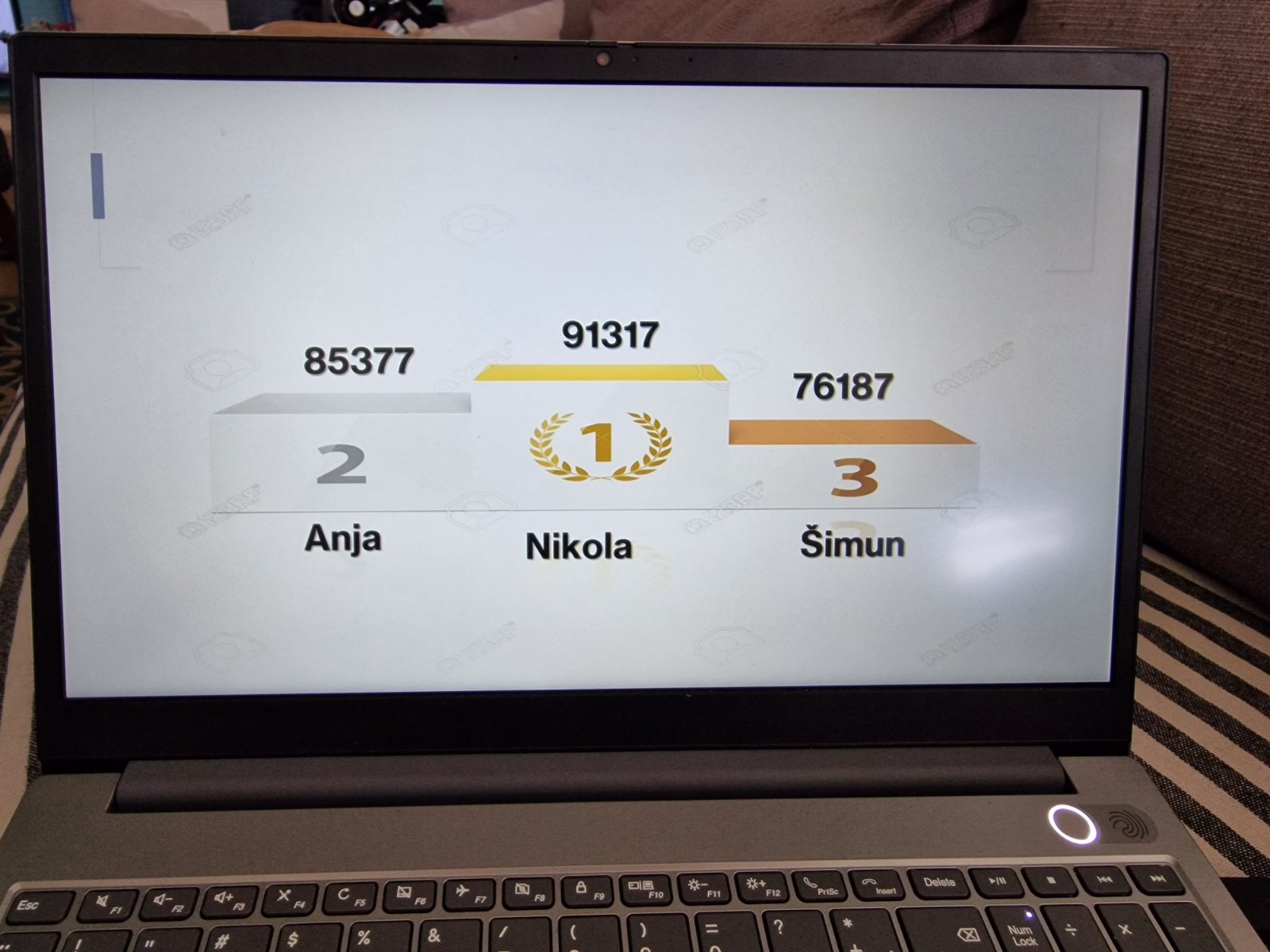
The aim of this project is to introduce new opportunities, new methods and examples of good practice in the field of inclusion in educational work. The third mobility was mobility to Lithuania, to the city of Šiauliai. The topic of the third meeting was the integration of sports activities into the learning process. After visiting two schools, Šiauliai Sanatorium School and Šiauliai Ringuvos School, competitions were held on the last day for all teachers involved of the project and students of Šiauliai Sanatorium School, which is also a spa school and the only one in Lithuania. The competitions were held in the sports hall and the Olympic swimming pool located within the school. Since I attended part of the competition that was held in the sports hall, with 6th grade students, I conducted 3 activities in which I participated. The students were divided into 2 groups (one group numbered 12 students and the other 11 students). We carried out the activities on the school playground, and the students performed the following activities: guiding the ball with the hand, jumping on one leg while wearing sneakers, and passing the ball through the column made of other participants. The students liked the activities and encouraged each other so that their group could achieve the best possible result. At the very end, the second group won 3-0. These activities, f.e the integration of sport into teaching, encourage inclusion, mutual respect and acceptance of diversity. Also, the greatest emphasis is on the development of teamwork, which is needed by every student.
Barbara Ančić
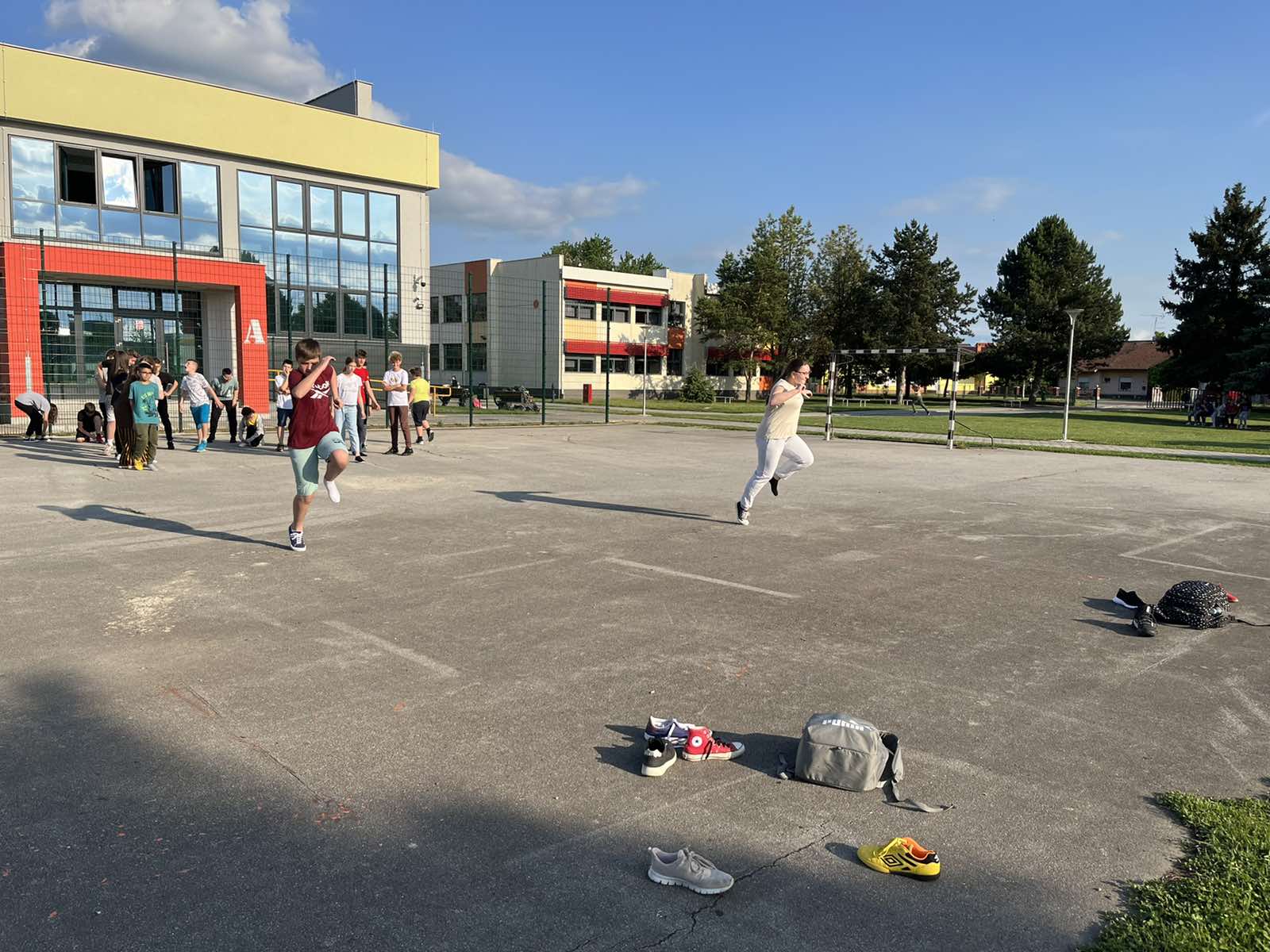
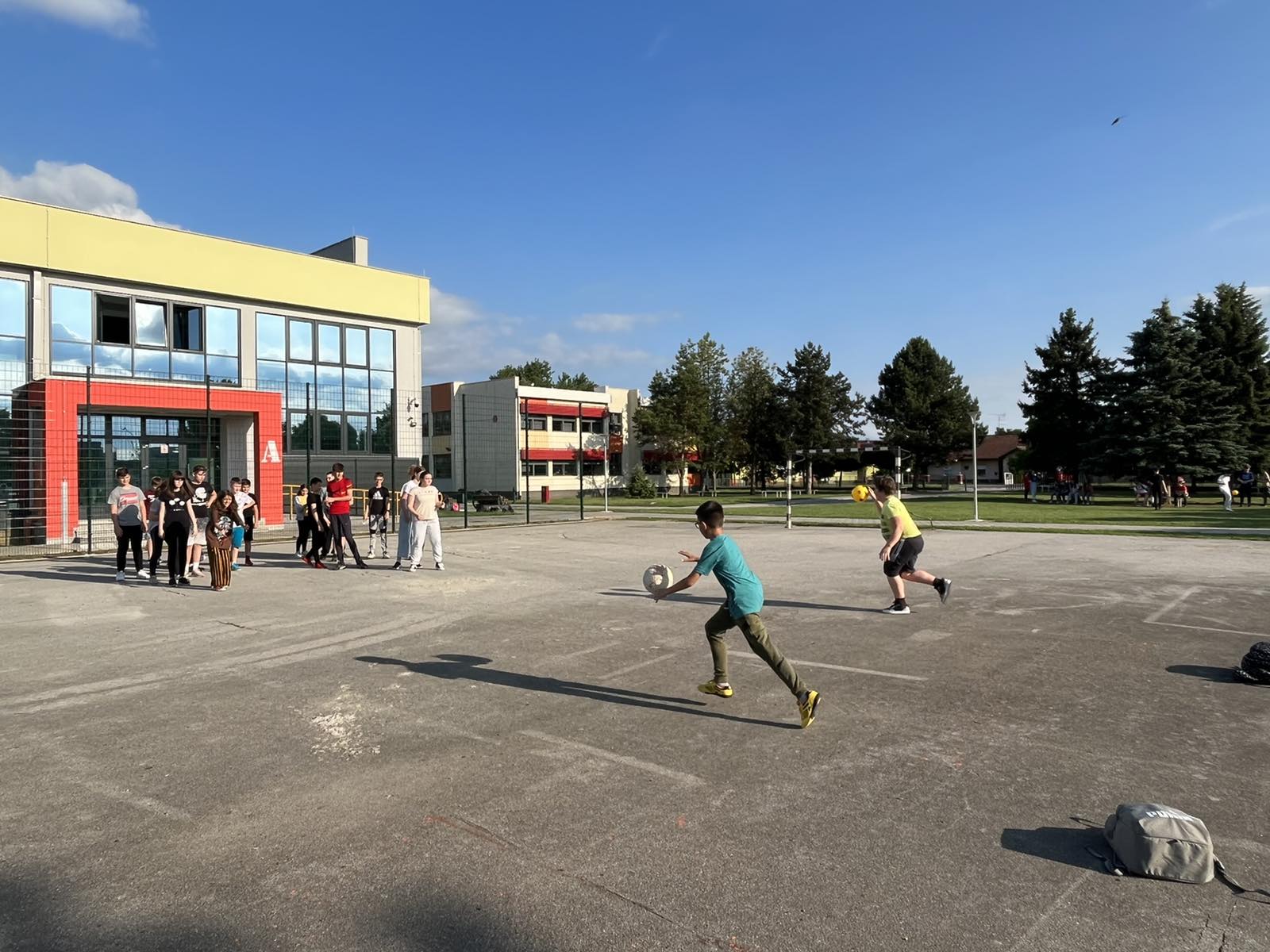
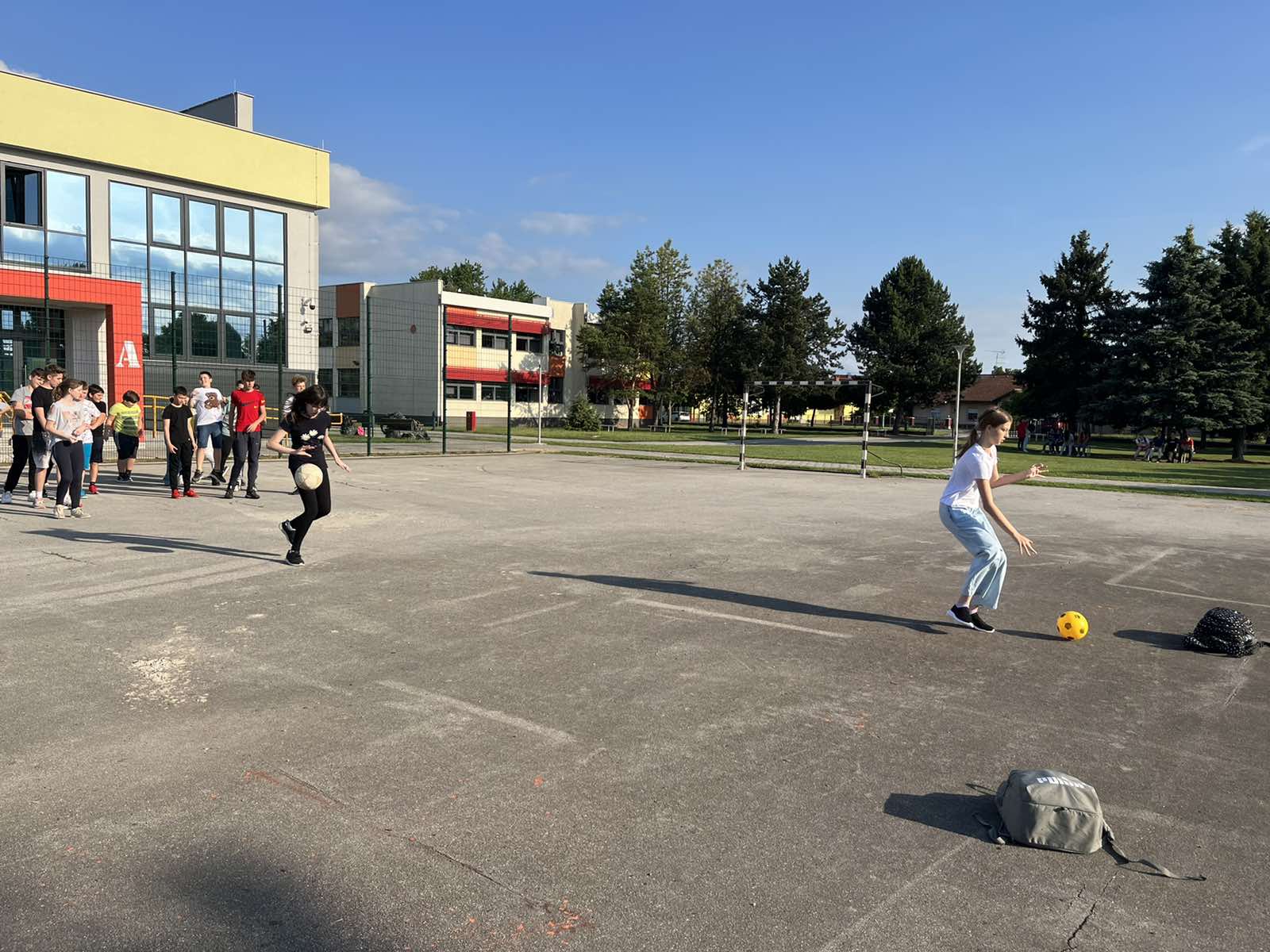
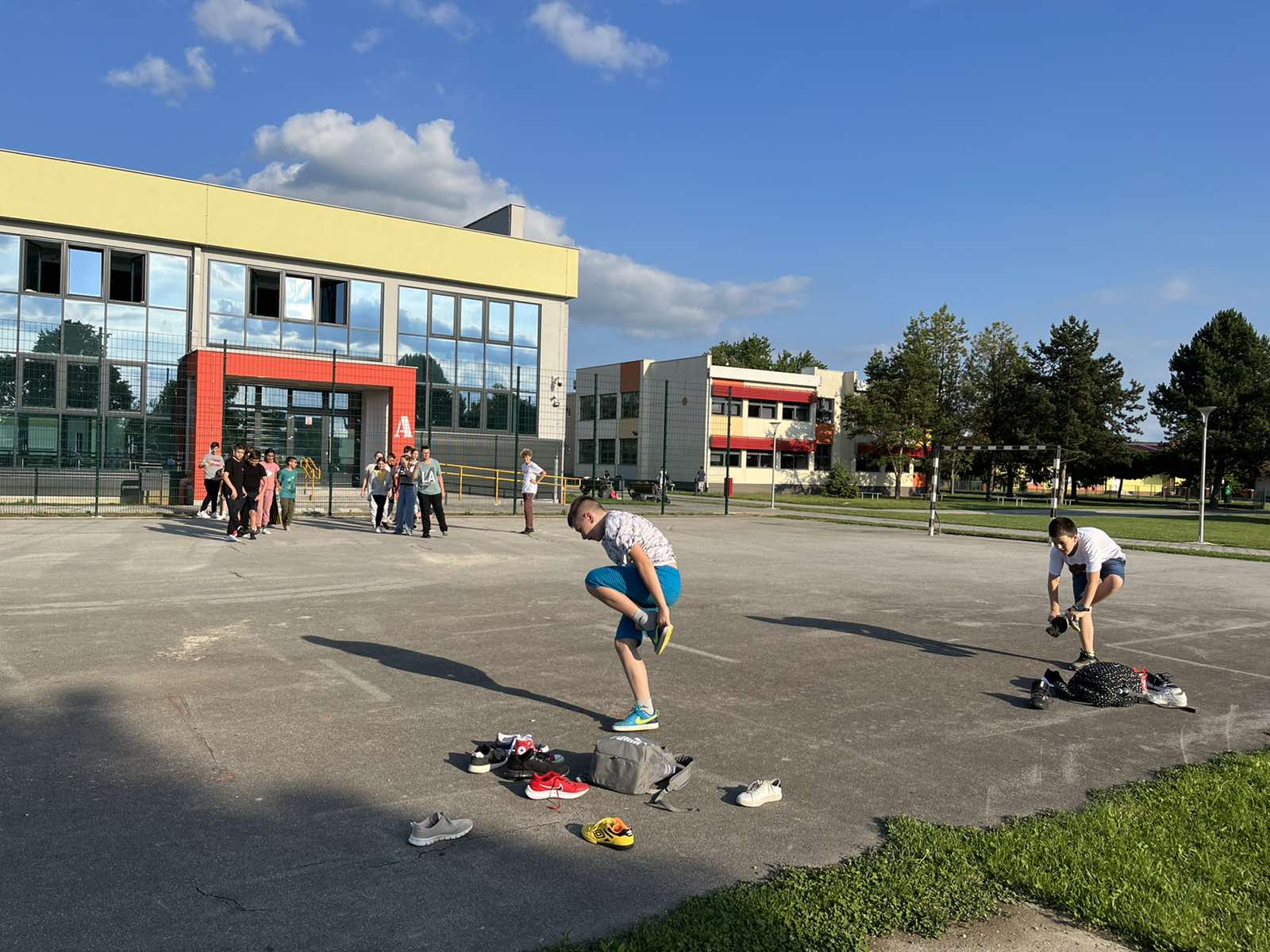

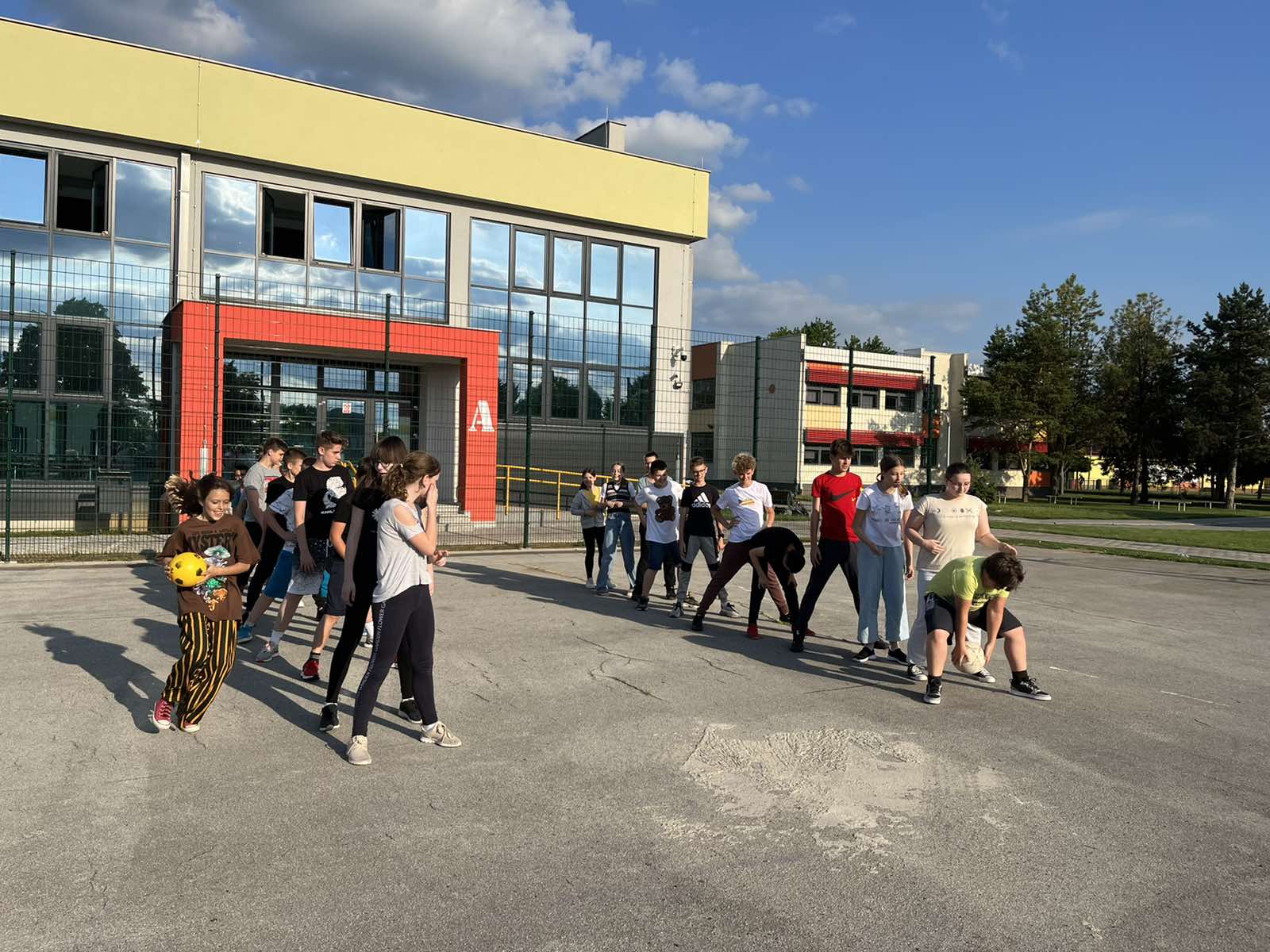
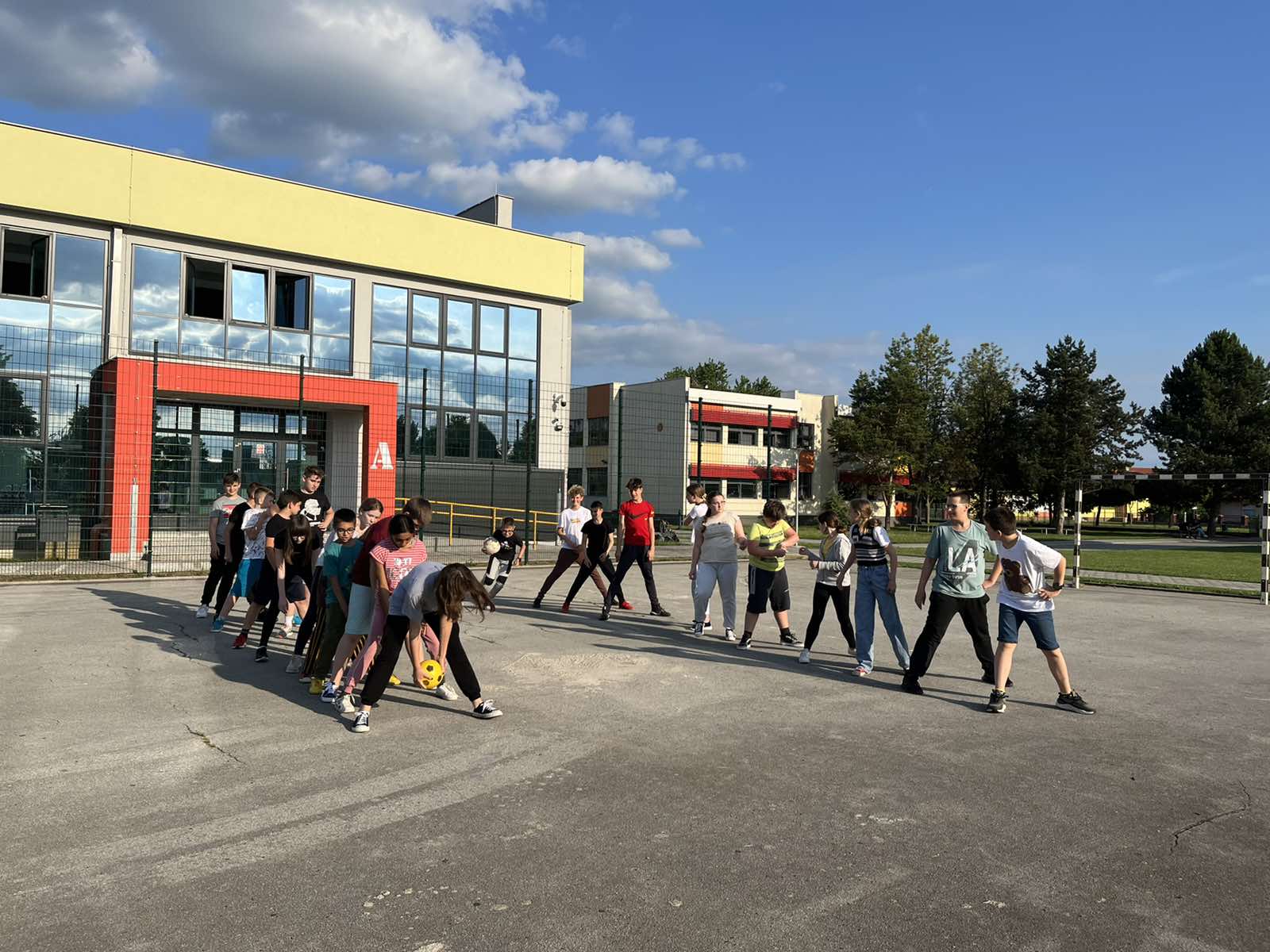
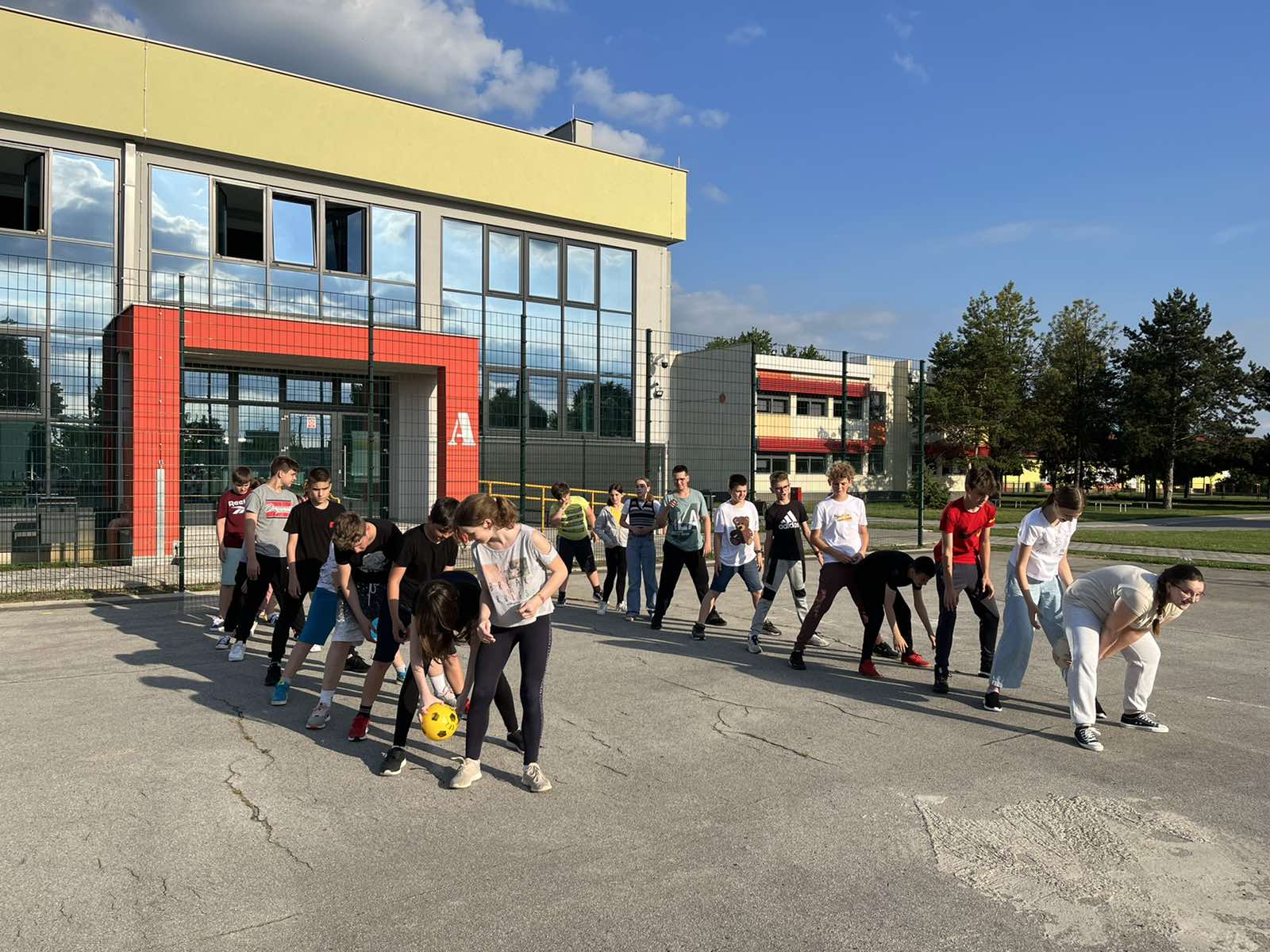
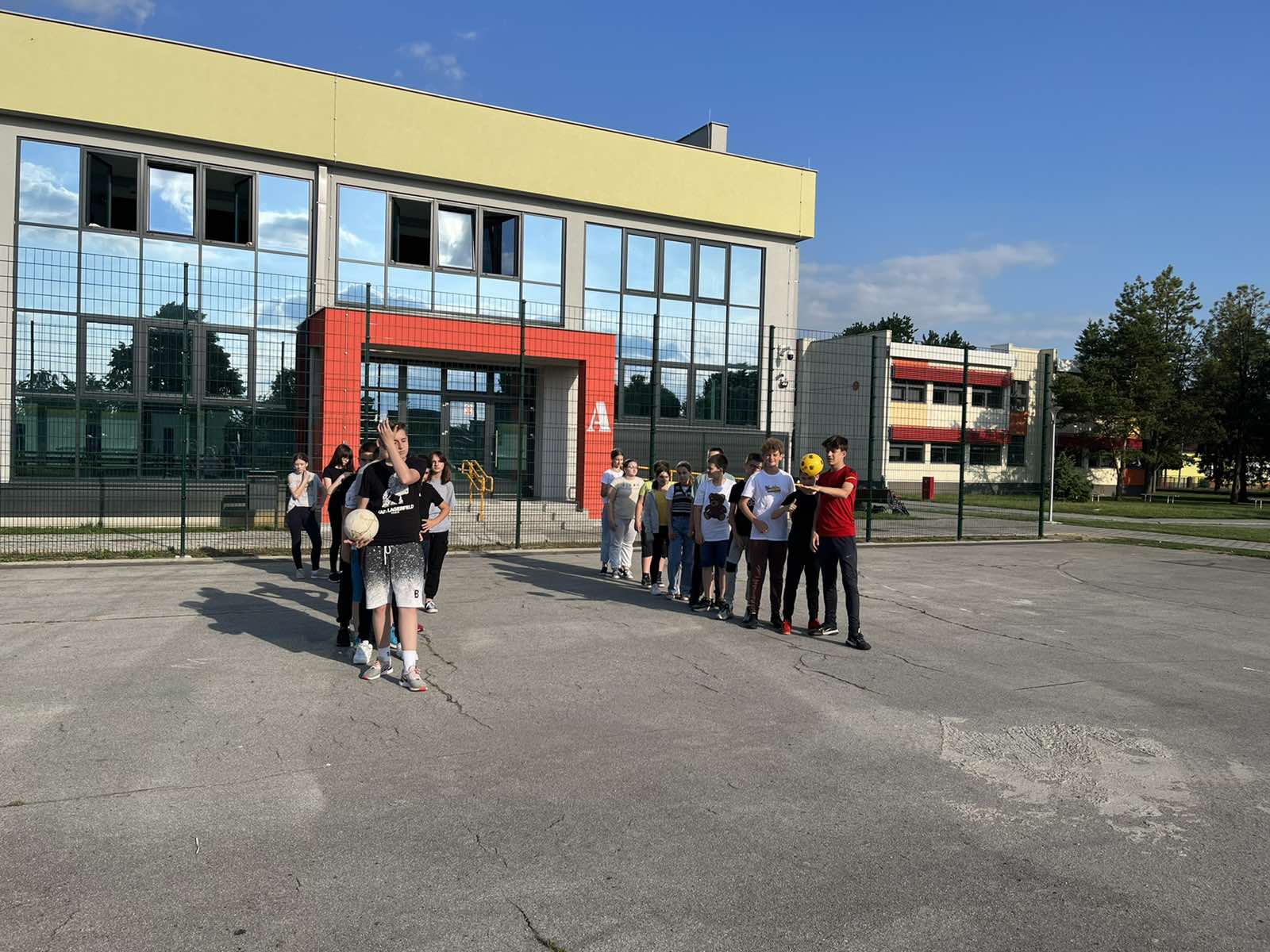
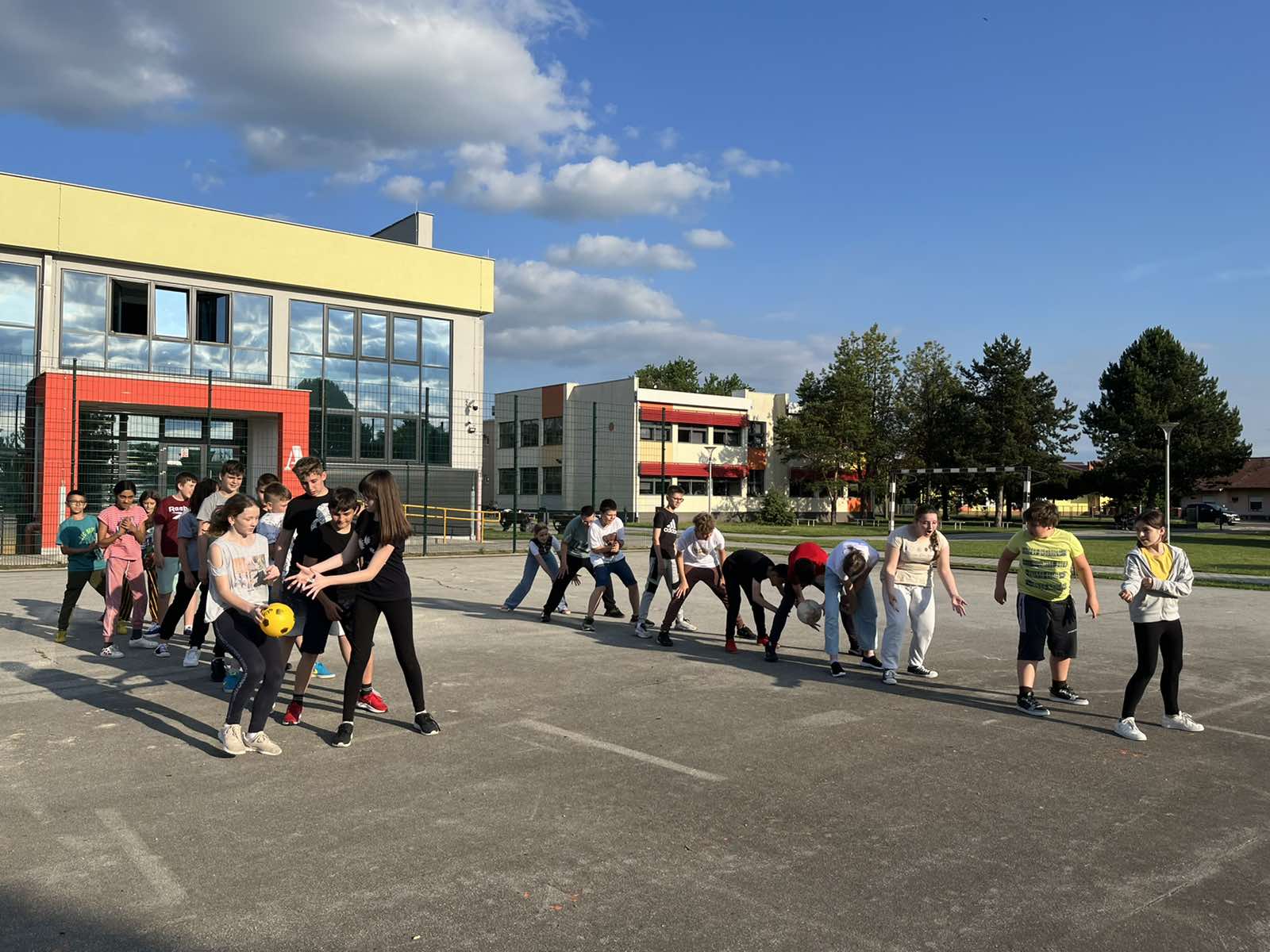
Since the aim of the project is the integration of students with special needs within the class, tolerance and the promotion of inclusion, I decided to apply the skills I learned in Lithuania in the classroom. As part of the project, I listened to several lectures and participated in workshops that encouraged me to think about how to apply what I had learned. The school we visited in Šiauliai is a sanatorium school, whose equipment is far better than ours, because the school functions as a school and as a health institution. I was most intrigued by children with autism, mostly because there is a student in my class who is autistic. In the class, we wrote motivational messages on the exercise ball, which we received as a gift in Lithuania. The messages were about supporting each other and how sport, no matter how different we are, brings us closer. These messages are, in fact, a continuation of the messages of support written to us in Lithuania. After we wrote and read the messages of support, we used the ball to perform stretching exercises adapted to students with disabilities. I learned the exercises we did as part of physical education classes at Šiauliai School. These activities, f.e the integration of sport into teaching, encourage understanding, mutual respect and acceptance of diversity.
Nikolina Pranjić
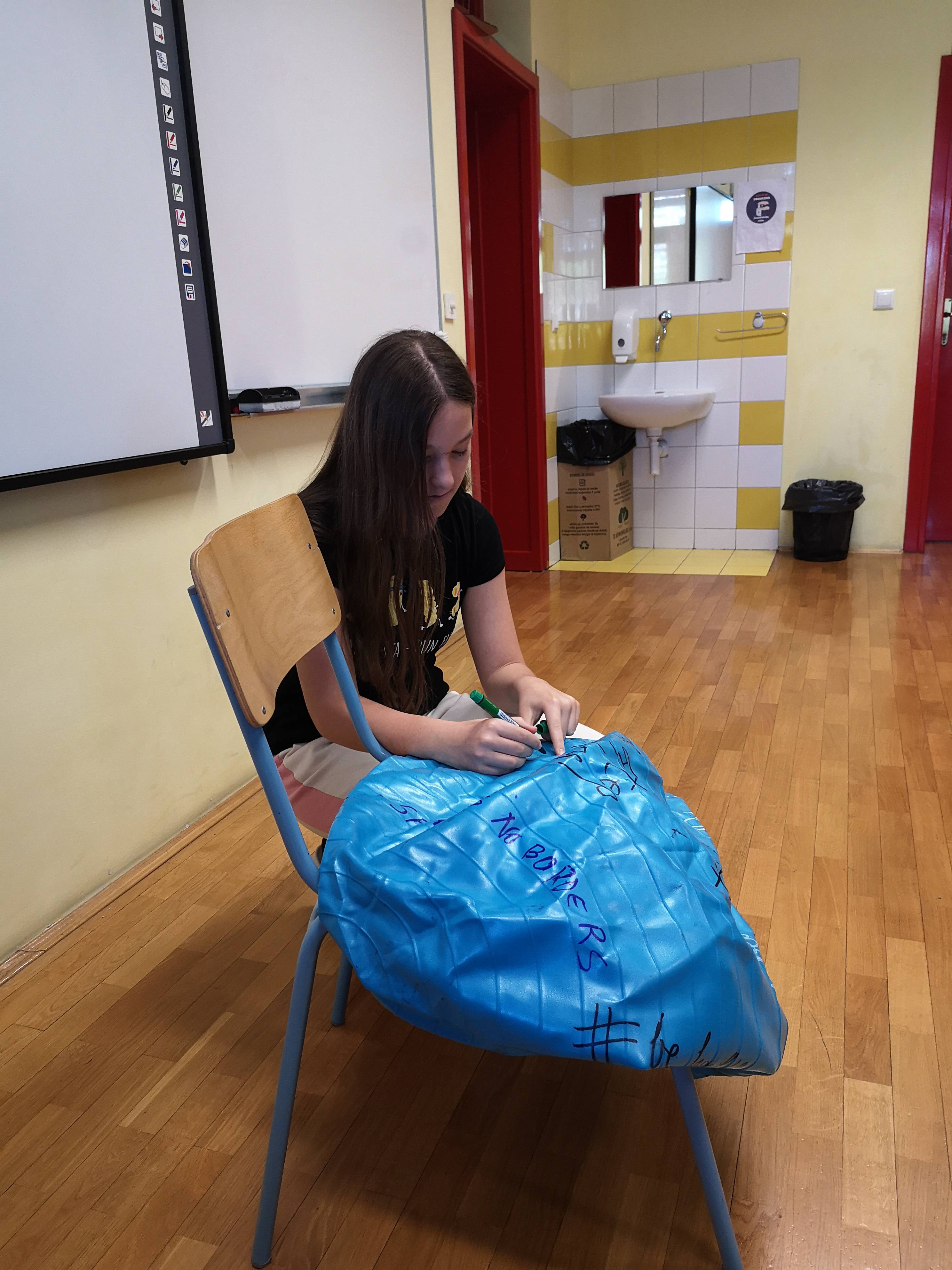
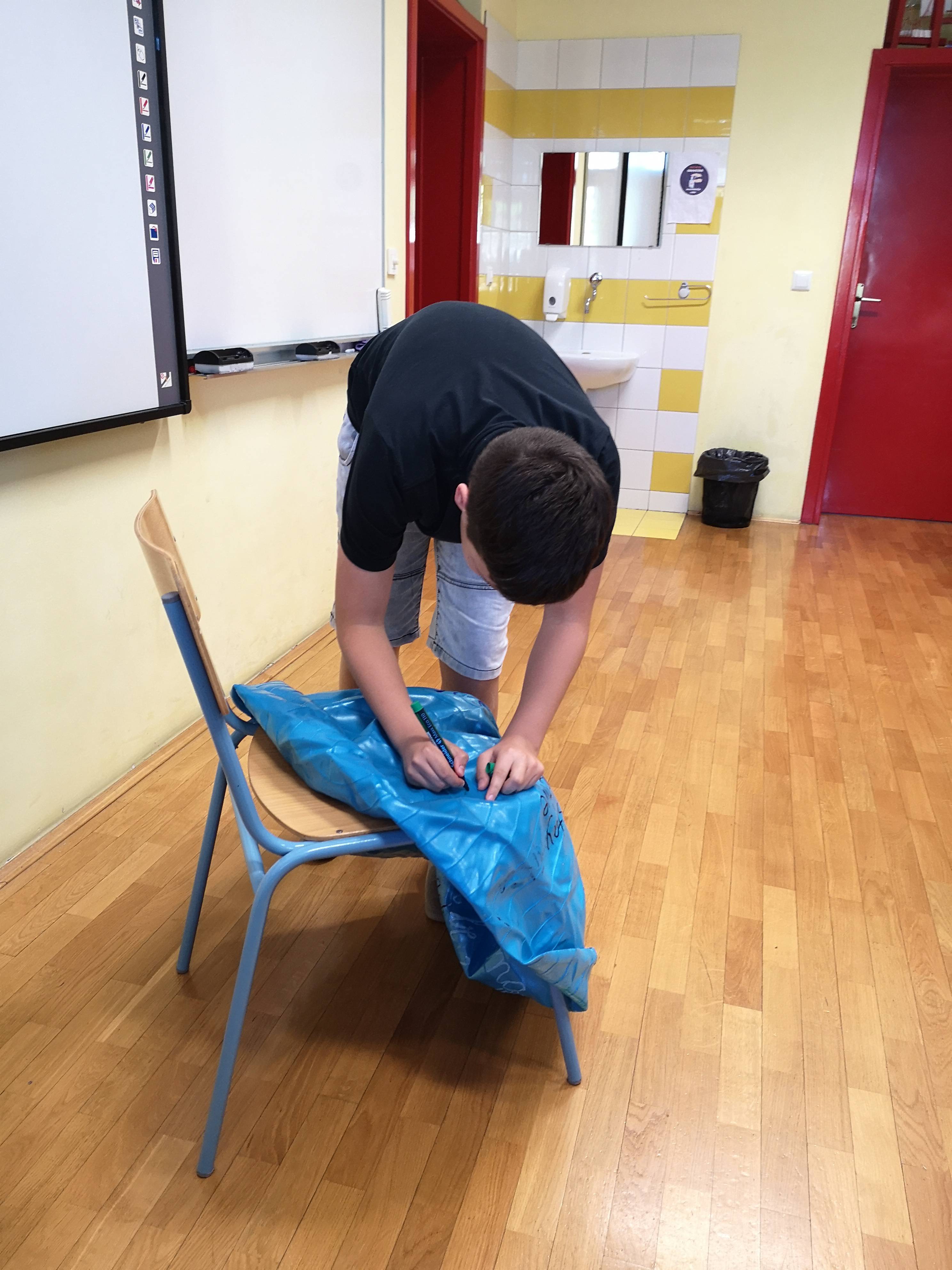
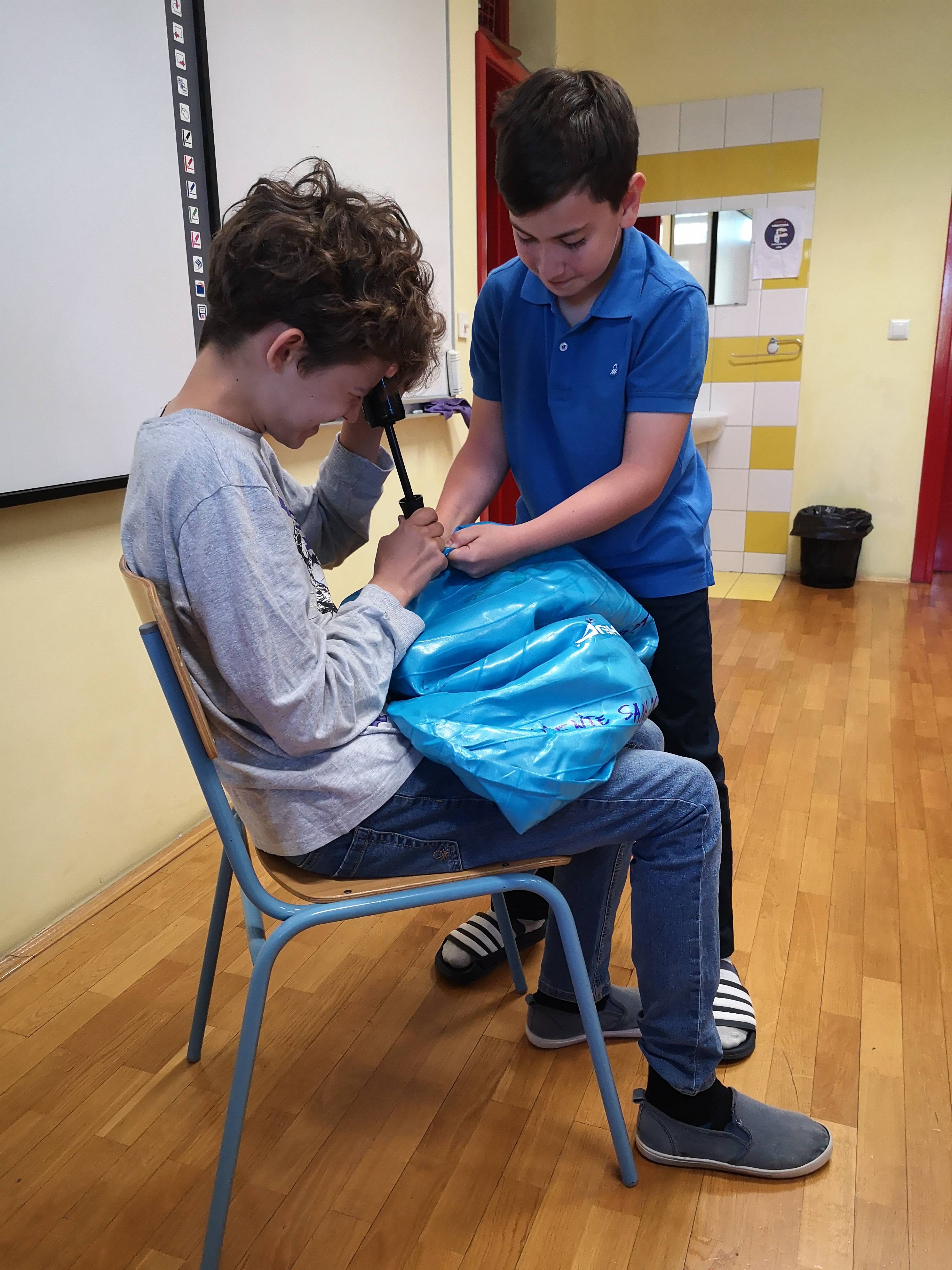
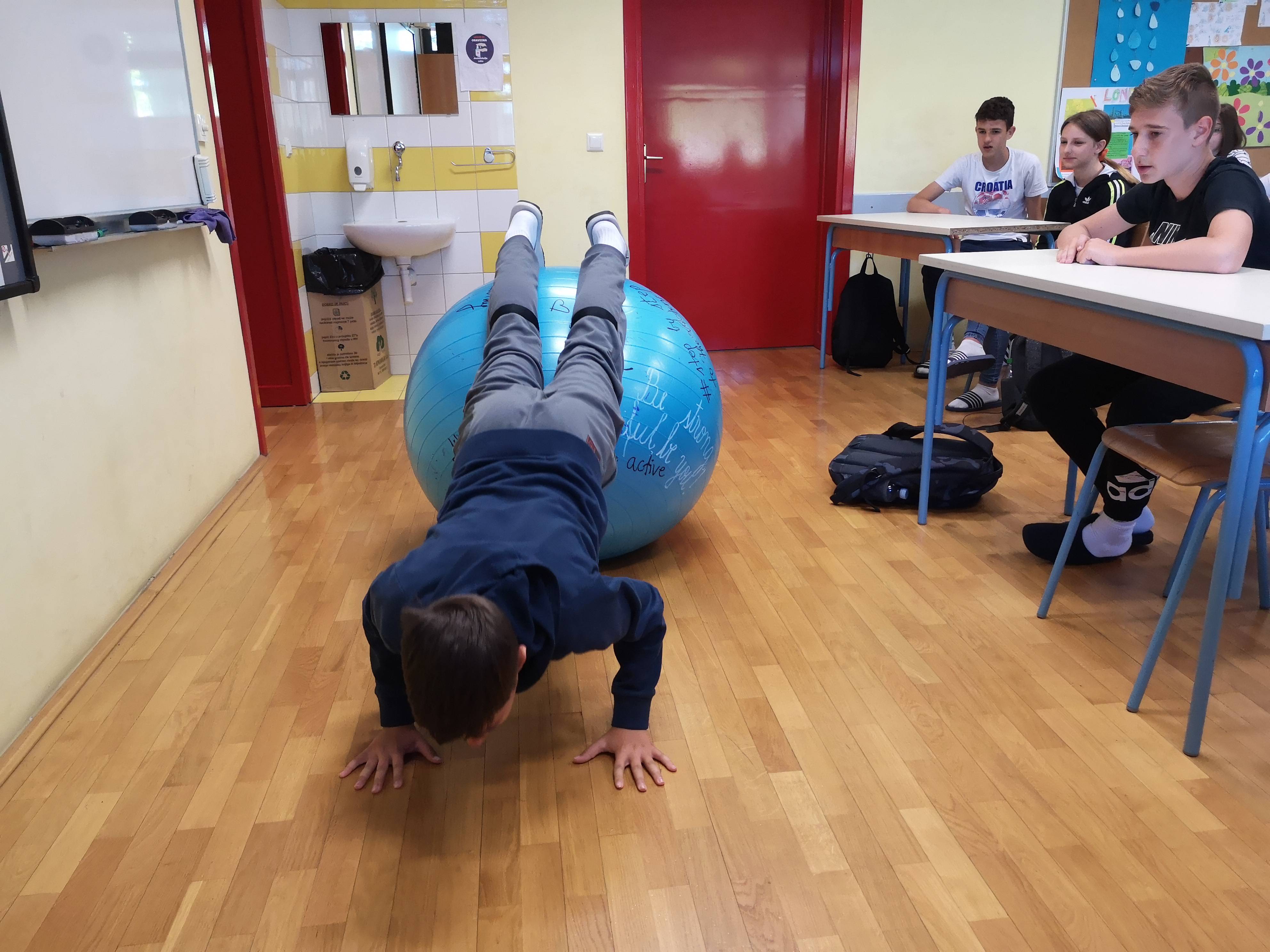
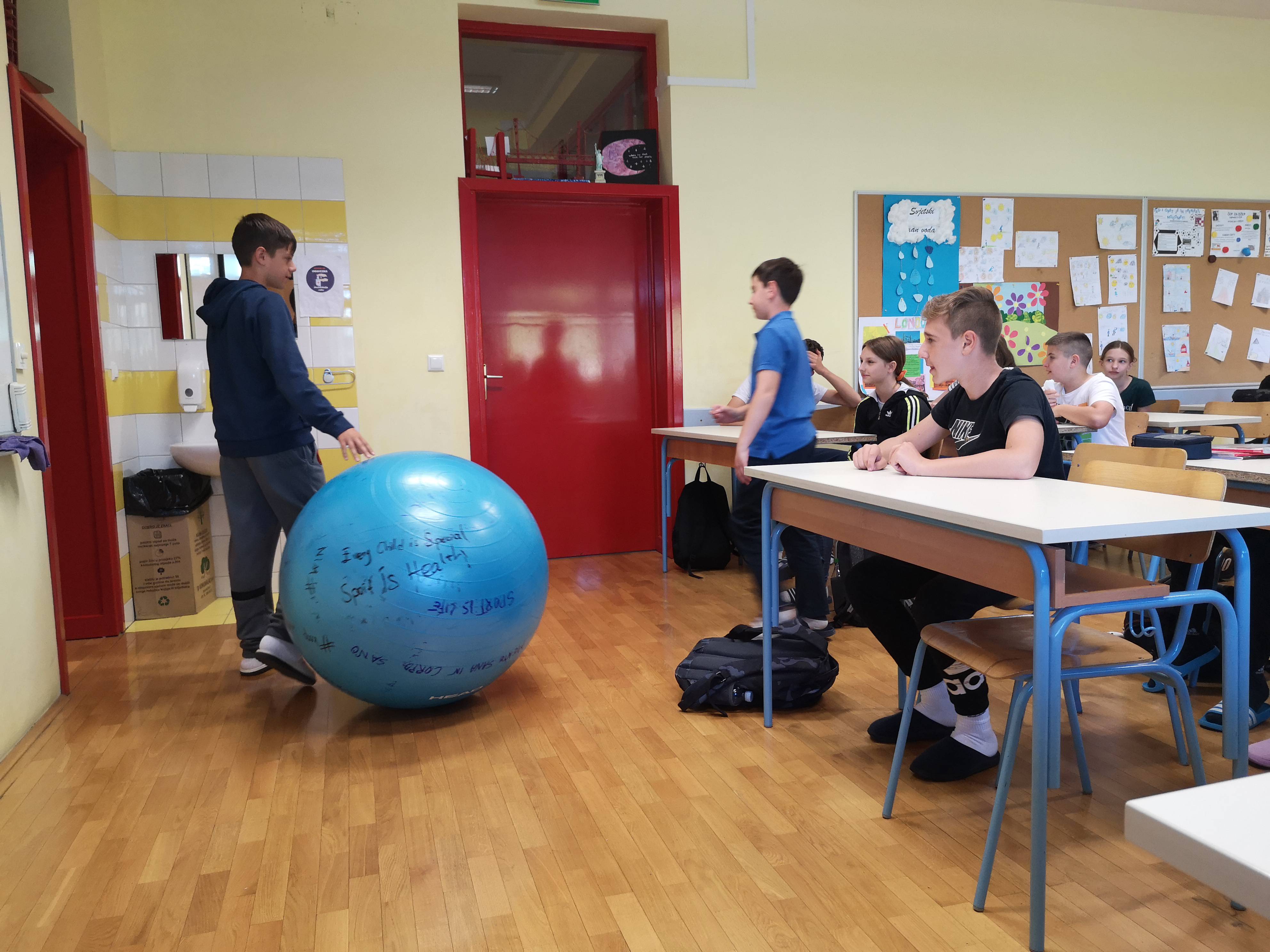
In the 5th grade class we conducted a workshop: Understanding the needs of other people, in order to introduce students to different views of the world; lead students to identify different needs of other people; acceptance without prejudice and imposed attitudes and how to help others in the best possible way. We were motivated with a lecture made by a professor from the University of Palermo regarding education through the prism of art. We started the class with the activity "In other people's shoes". Each student marked with a plus sign those shoes that are not difficult to imagine, f.e those people in whose role it would not be difficult to enjoy, and with a minus sign those shoes that would be difficult for him to put on, f.e those people in whose role it would be hard to enjoy. After the presentation, we had conversation involving the questions: How do you feel when you are in "someone else's shoes"? Do we all experience "other people's shoes" in the same way? Do we all have the same view of the world? What is the difference between our views and why? The discussion was interesting and instructive. The attitudes expressed during the discussion proved to us that there are students in our class with completely different views of the world, with completely different attitudes and educational habits. This was followed by creative artwork: "Look through filtered eyes!" We expressed ourselves artistically by observing the world and the people around us through imaginary glasses. Each student presented their glasses. We discussed what would be the glasses of our peers in other countries, what would be the glasses of our parents, our teachers? We concluded that different societies in different places cannot be approached in the same way. Everyone should be provided with what is valuable and necessary. The world is more interesting precisely because we are different. We need to respect each other and help each other.
Slavica Čugura Vukovarac
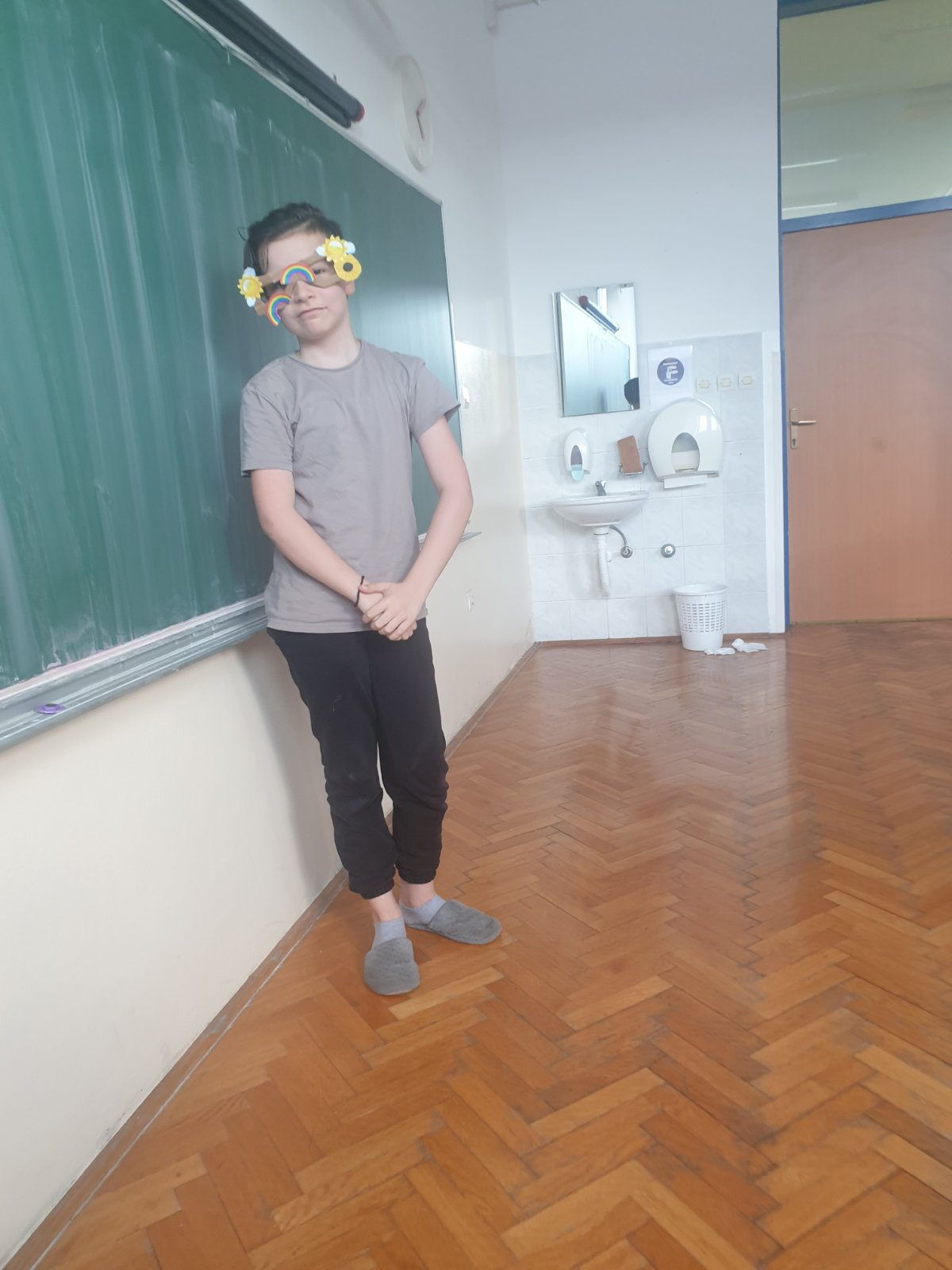
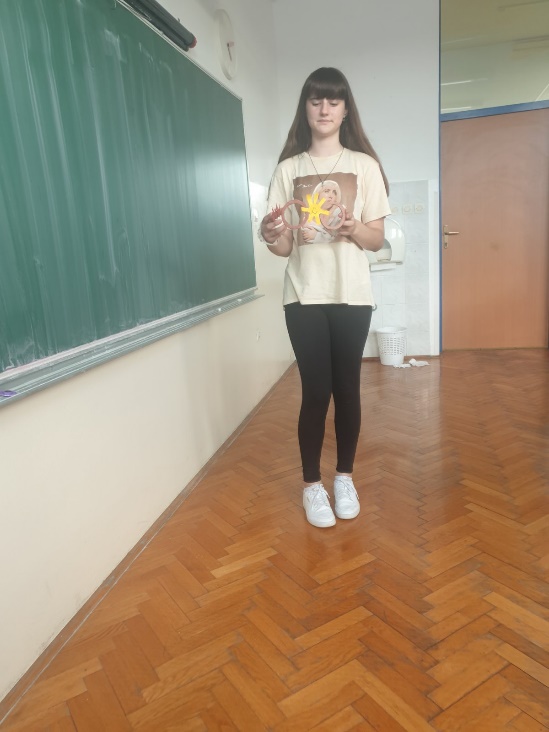
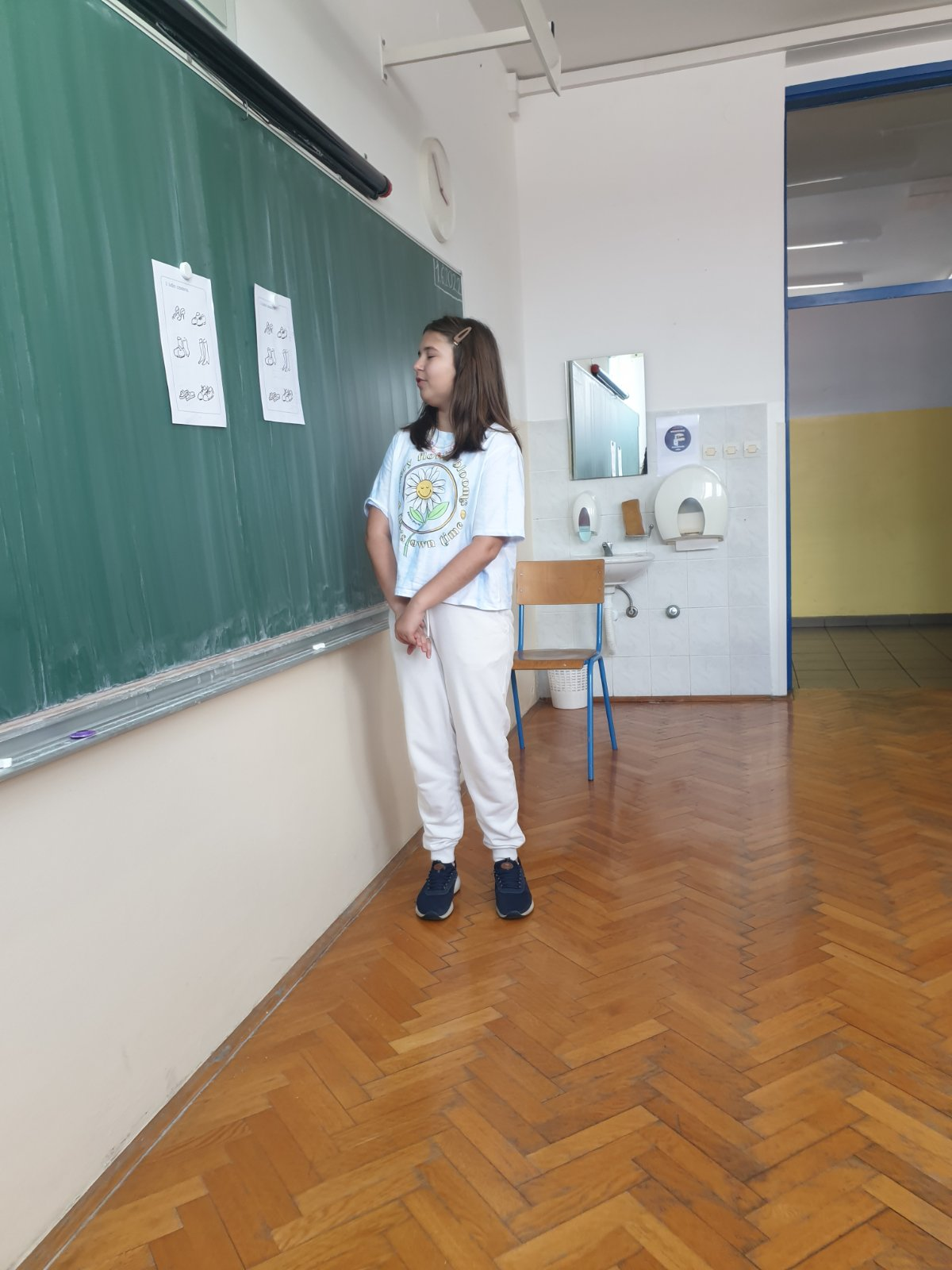
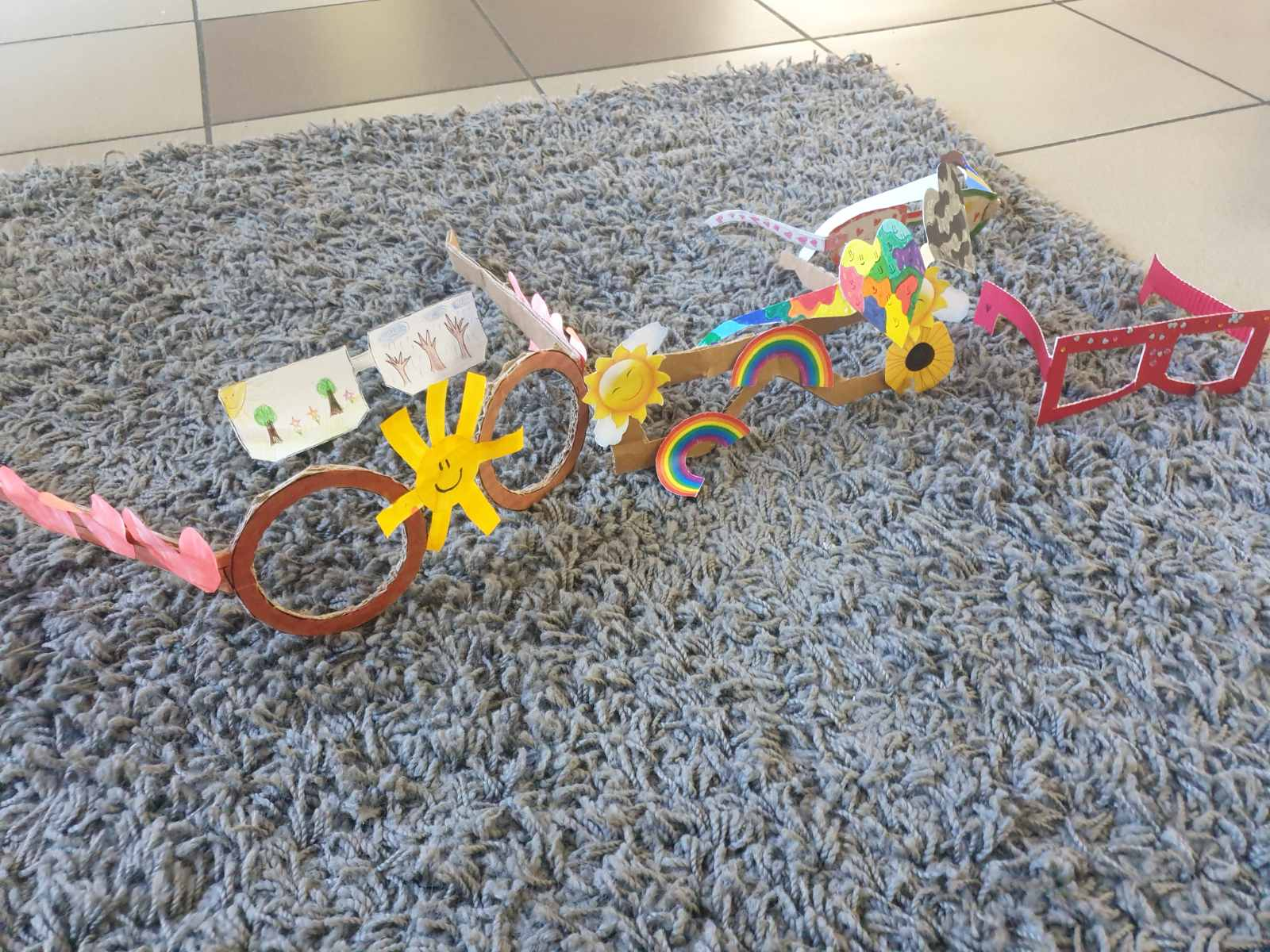

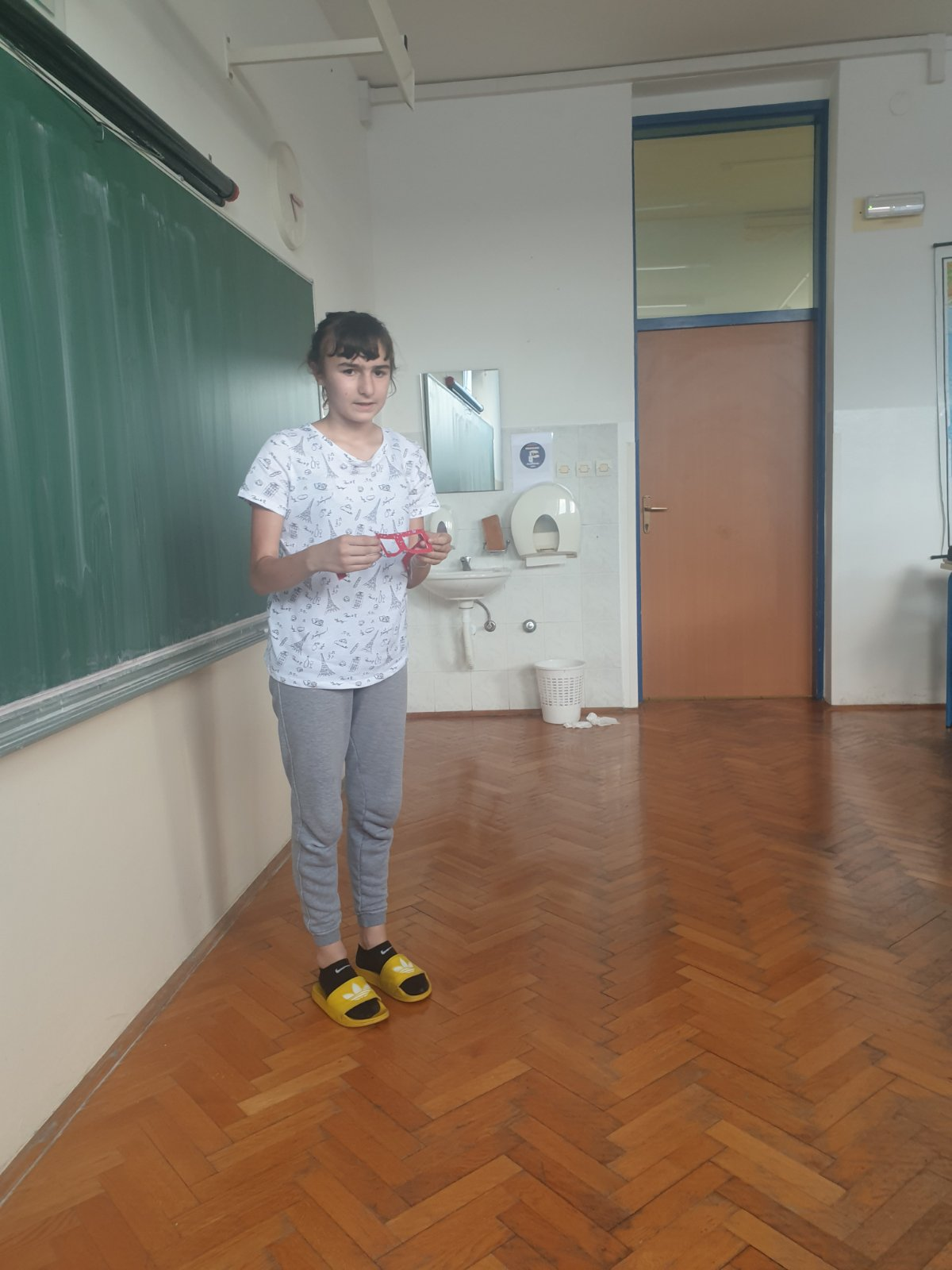
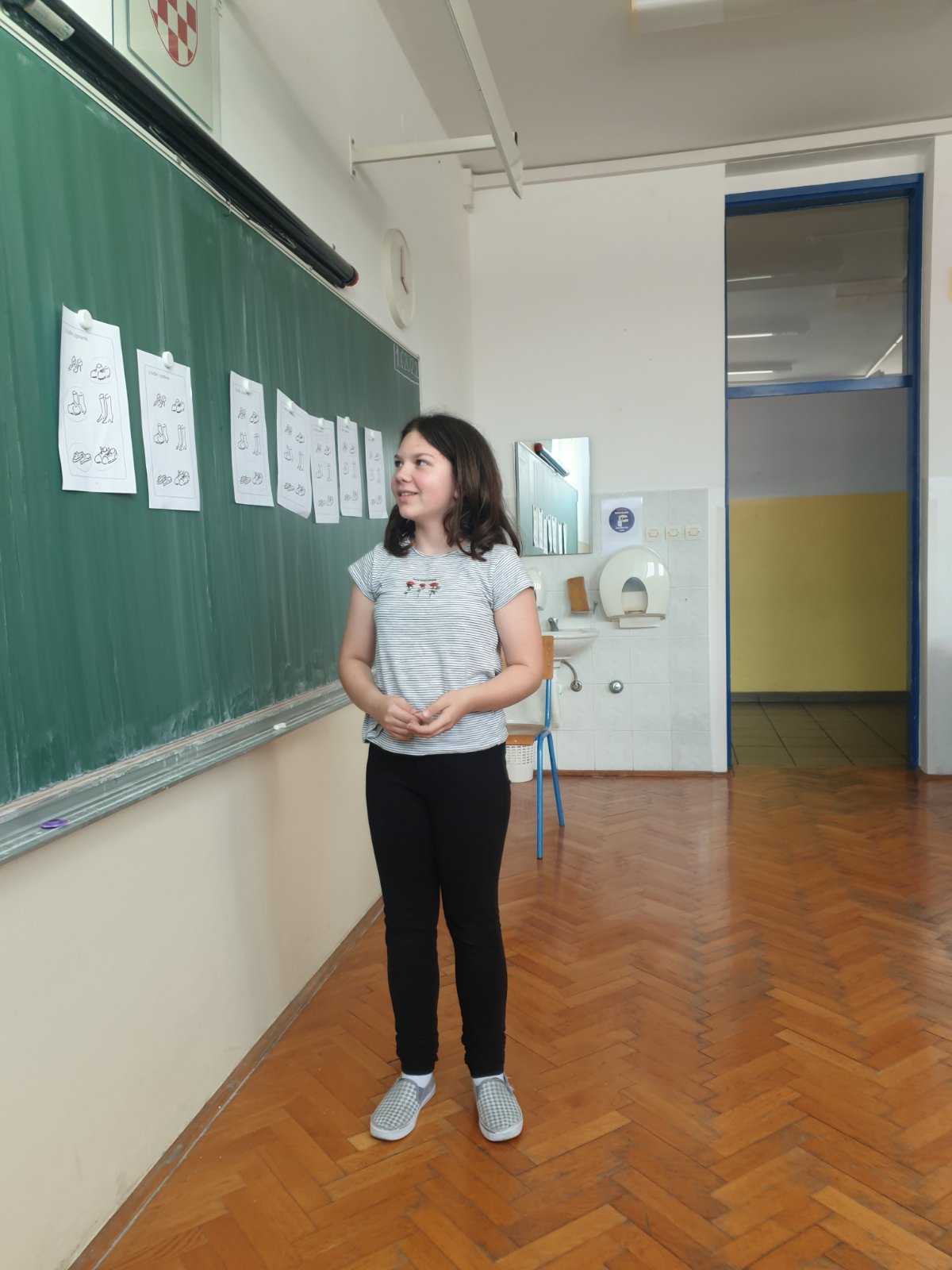
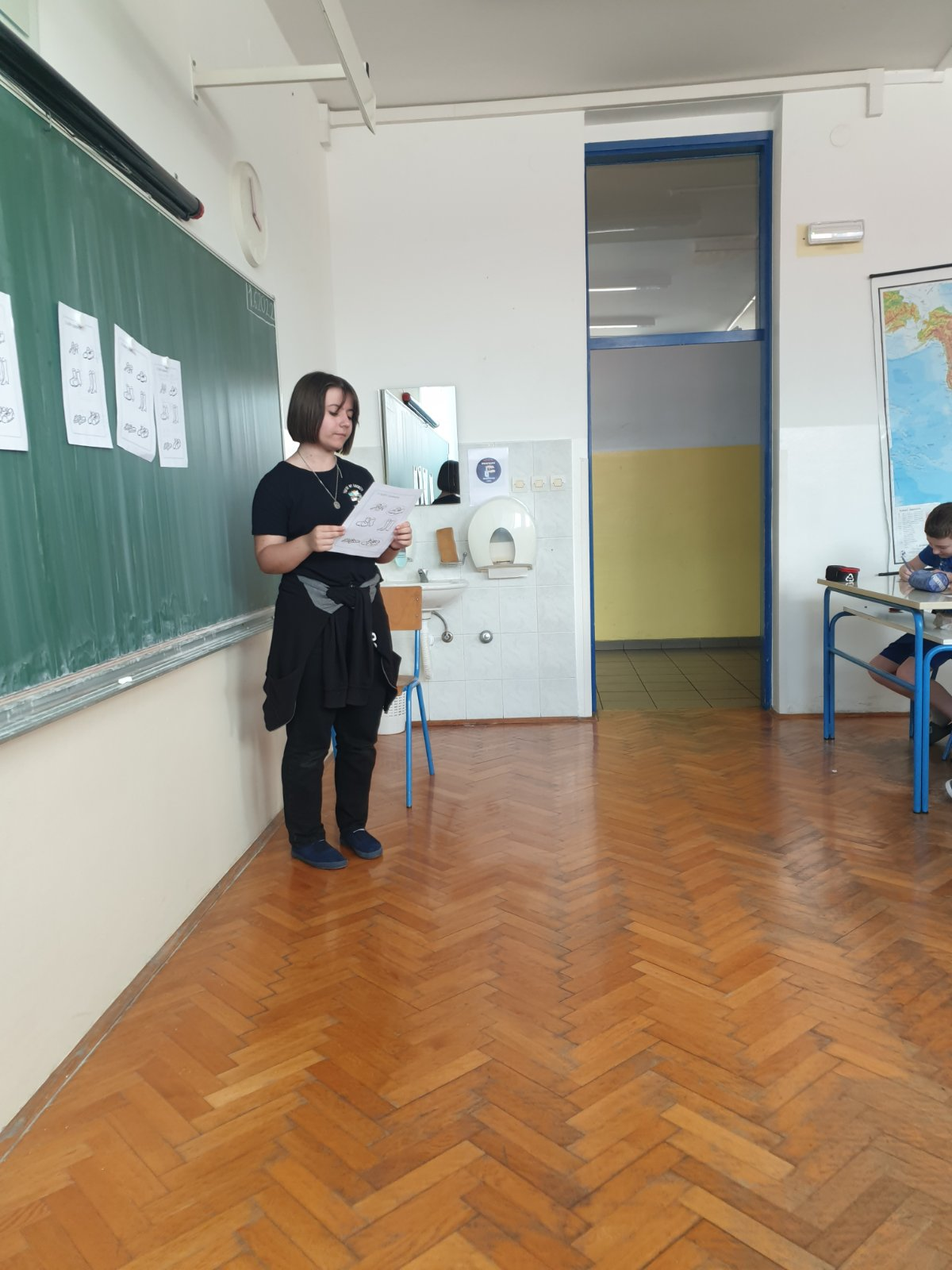
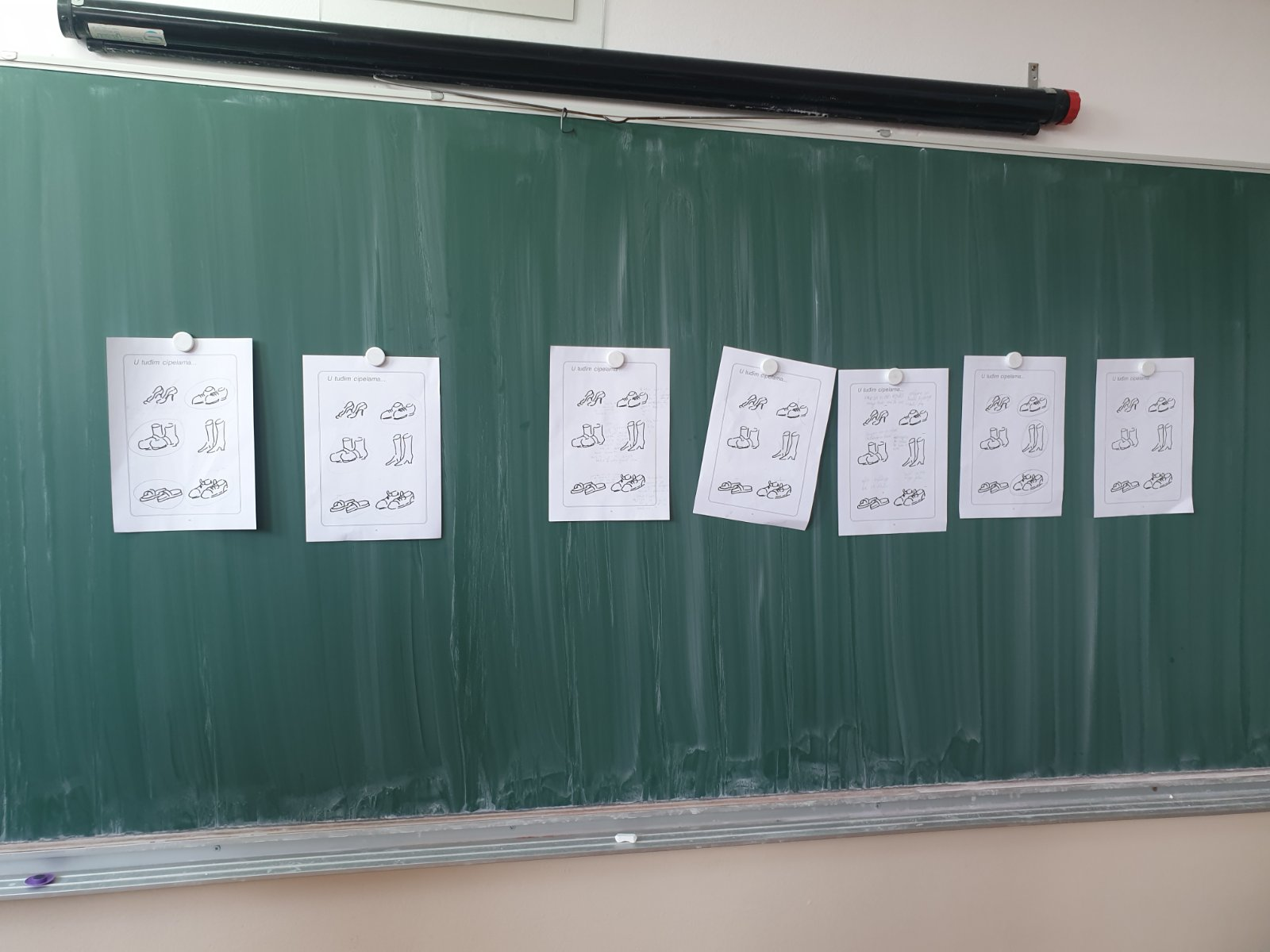
Teachers Inga Lipovac, Nikolina Pranjić, Barbara Ančić and Jasna Stajić spent 4 days in Lithuania as part of the "Teacher, notice me" project. They visited the Sanatorium school in Šiauliai, which is intended for students with mental and physical disabilities. The school functions as a spa and is the only one of its kind in Europe. They also visited Šiauliai "Ringuvos" mokykla, where children with special needs are educated. The hosts took them to classrooms adapted to students depending on the difficulty. It also educates older students.
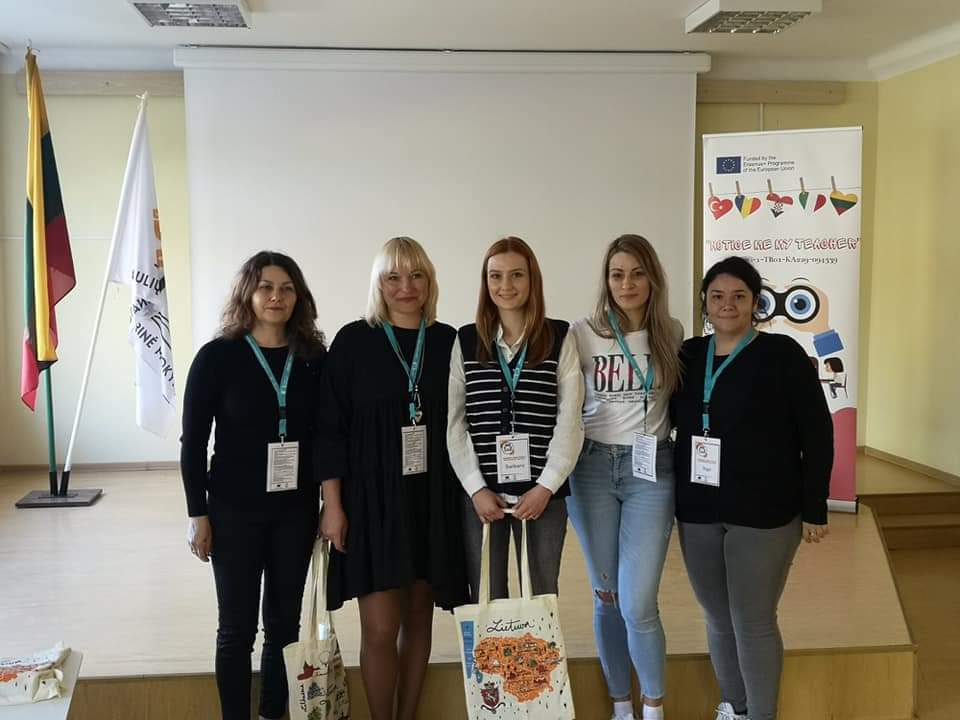
Disemination of project activities on teacher's council
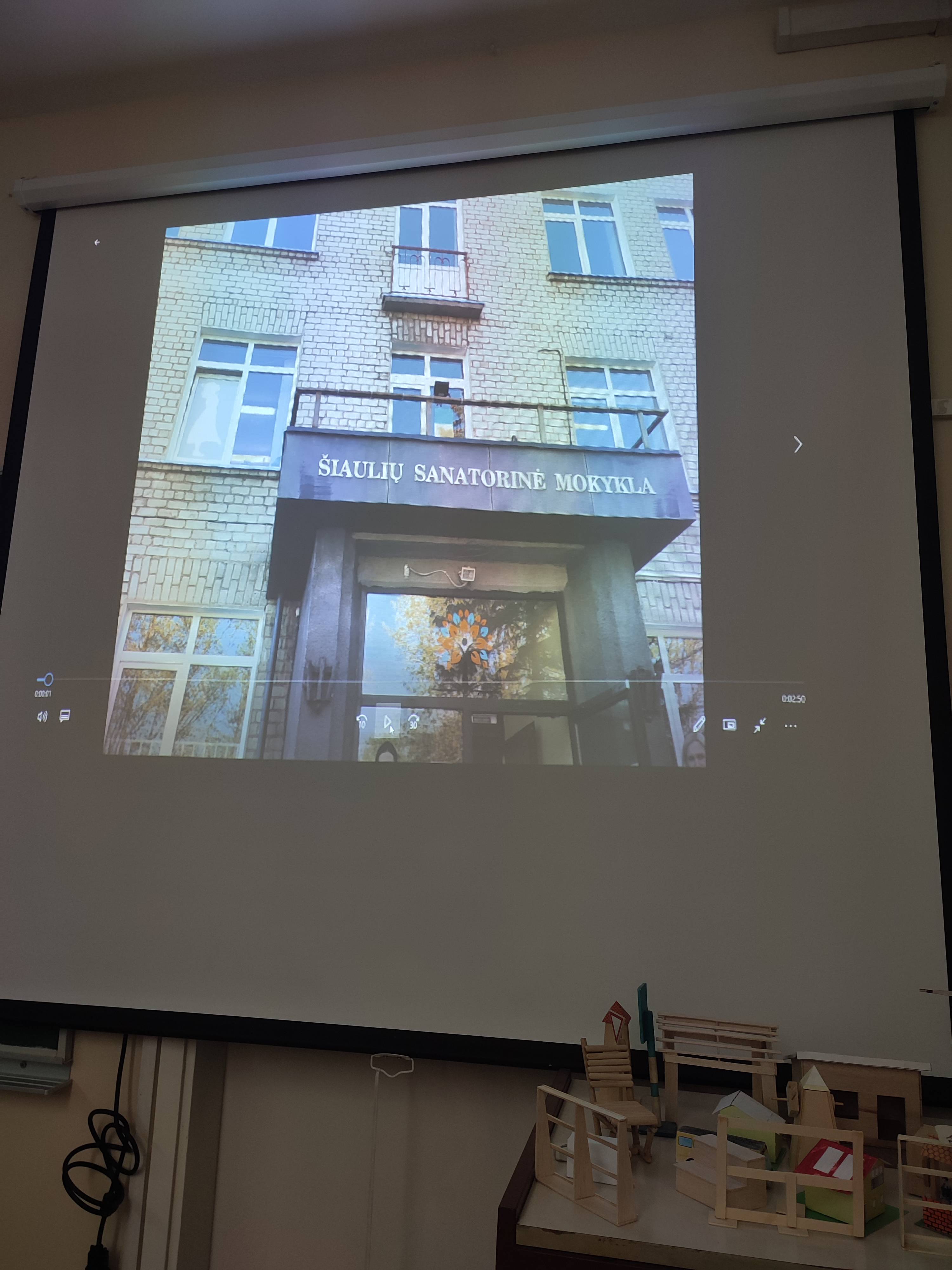
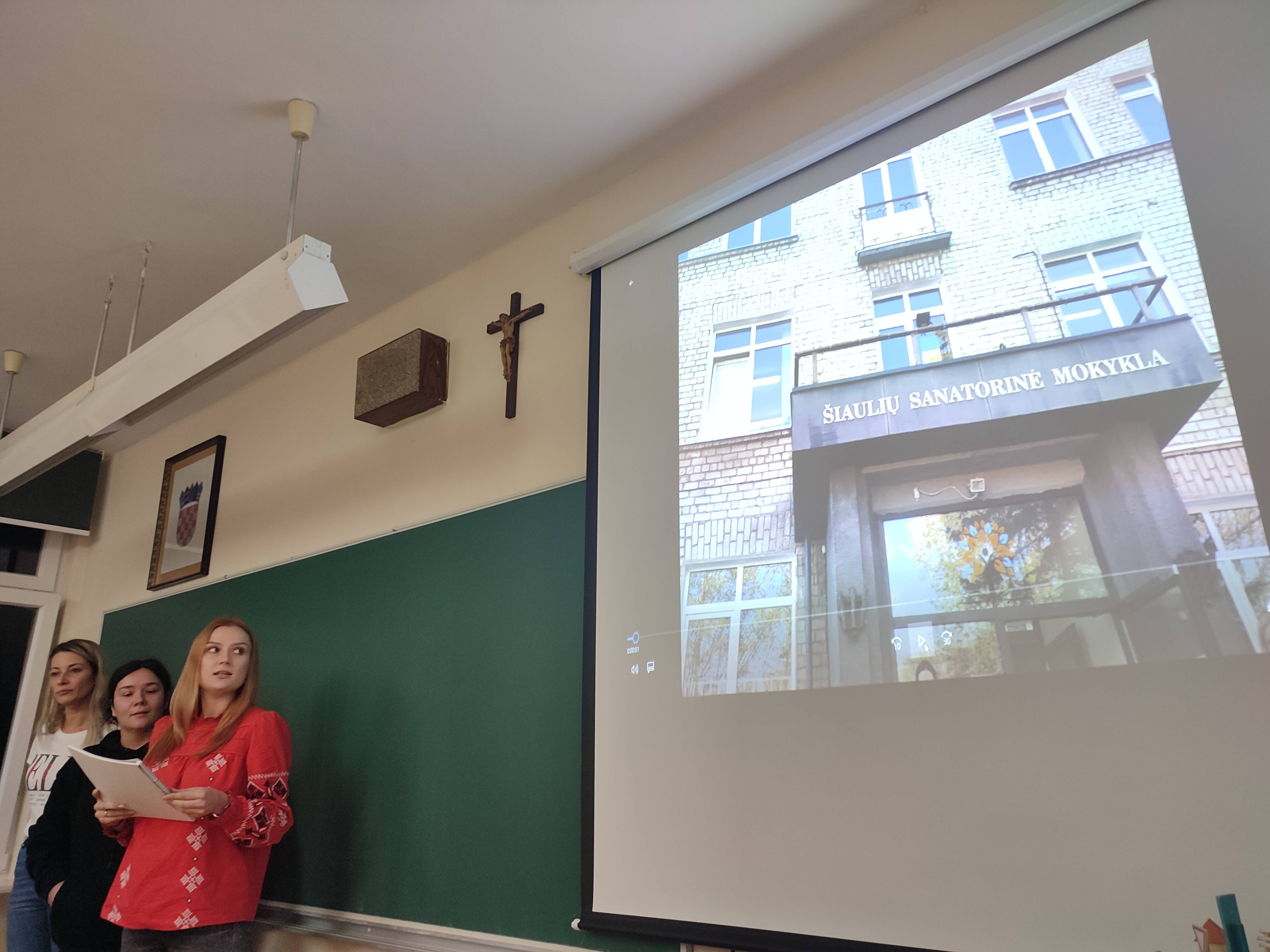
As a part of the Erasmus + project Teacher, notice me, our school team was on mobility in Turkey from September 19th to 24th. The team included the school principal Slavica Đurđević, pedagogue Sanja Bjelobabić, and two Croatian language teachers Blanka Jakobović and Slavica Čugura Vukovarac. The countries participating in the project were: Italy, Lithuania, Romania, Turkey and Croatia. The aim of the project is to introduce new possibilities, methods and examples of good practice in the field of inclusion in educational work. The project needs to be implemented using digital, artistic and sports activities as a means for the physical, spiritual, emotional and social development of students.
Our destination was the province of Adana in the south of the country and in it the city of Kozan, which has about 100,000 inhabitants and is growing in number. It is in the area of the Mediterranean climate, which we felt as soon as we got off the plane. The Ismet Inönü Ortaoklu school, our host, is one of the most popular schools in Kozan and has around 1,200 students. On the first day, mobility participants were greeted by a ceremonial opening program and a tour of the school.
On that day, we listened to lectures: Education of students with special needs in Turkey (support strategies) and Use of technology - robotics where we participated in a robotics workshop. We also attended a sample lesson on the inclusion of children with special needs in the physical education lesson held in the school yard.
The days started very early and ended late because the hosts wanted us, in addition to examples of good practice, to get to know Turkish tradition and culture, so they organized tours of cultural sights and natural beauty for us every day.
On the second day, we learned about traditional Turkish Ebru art and made Ebru paintings ourselves. We took a boat ride and visited the Dagilcak National Park.
This was followed by two days of getting to know the province of Cappadocia, a medieval region in the heart of Turkey, which has a rich historical and cultural heritage and abounds in numerous natural wonders.
During our stay, we got to know Turkish cuisine, which is very healthy and rich in fruits and vegetables. We visited orange plantations, pitayas and strawberry plantations.
Walking through the school yard and school corridors, we felt what it means to be a teacher. We were delighted by the children, cheerful, with wide welcoming smiles, who are happy just to be able to go to school. They love the school and their teachers, and are eager for new knowledge, regardless of the fact that there are 45 of them in one class, that they do not have a sports hall and that they are unable to use social networks in the school.
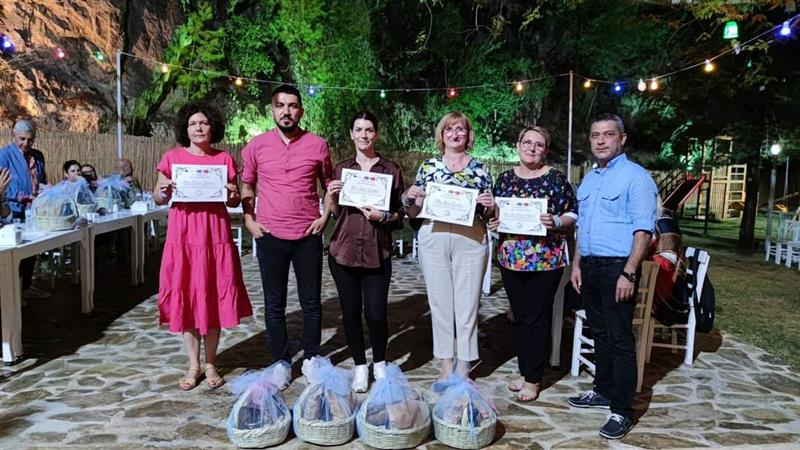
Disemination of project activities on teacher's council
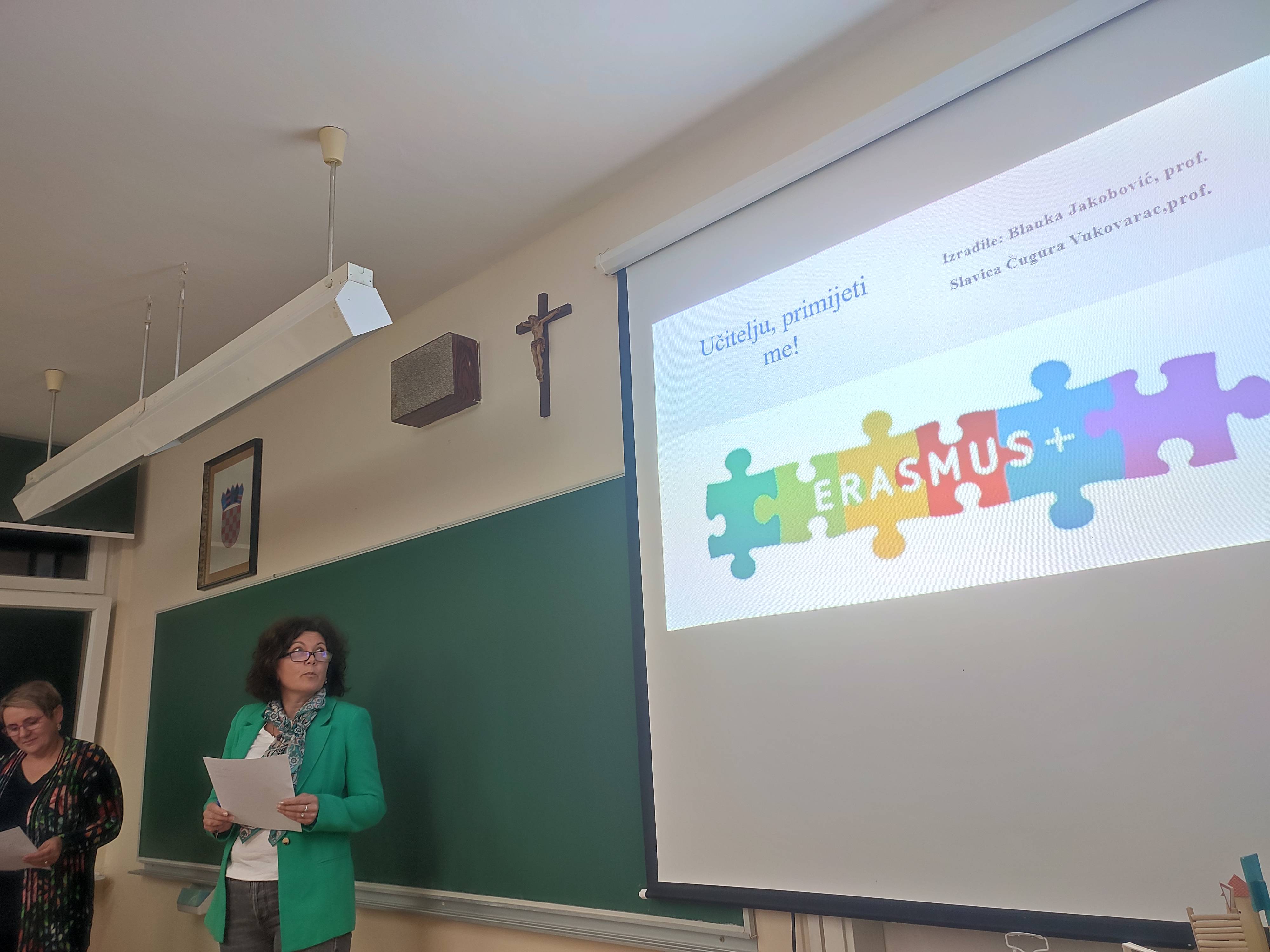
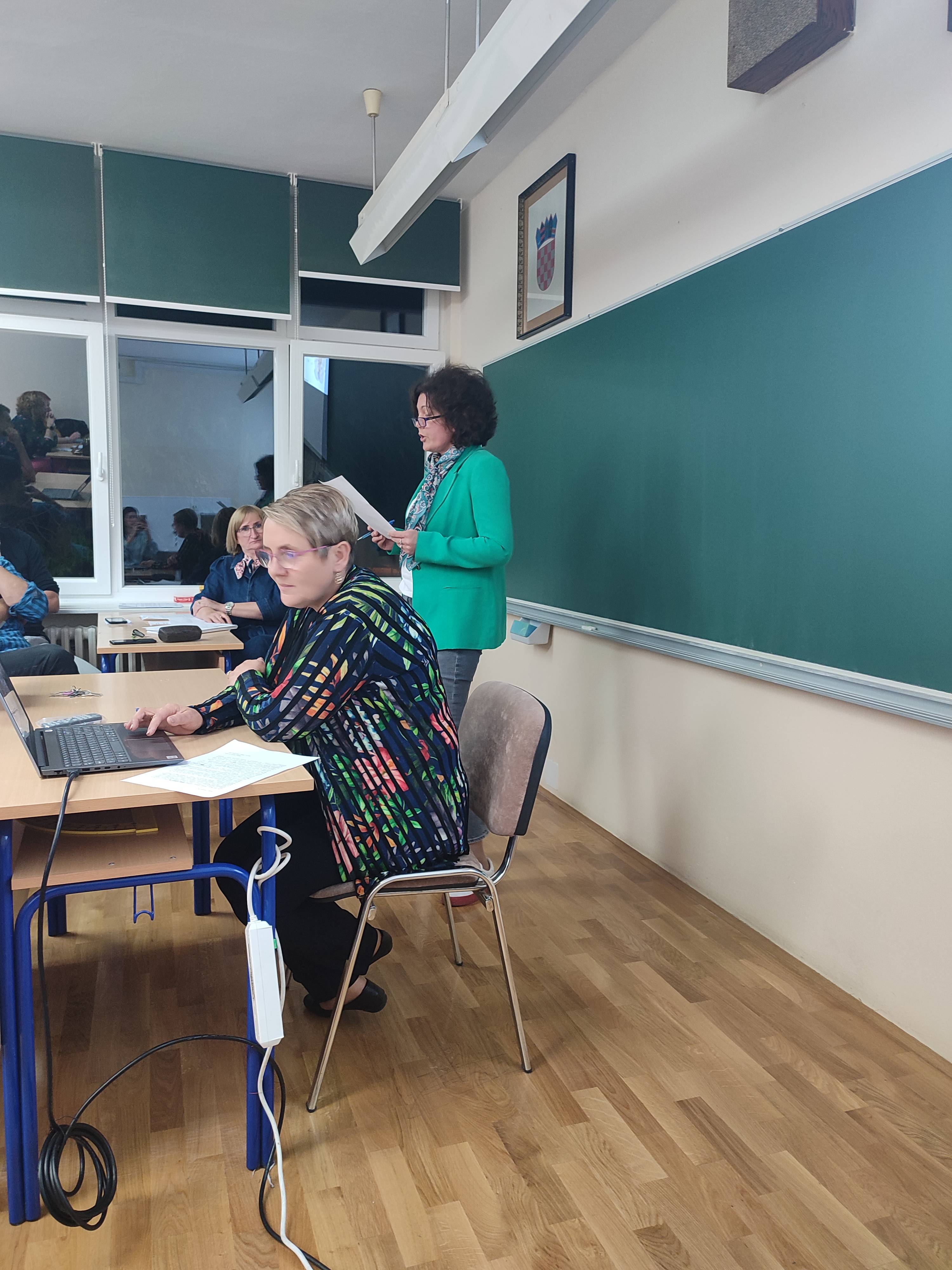
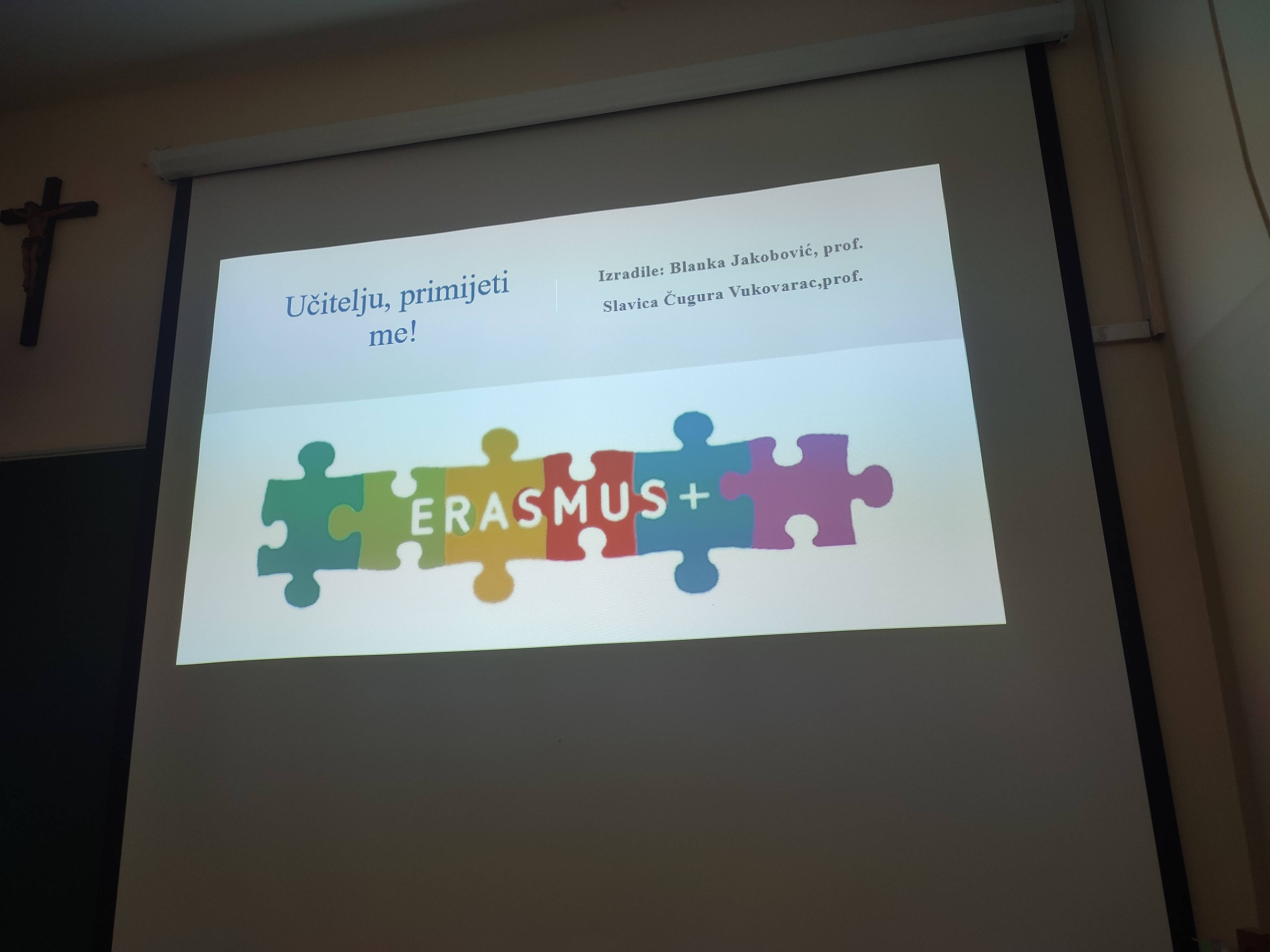
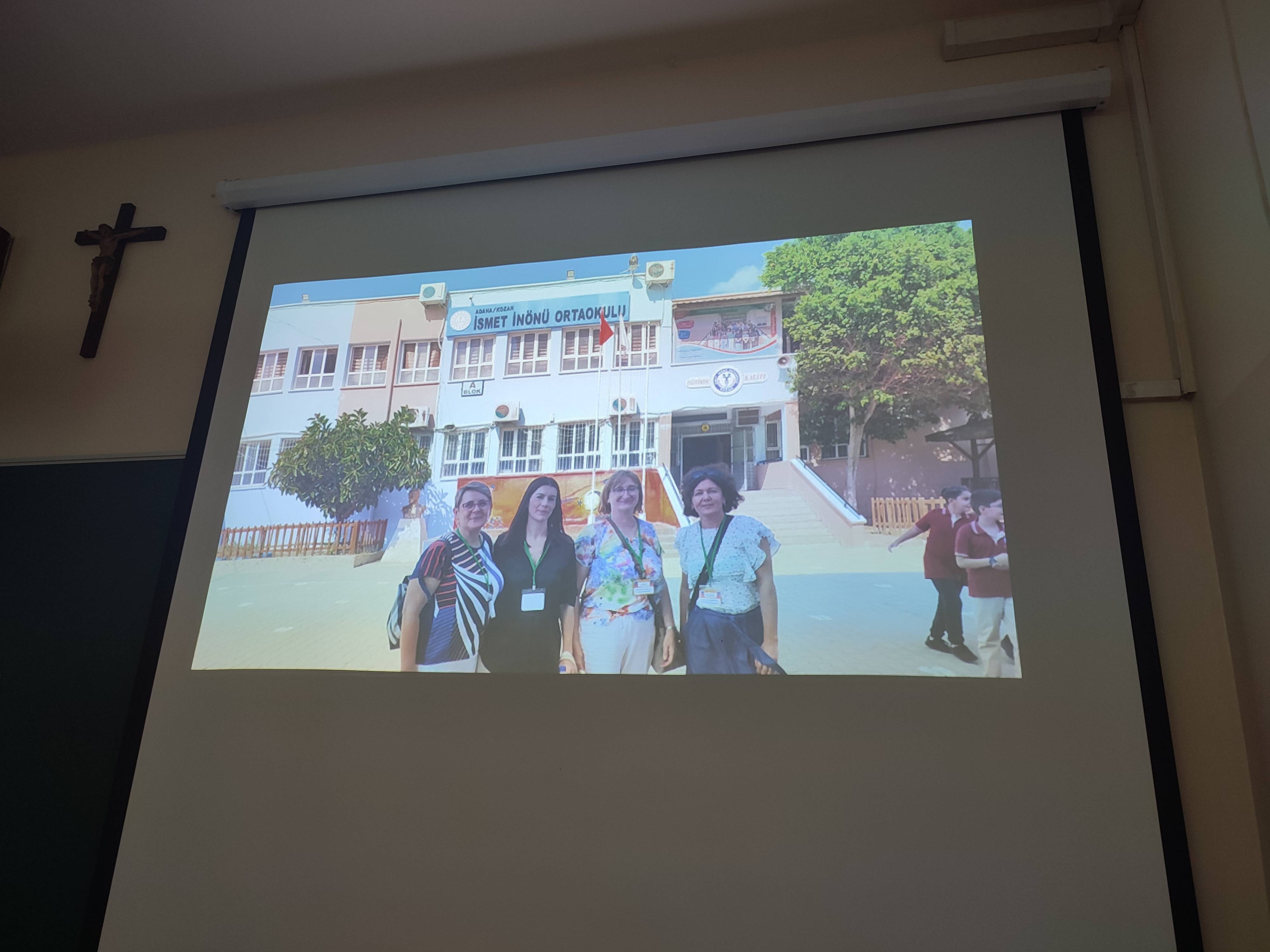
Notice Me My Teacher
I’ve participated in a mobility in Turkey from 19 to 14 September 2022. During our stay we took part in a workshop under the title – Art Therapy – Traditional Turkish Ebru Art. I’ve carried out a similar activity in my class 6b.
ACCEPTANCE OF DIVERSITY – LIFE VALUES – TOLERANCE
Starting text was Harry Chapin’s Flowers are Red. The students were asked to read the song. They were divided into two groups and instructed to draw some flowers. One group drew as the first teacher from the song asked – red flowers with green leaves, and the other group drew as the other teacher asked – fun, colorful, creative, using all the colors of the rainbow. In the end the students exhibited their works of art and had a class discussion from which they drew the conclusion about accepting differences, human rights and tolerance.
Blanka Jakobović
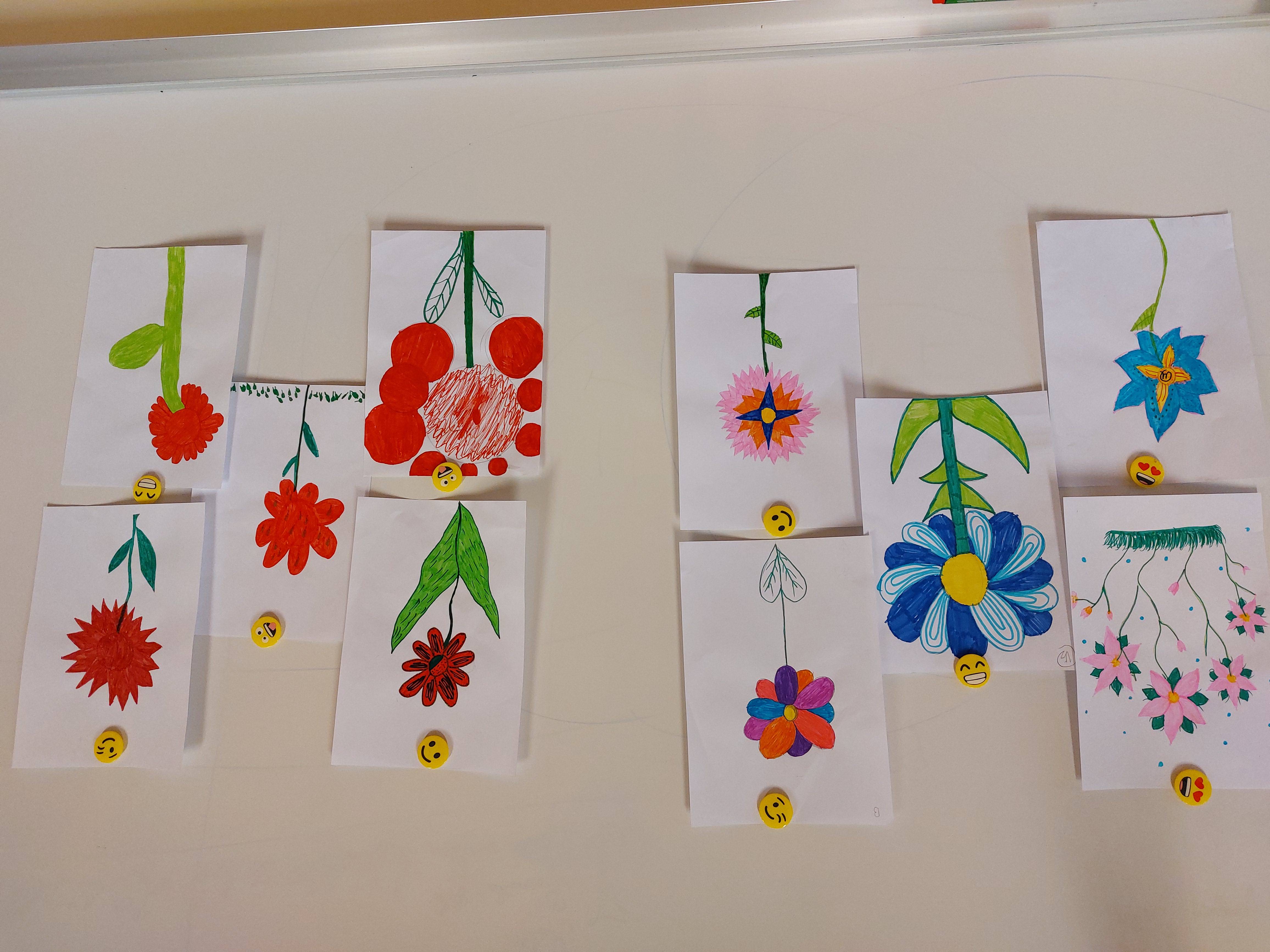
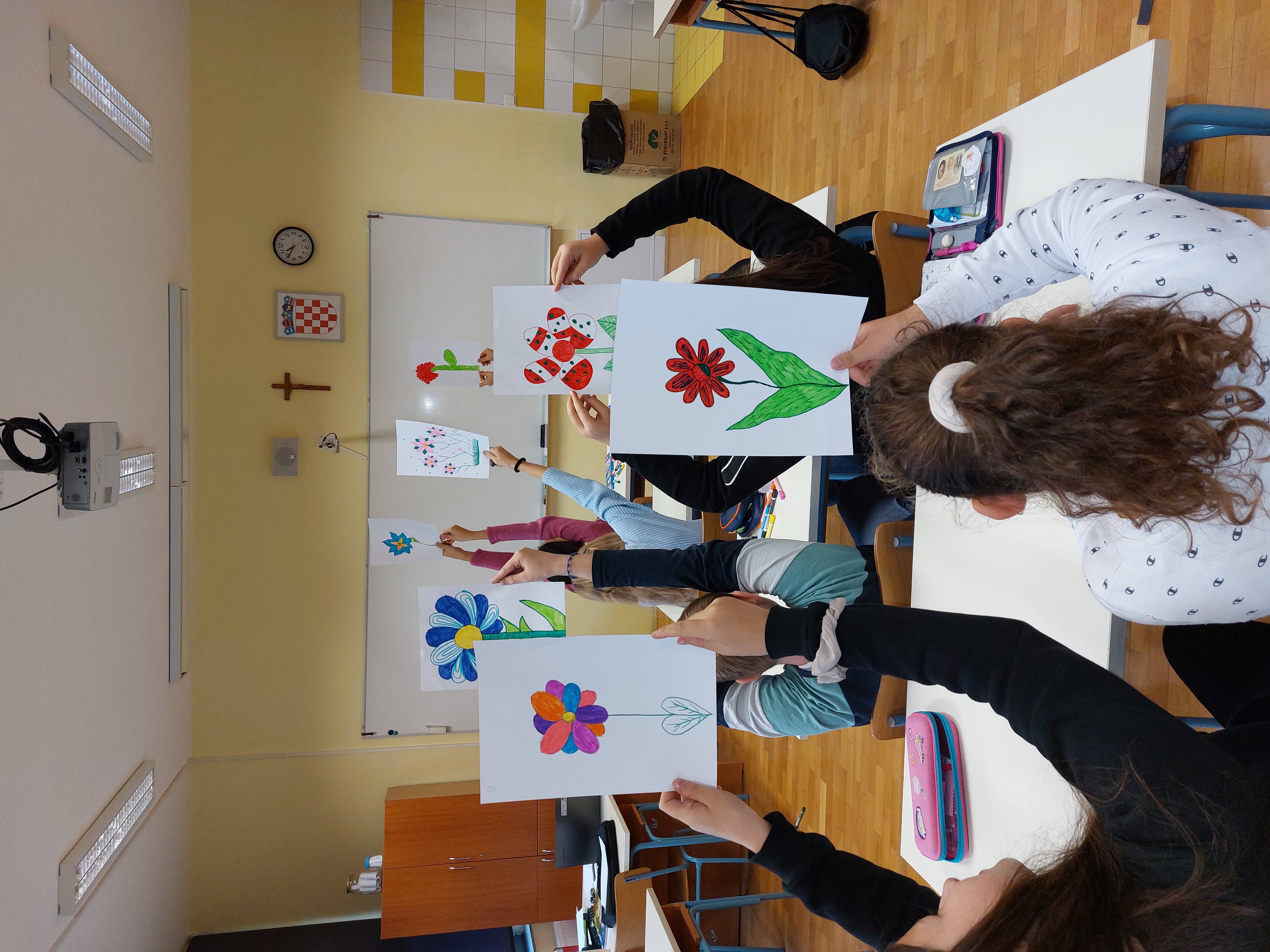
https://plusportal.hr/obrazovanje_/ovo-znaci-zivjeti-svoj-uciteljski-poziv-47649
Today, our school was visited by Romanian, Lithuanian, Italian and Turkish partners as a part of the "Notice me my teacher" project. The purpose and the goal of the project is to overcome the difficulties faced by people with disabilities and special needs through education.
This week, teachers will exchange ideas, experiences, support each other and participate in workshops, lectures and educations in order to understand their students better.
We welcomed the partners with a welcome program, showed them around our school and introduced them to our educational system.
We also hosted Dora Bašić, the county's most successful athlete with disabilities, who told us about her life journey and the challenges she faced. Her life story can really serve as an inspiration and a proof that a lot of things can be done with a good support and one's own desire and will.
In the afternoon, we were received by the deputy mayor, Marina Martić Puača. During her address to the public, she presented the historical and cultural heritage of Slavonski Brod and wished our partners a pleasant stay in our city.
Also, with expert guidance, we walked around our city and introduced our partners to the cultural and historical sights of our beautiful place.
On the second day, we took our partners to Zlatni cekin. The Montessori program is used in Ceka's kindergarten. The groups are mixed and each group has two educators. In addition to the kindergarten program, children with developmental disabilities have the opportunity to use rehabilitation therapy at the Zlatni cekin Polyclinic every day. Upbringing and socialization of children with developmental disabilities is being done, especially in kindergarten. We learned more about working in groups, saw practical examples and participated in individual stages of the workshops ourselves.
We also visited the Milan Amruš school, the school for the upbringing and education of students with developmental disabilities, and the Ramarin ranch, to hear more about therapeutic riding.
In the afternoon, we went to the city swimming pool and attended pool activities designed for people with disabilities.
On the third and fourth day of our hosting, our partners had the opportunity to get to know the cultural and historical sights of Vukovar, Ilok and our capital Zagreb. The Plitvice Lakes enchanted them with their beauty.
On the last day, we visited our district school in Vranovci. The district school organized a project day called "Listen to how the earth breathes". Our partners attended the appropriate program and joined the activities and workshops that followed.
This was followed by a workshop at the main school and the awarding of certificates.
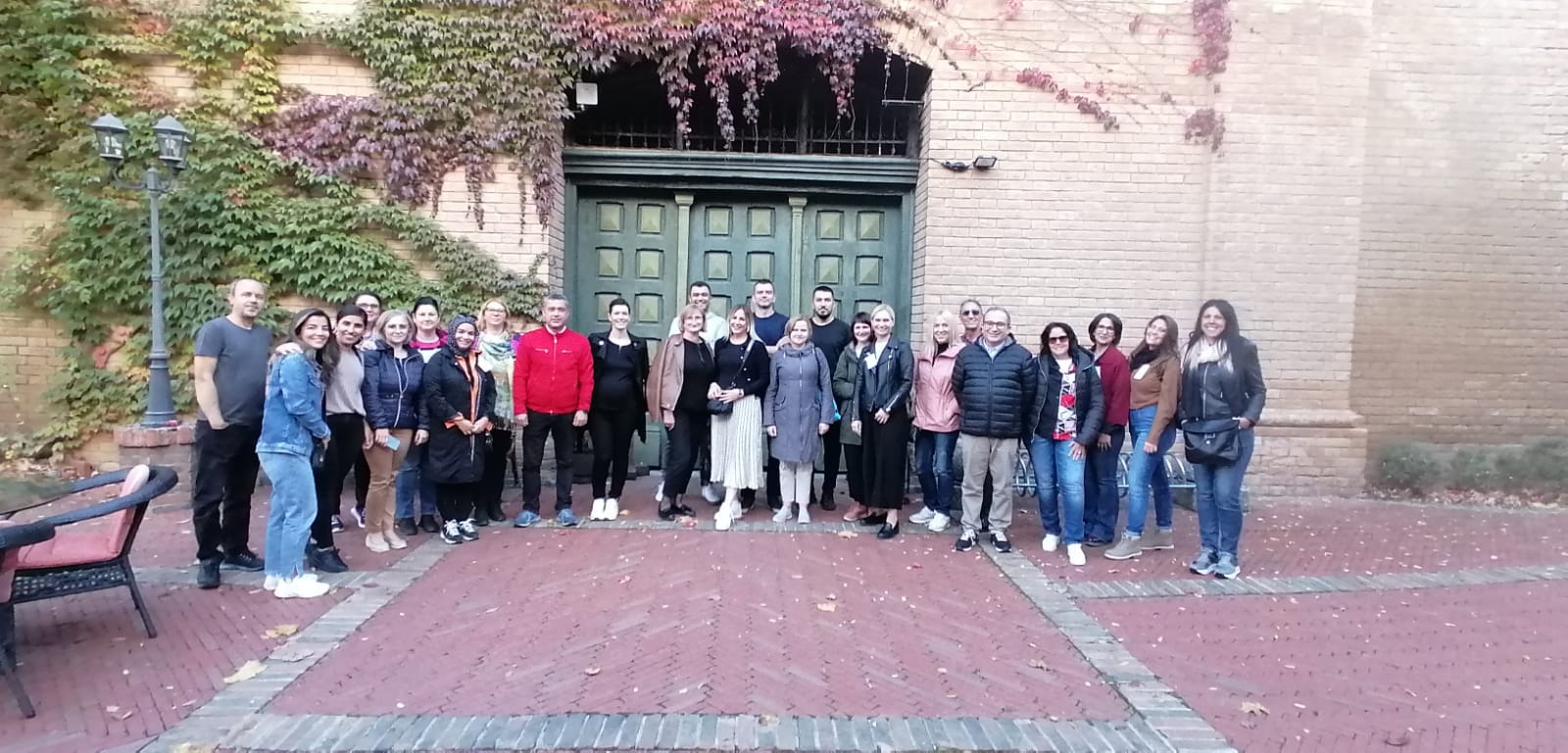
Disclaimer
https://ec.europa.eu/investeuportal/desktop/hr/disclaimer.html